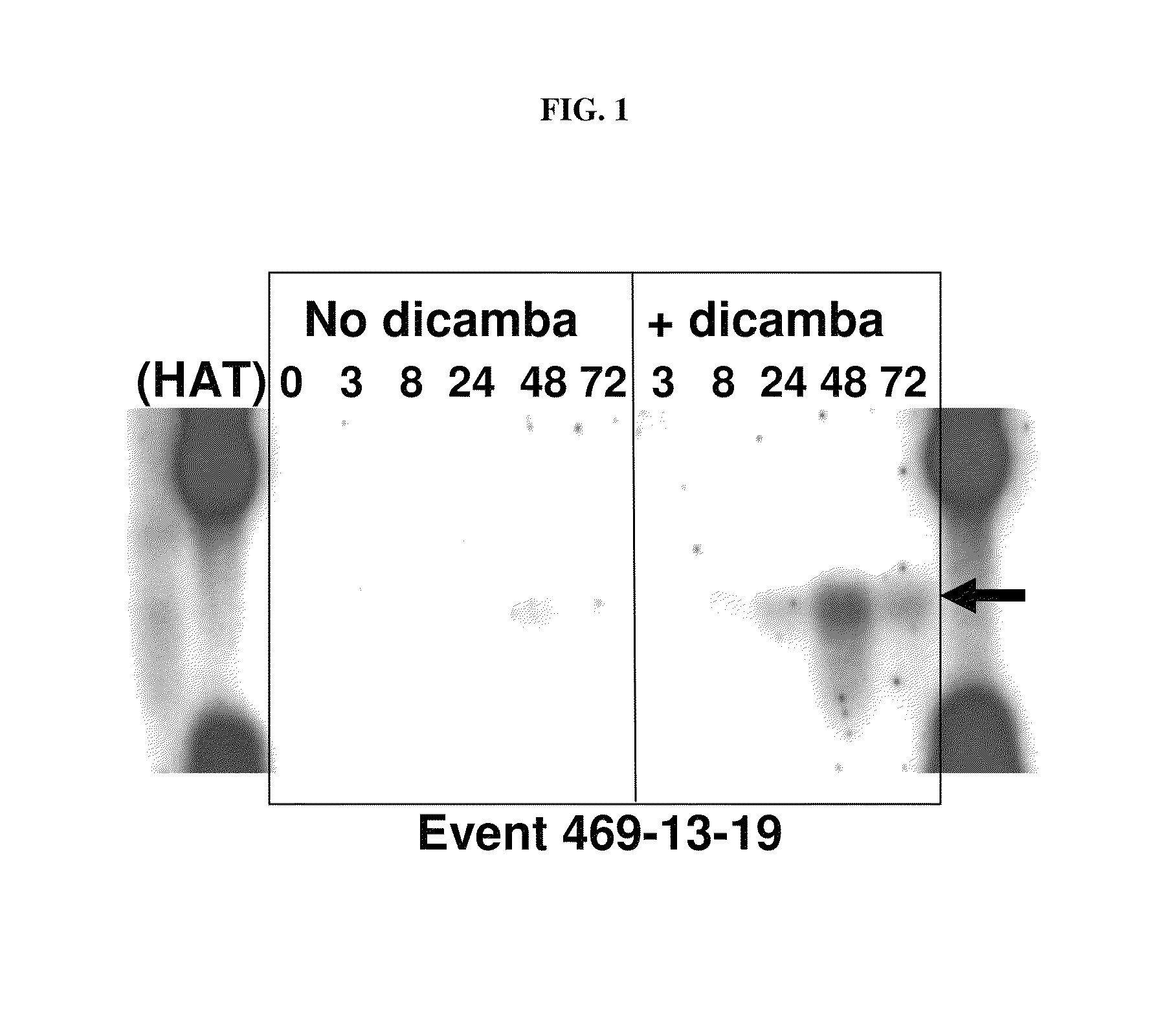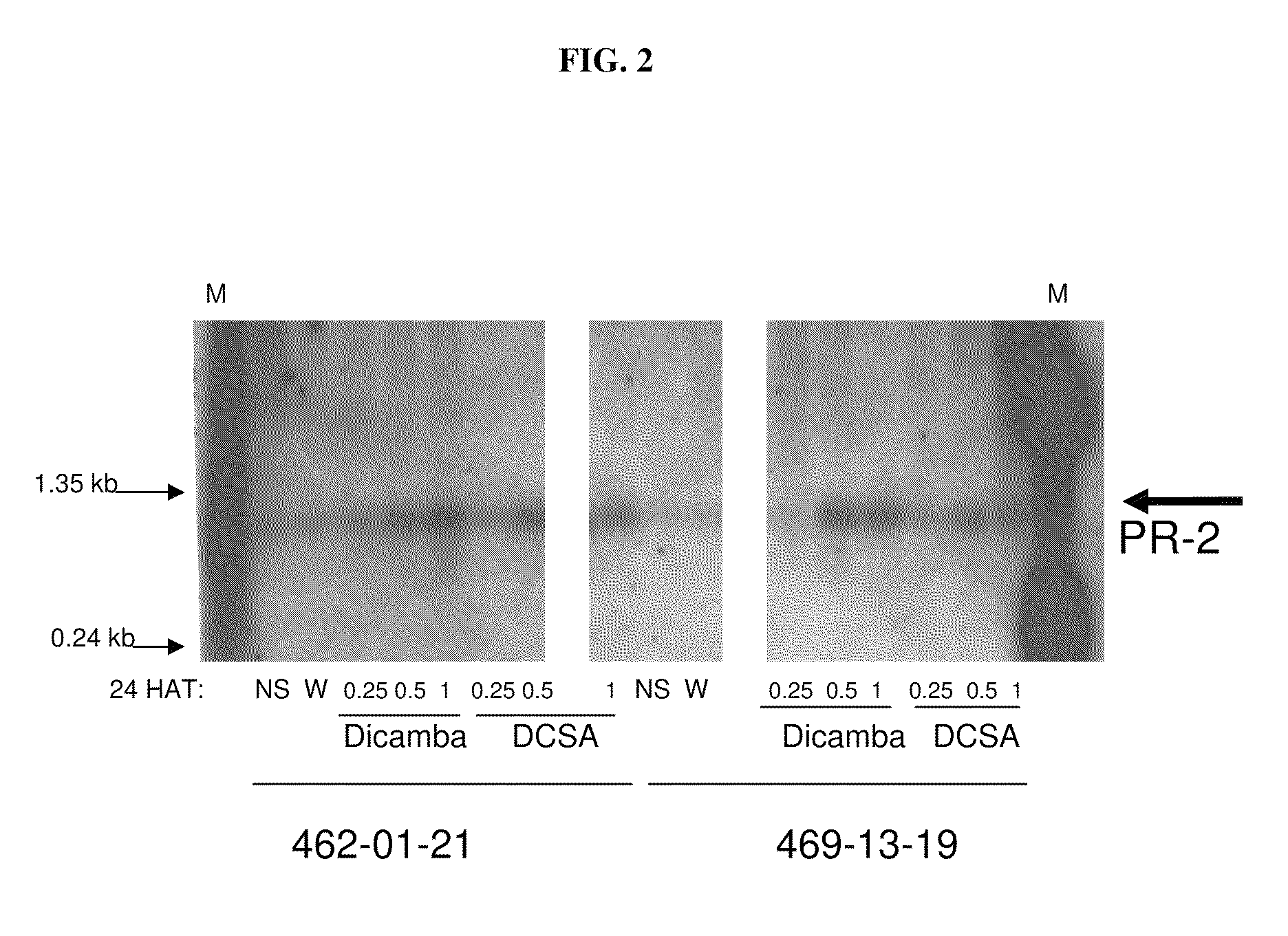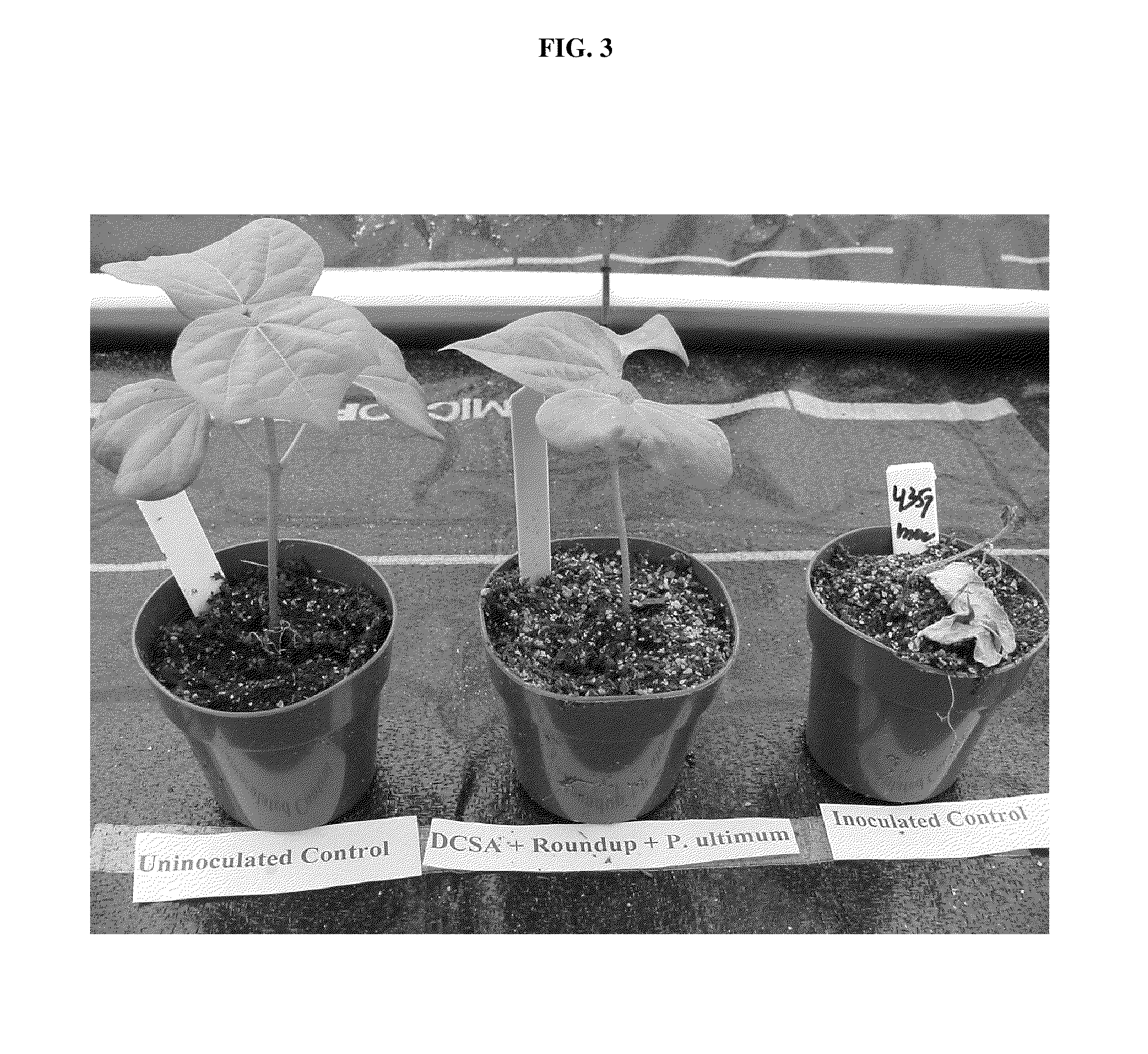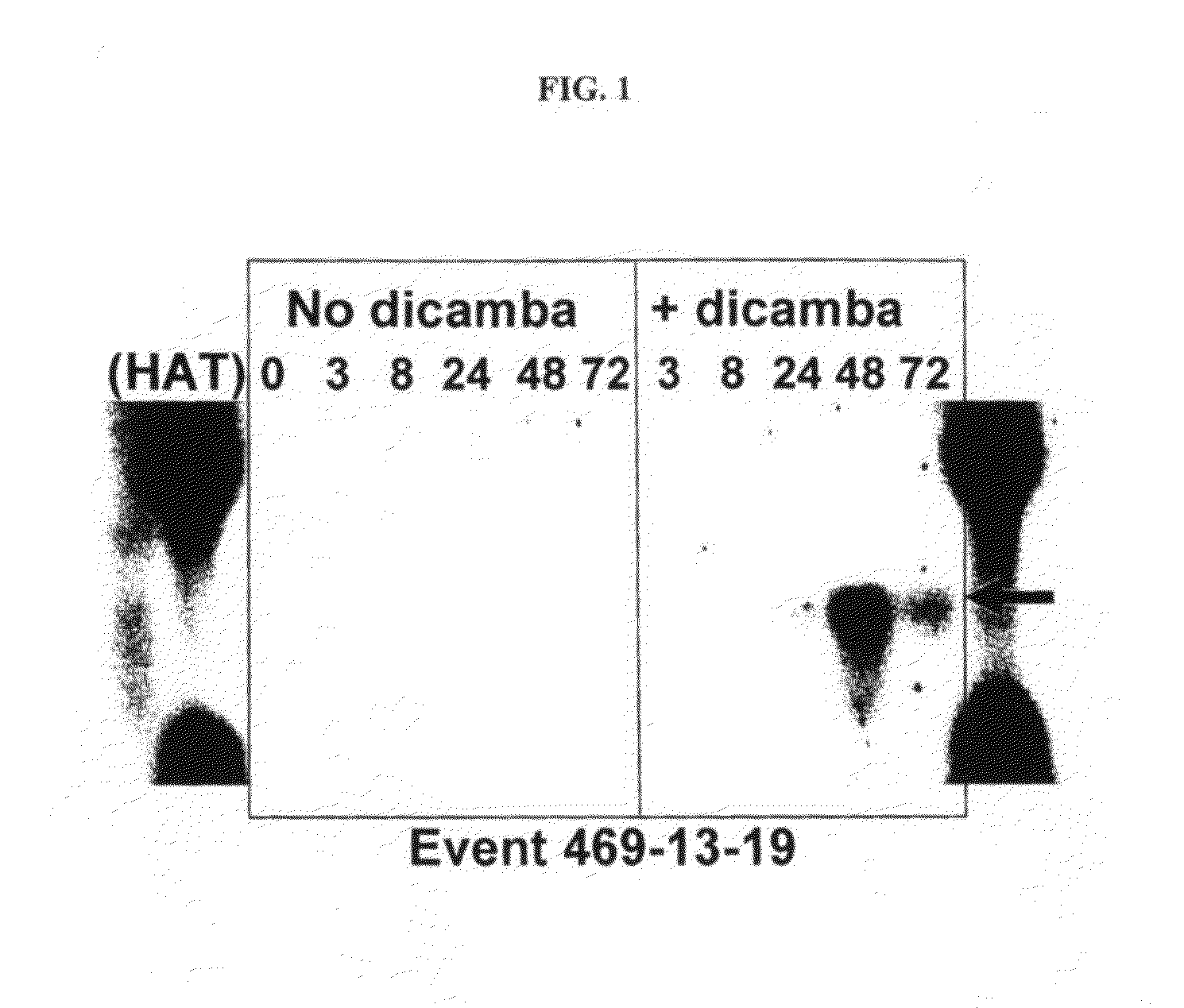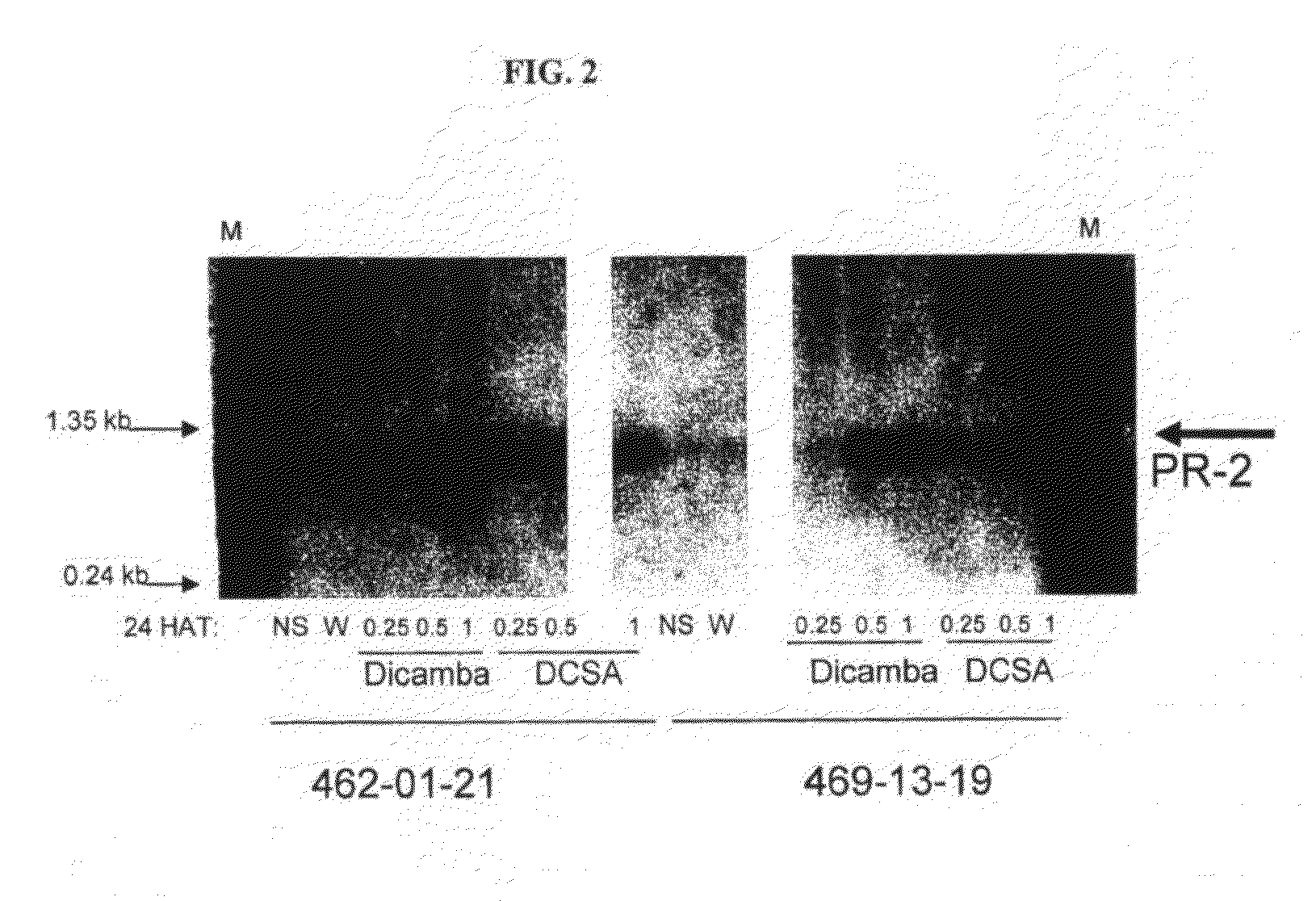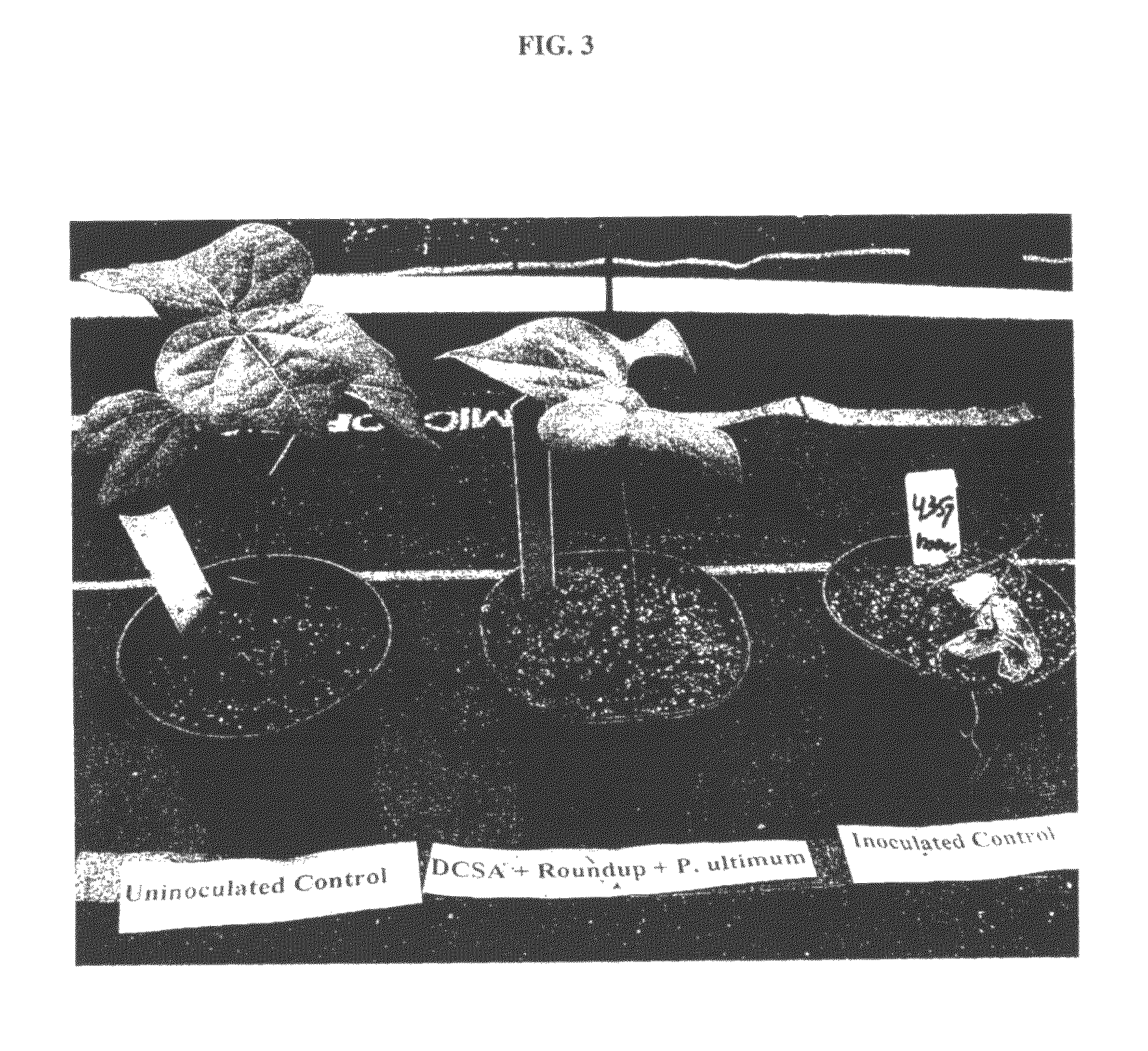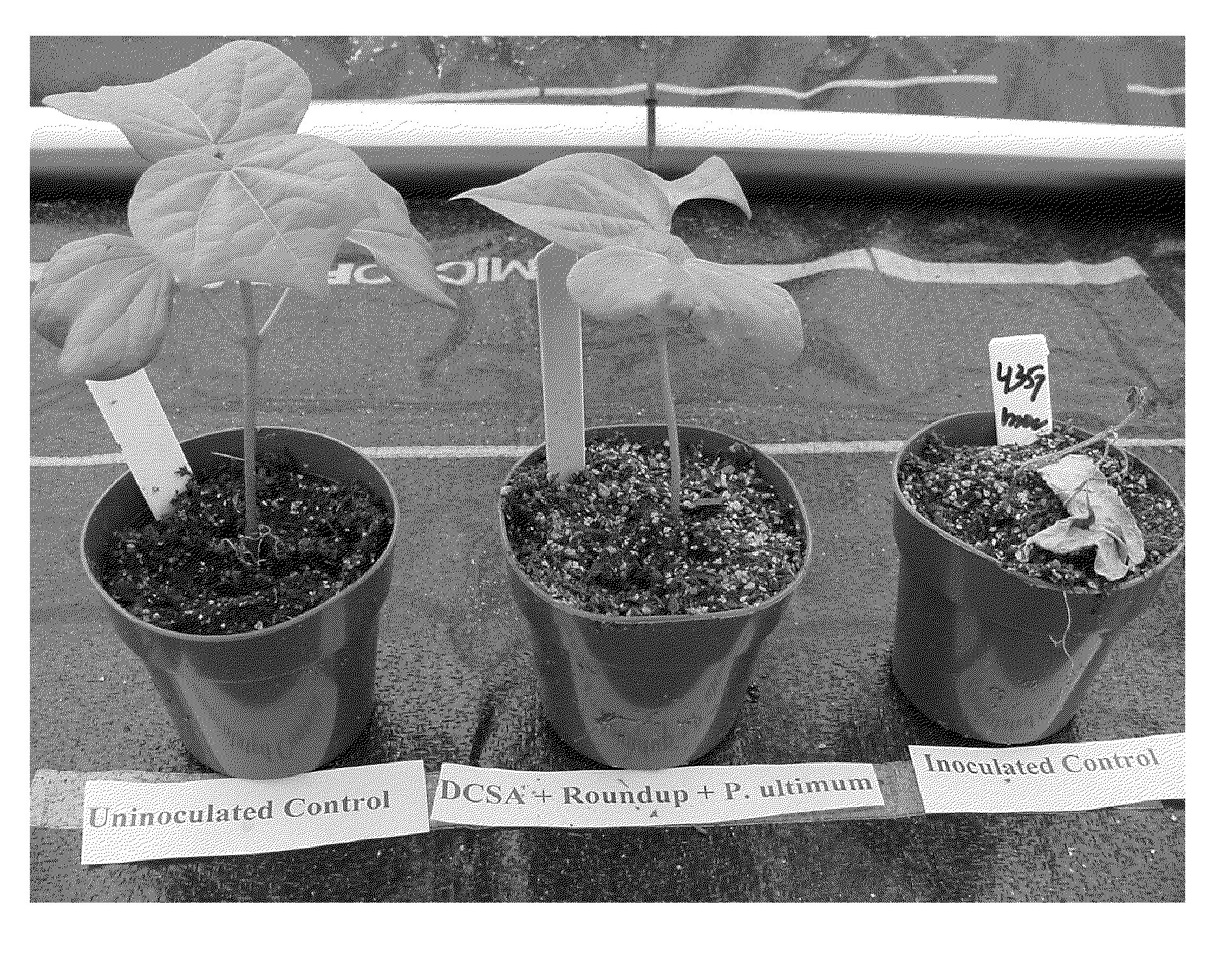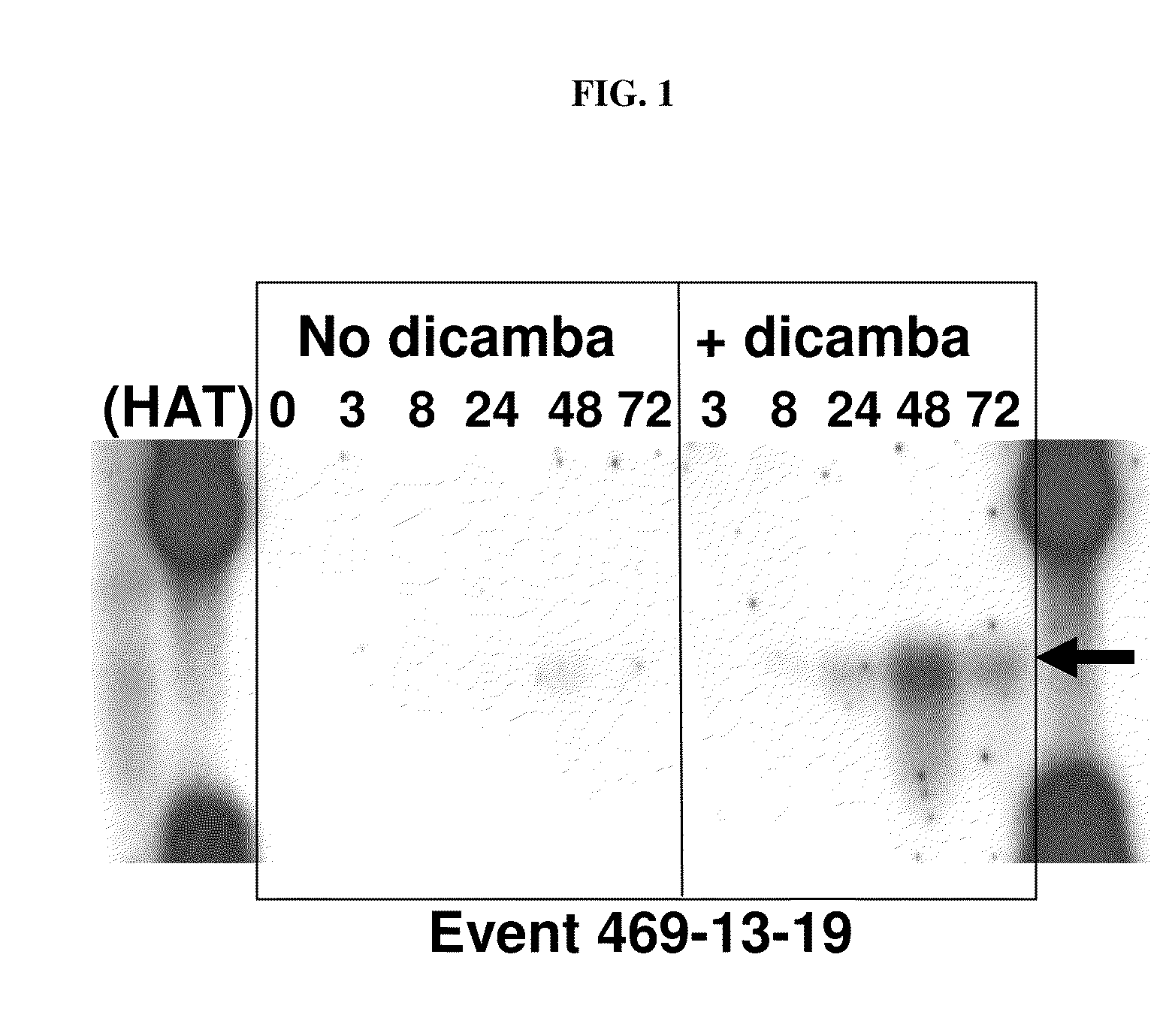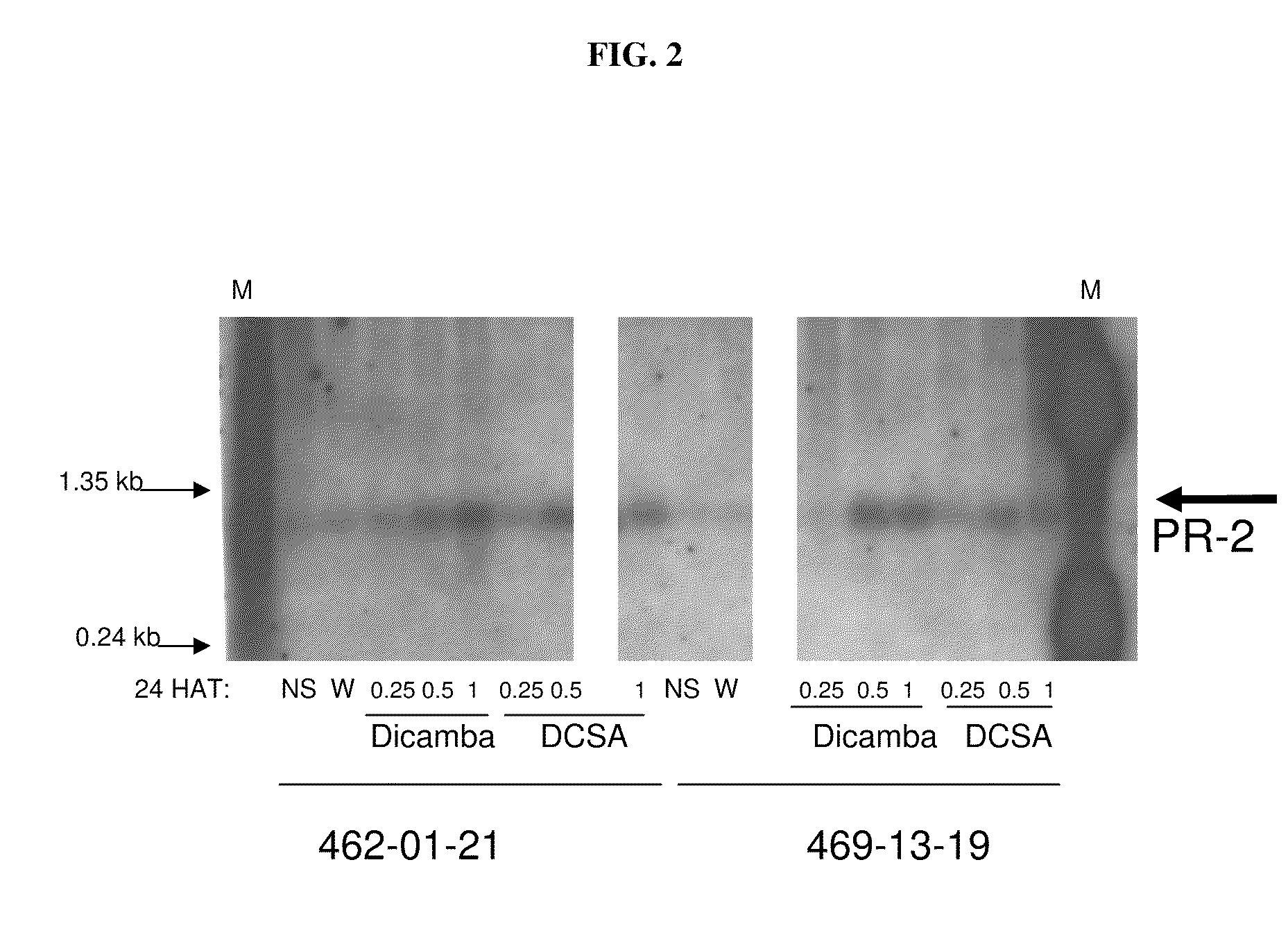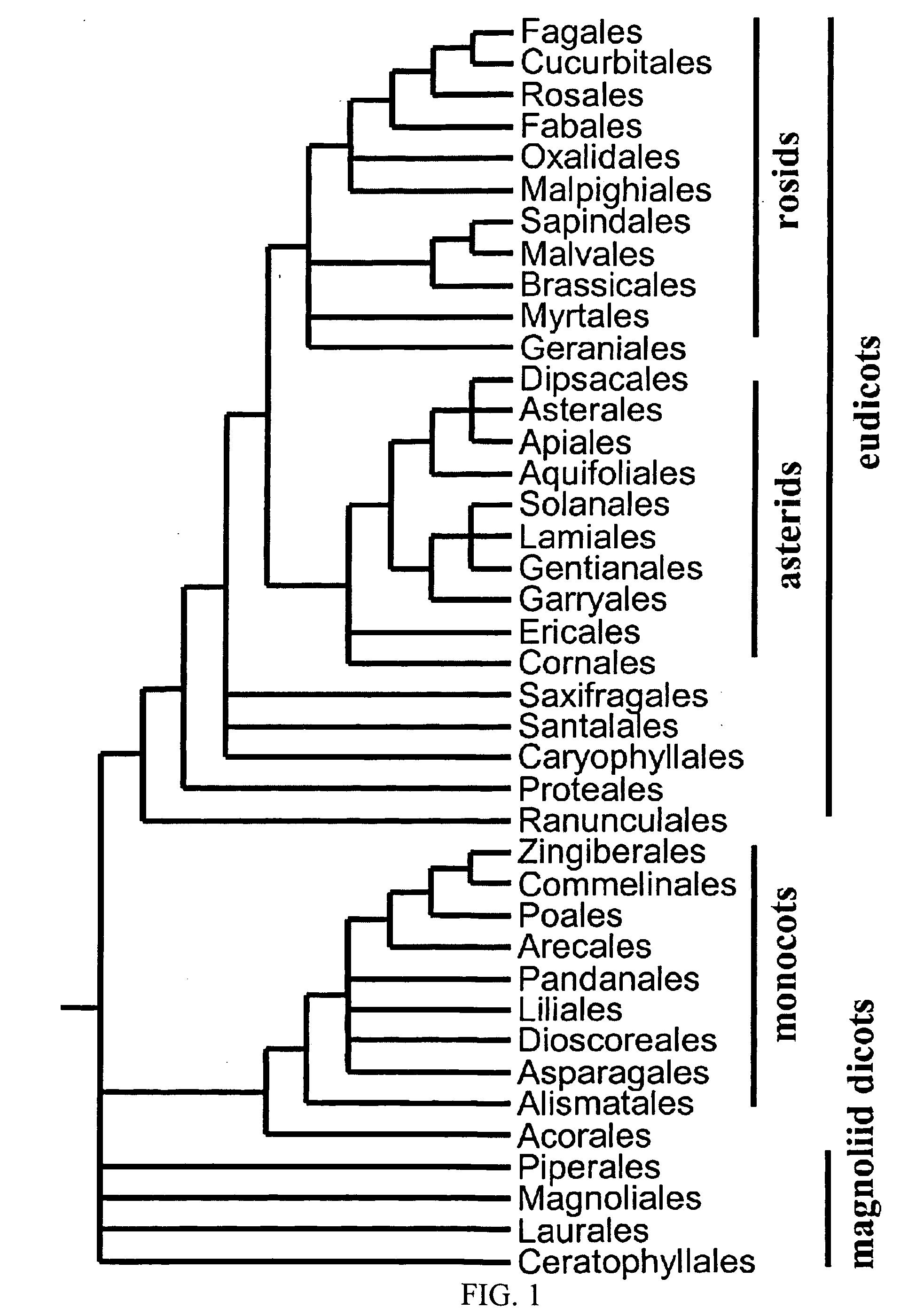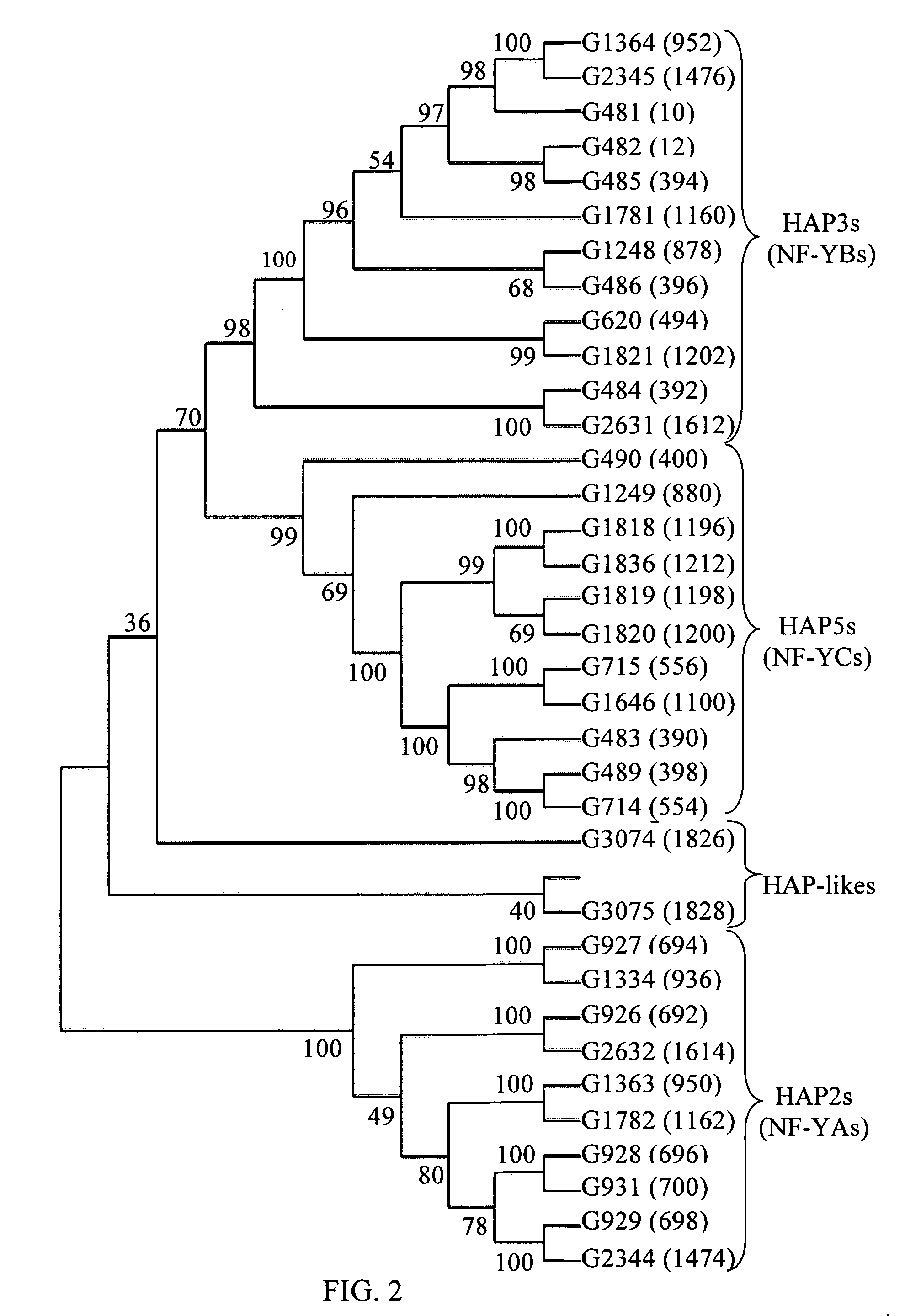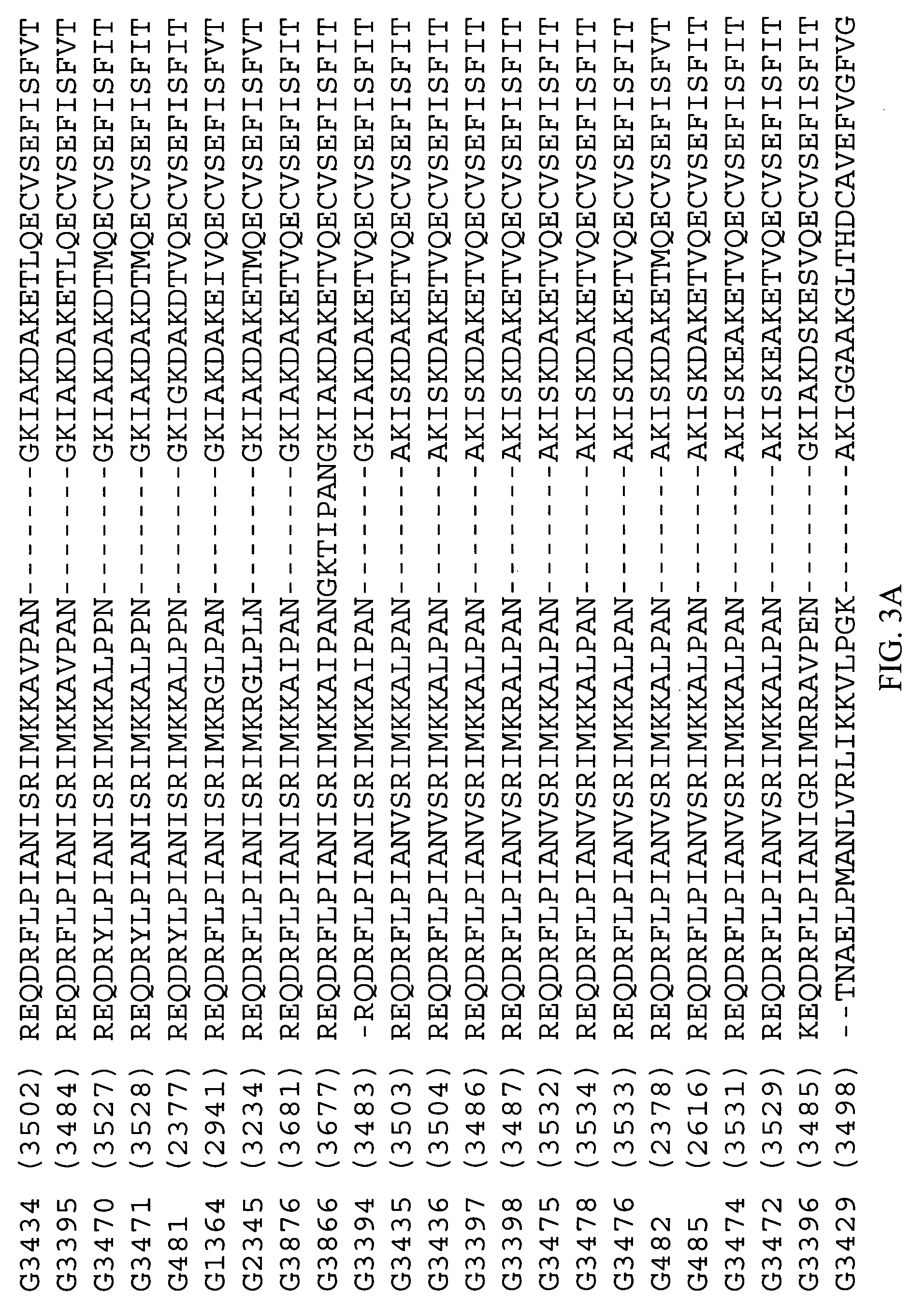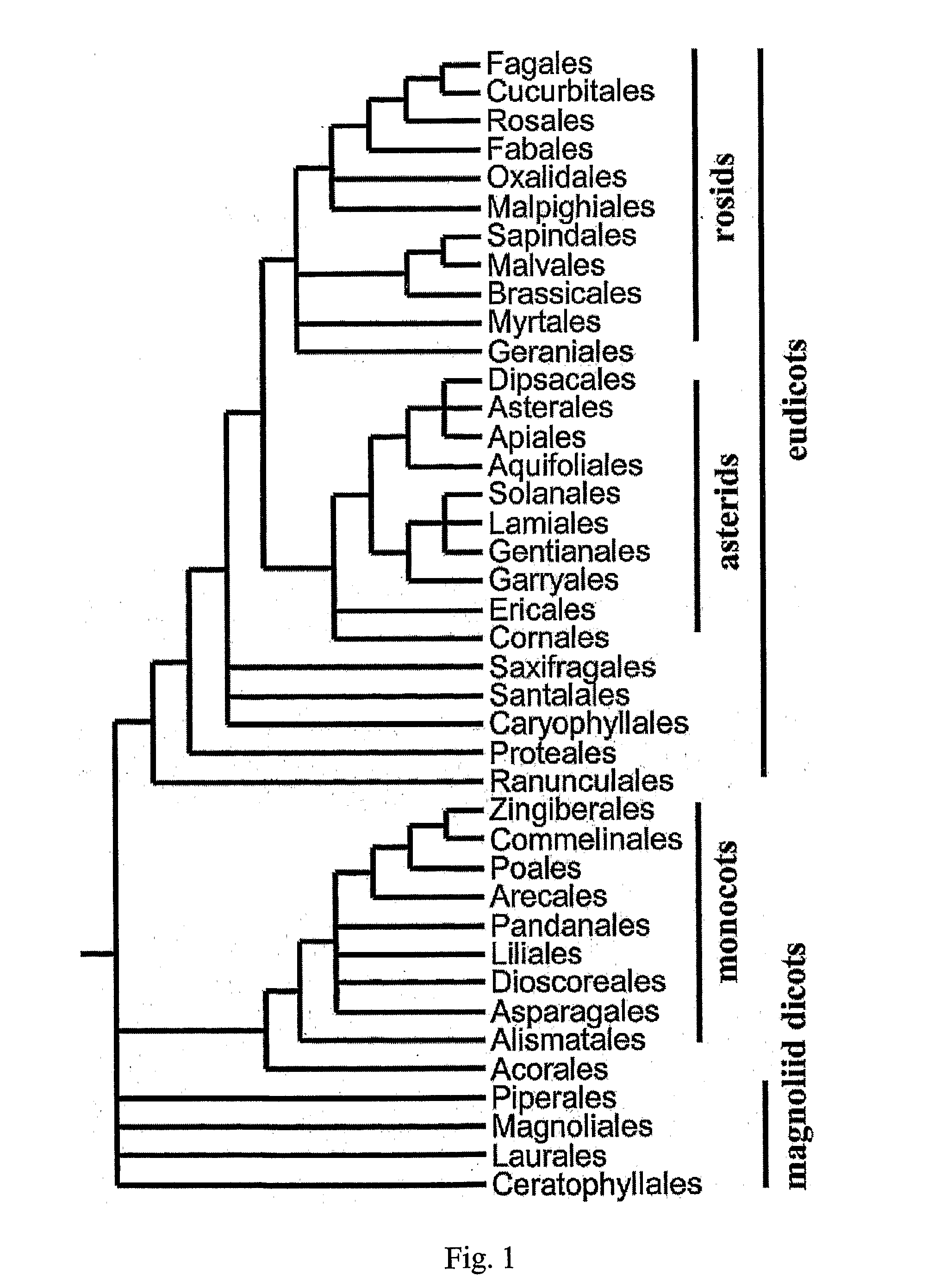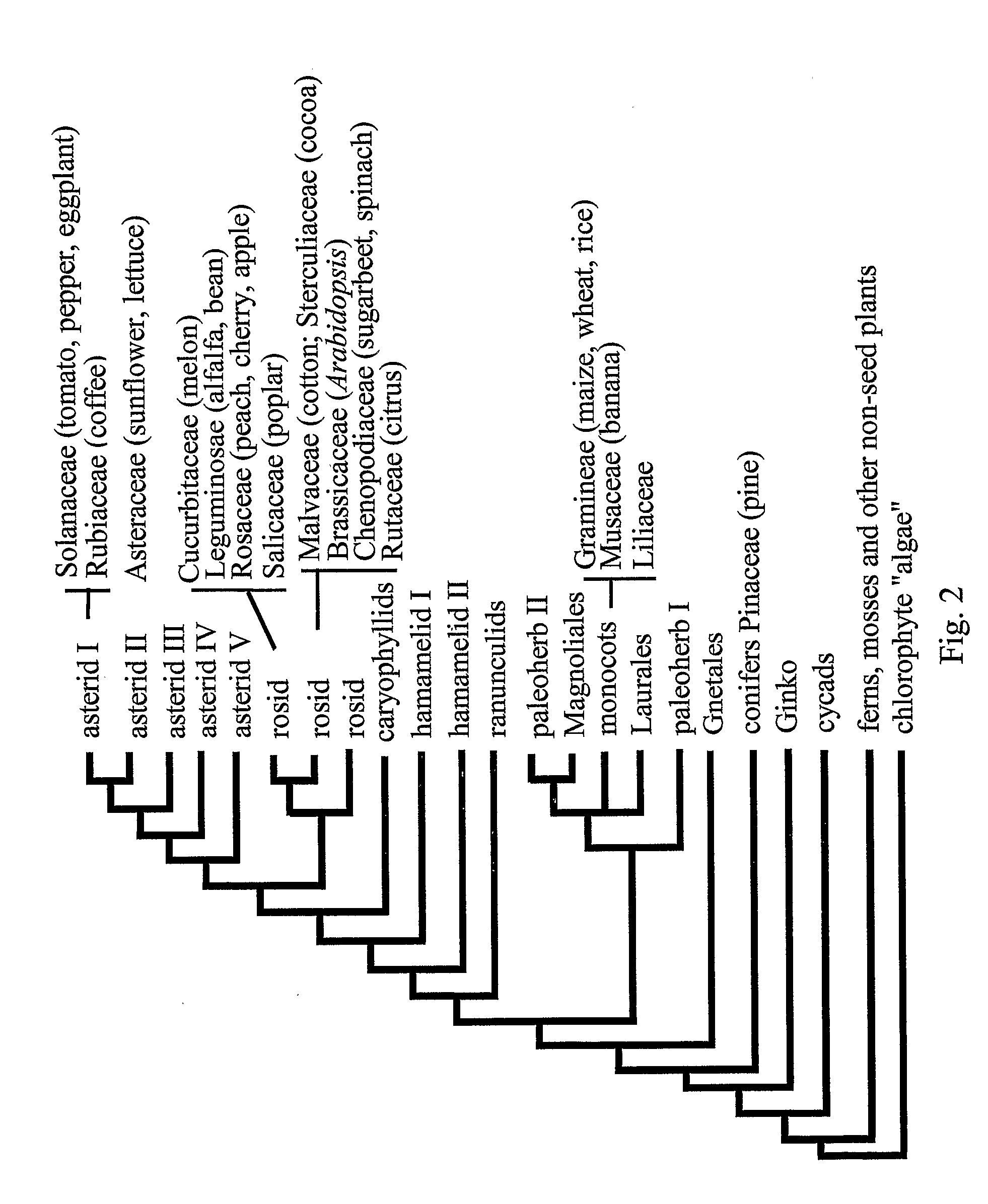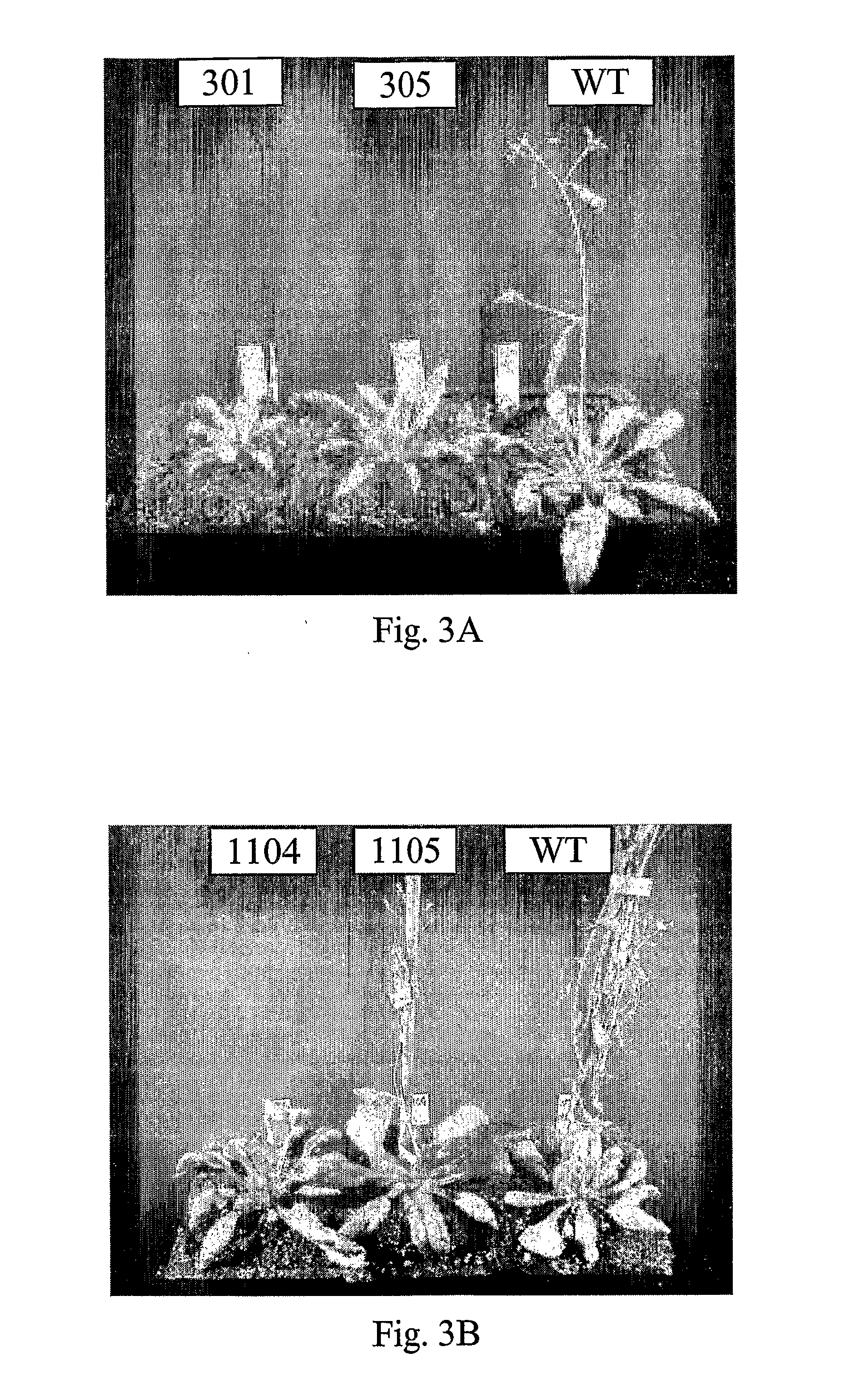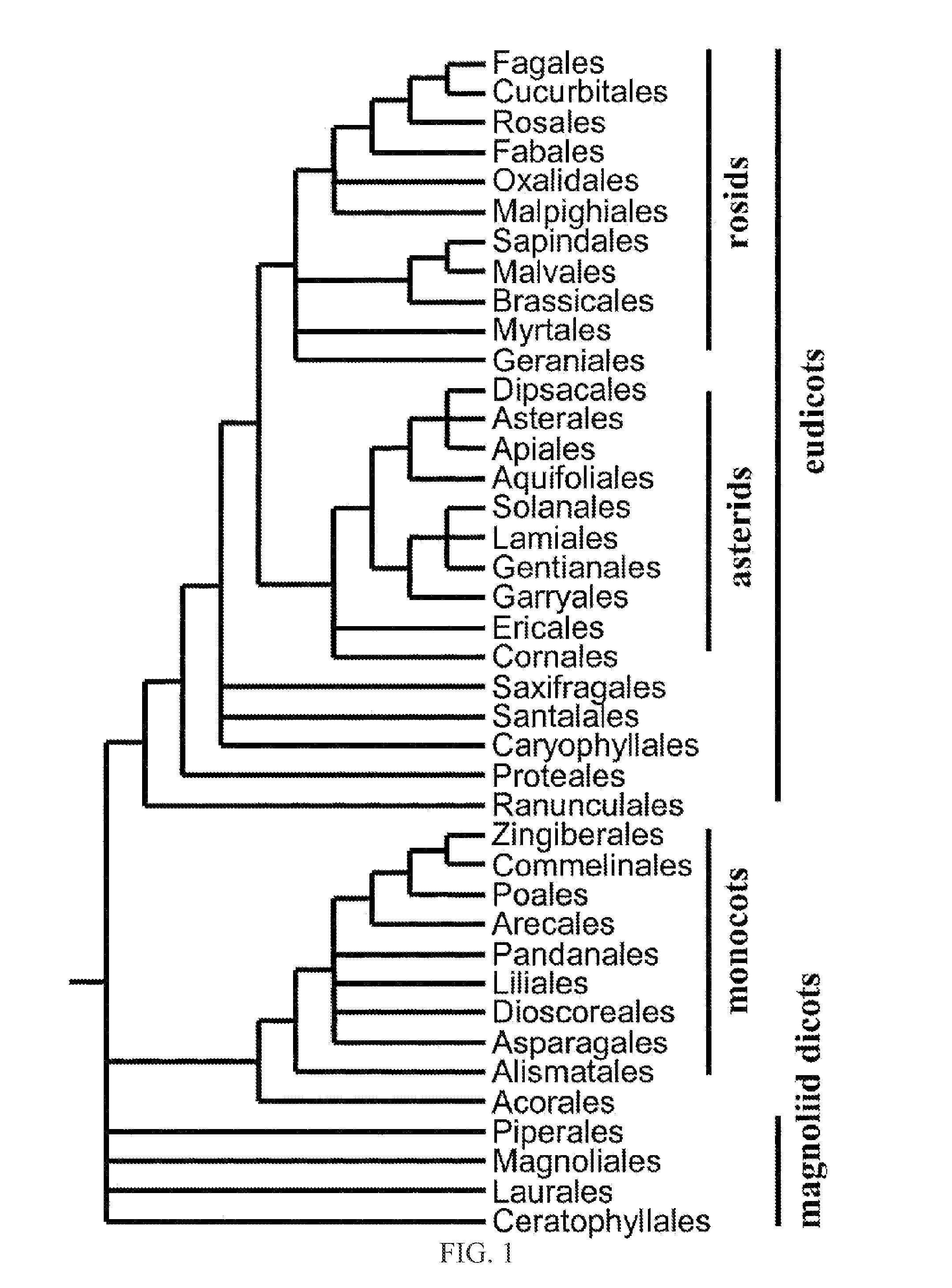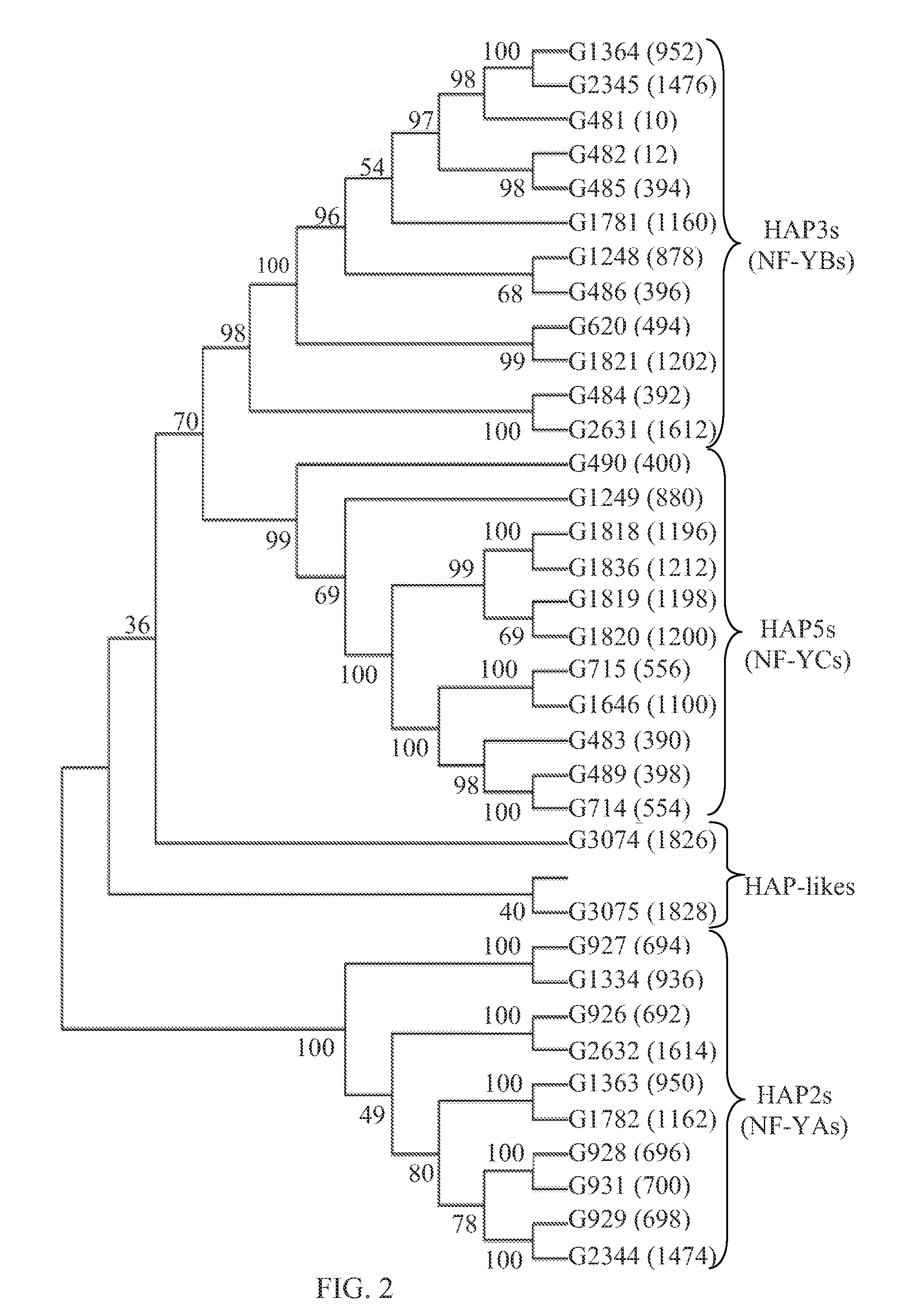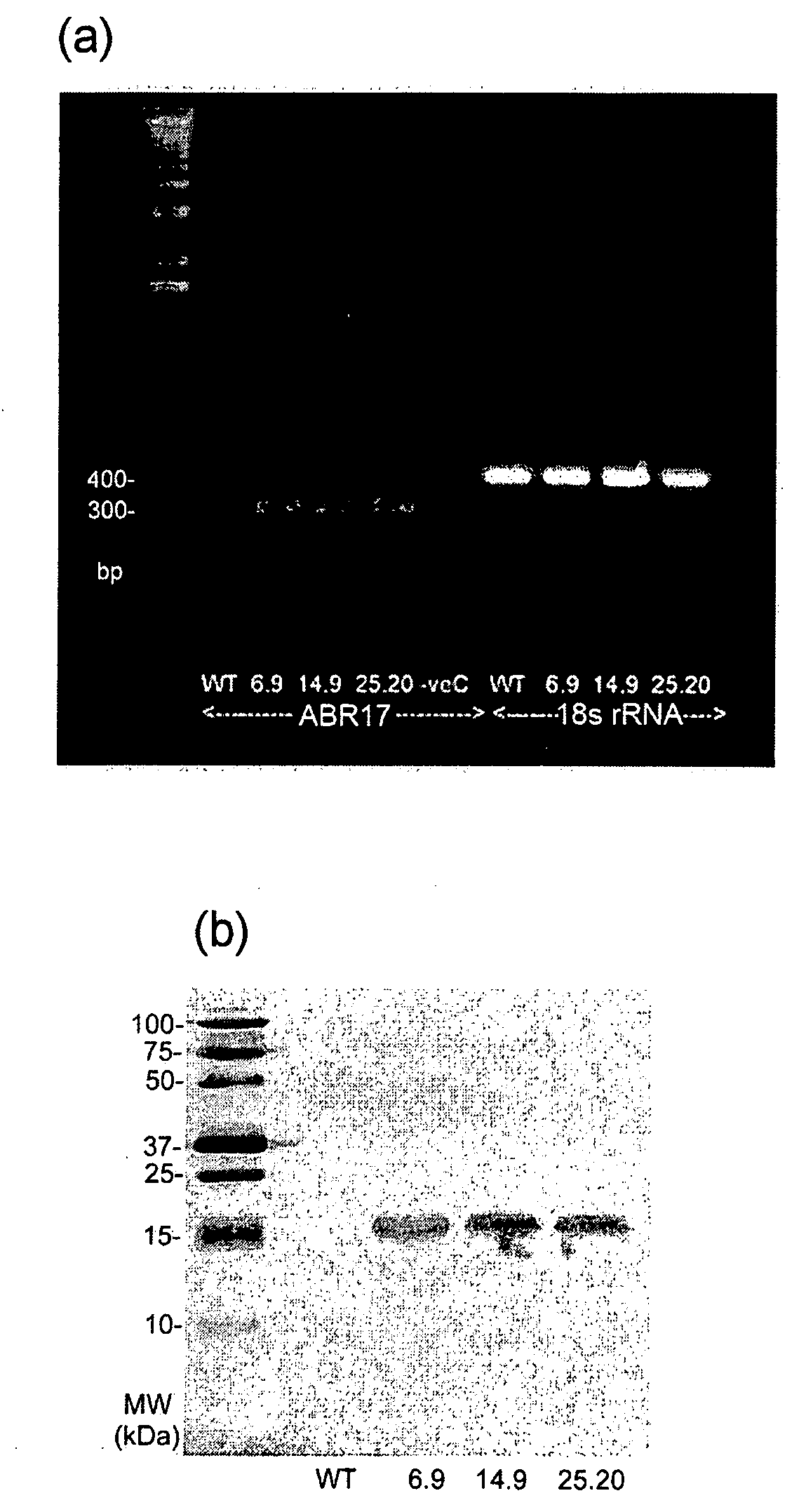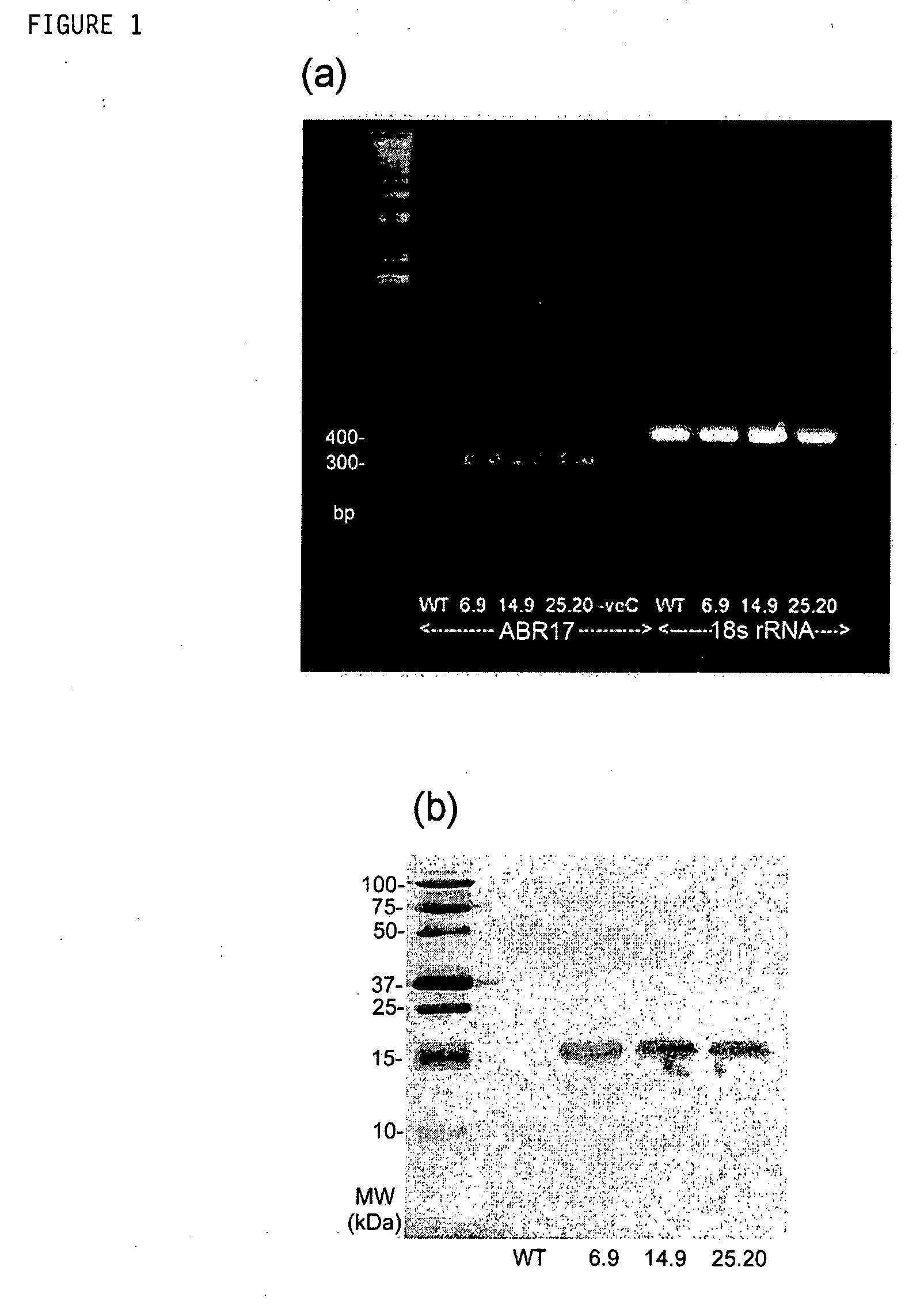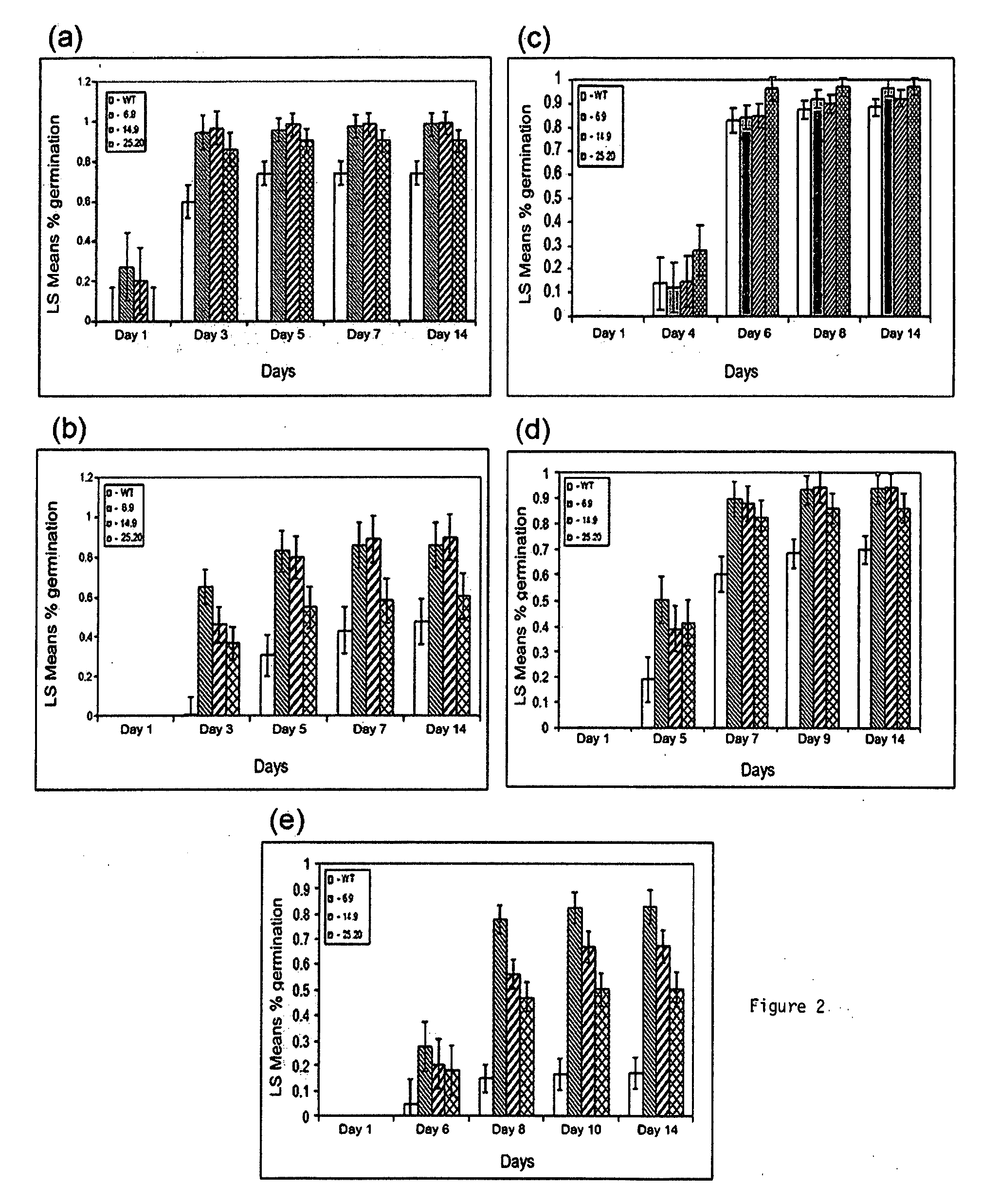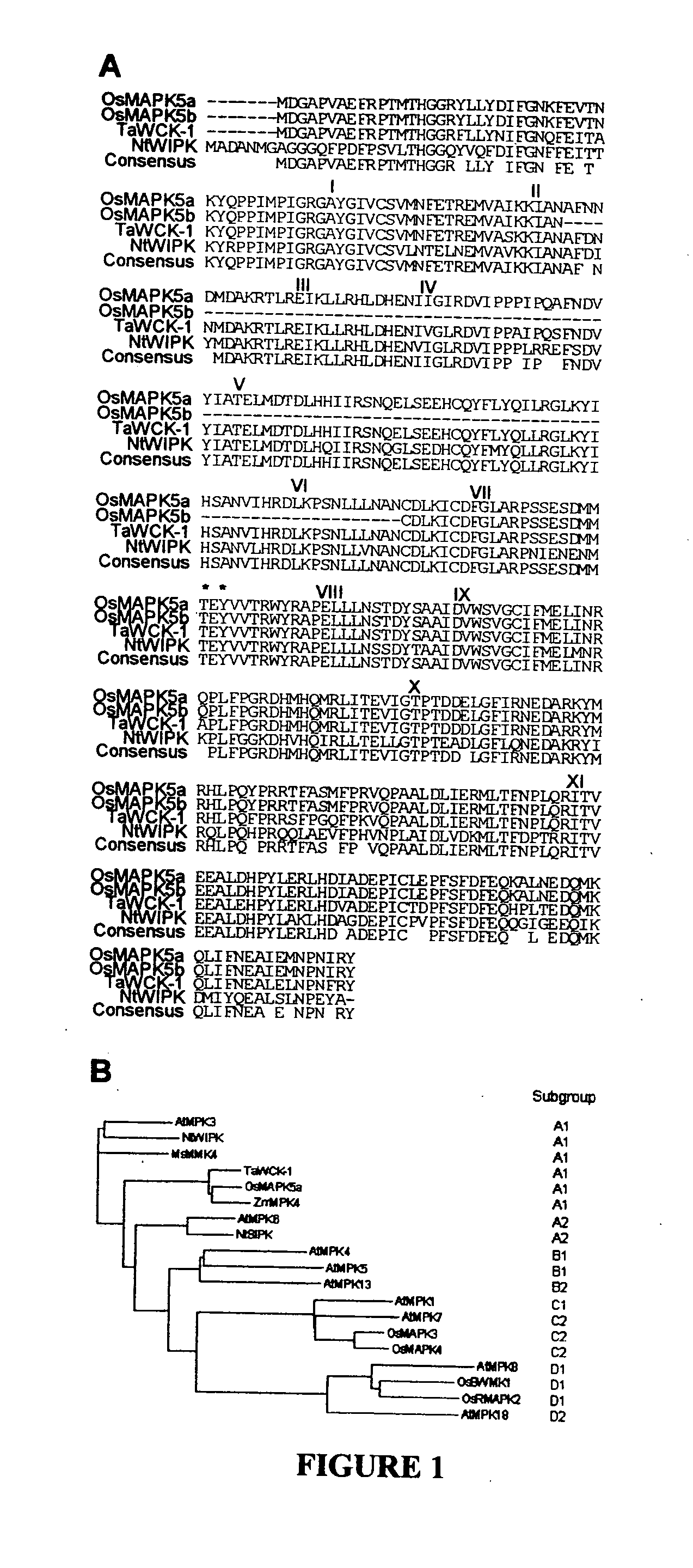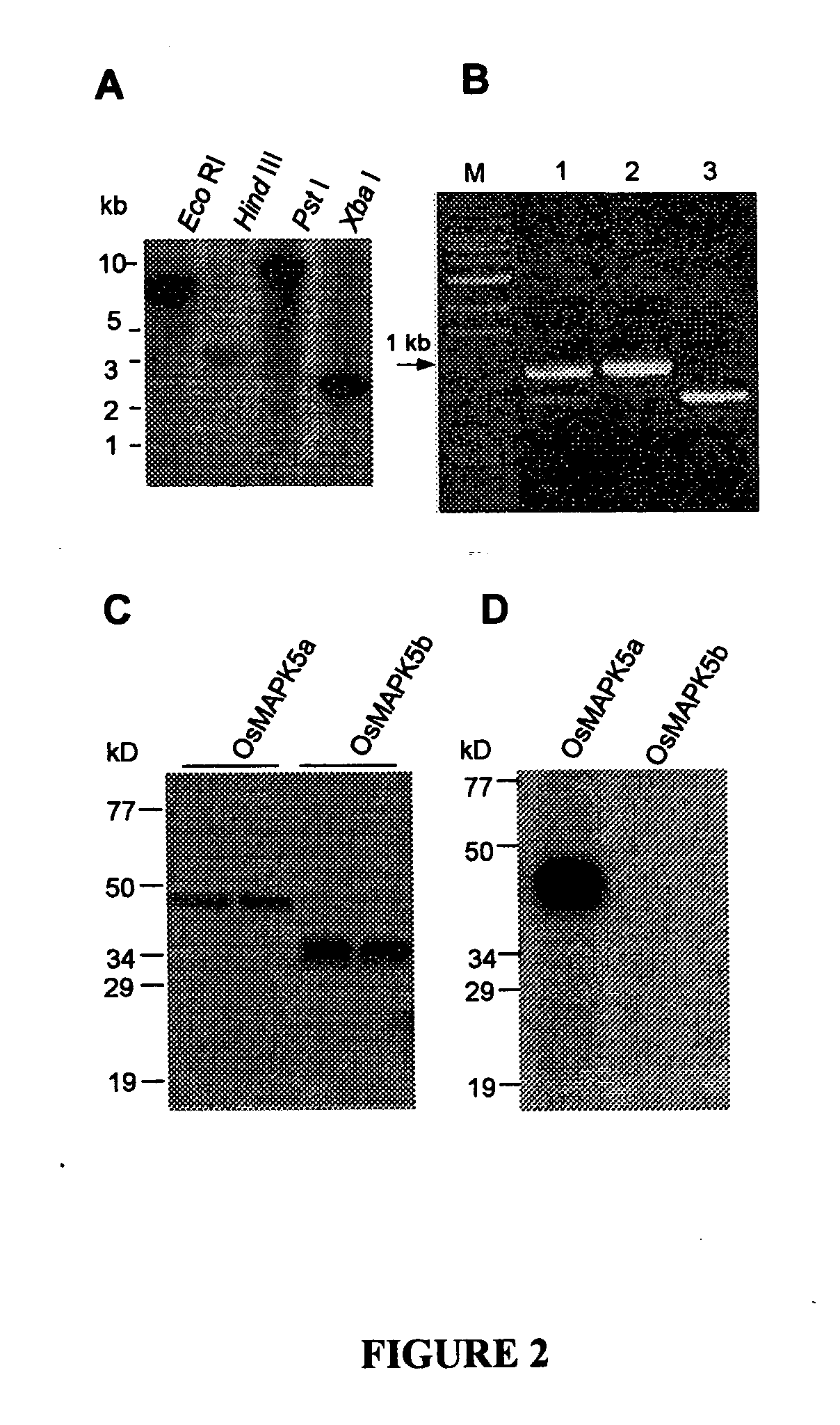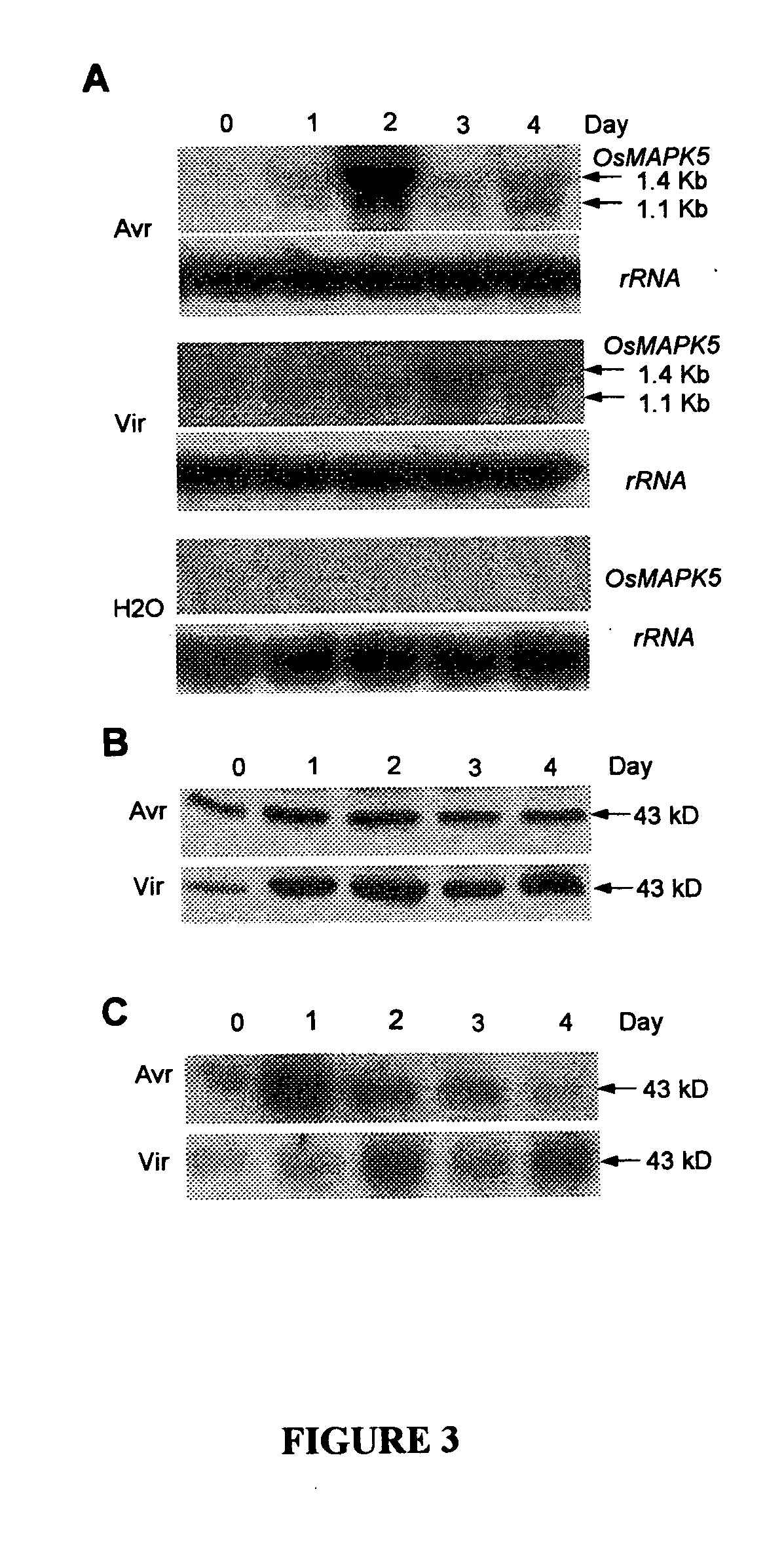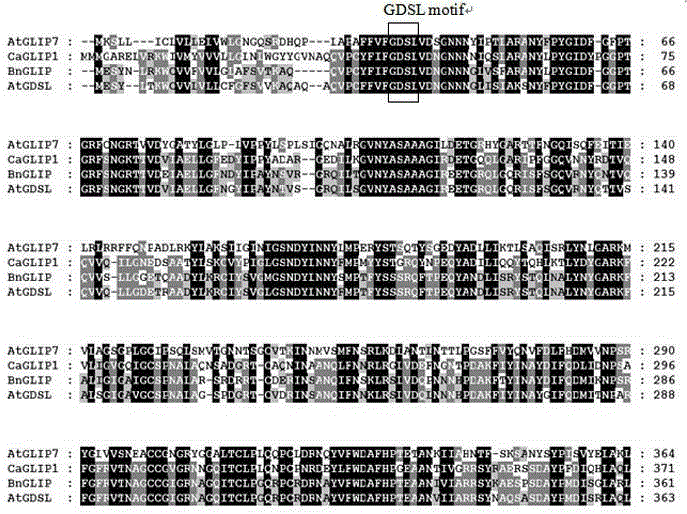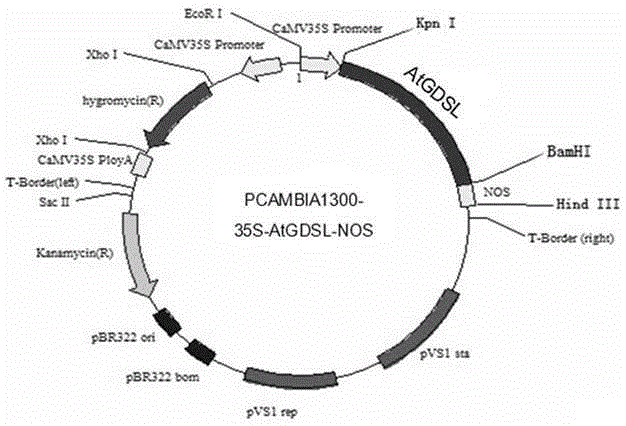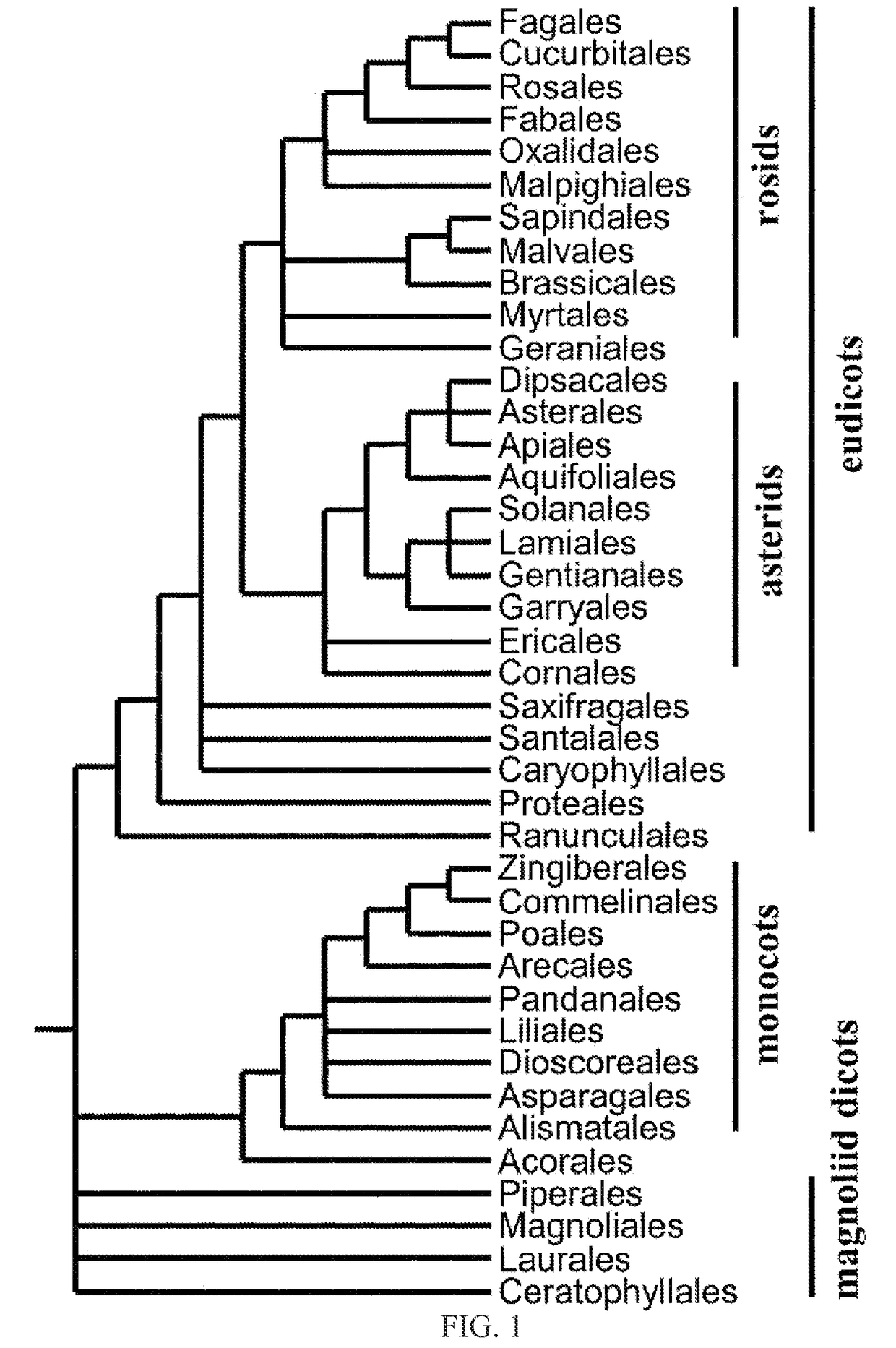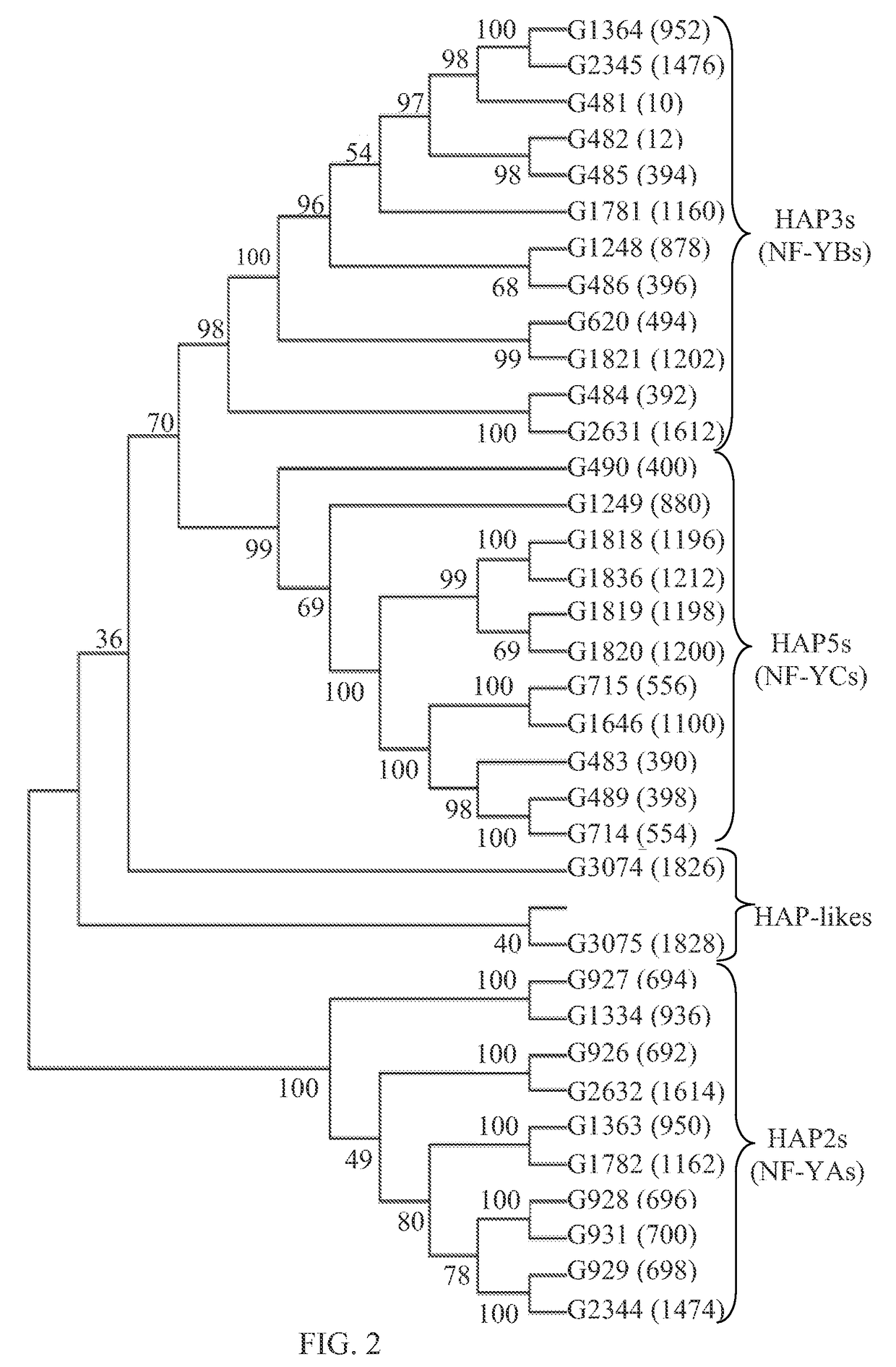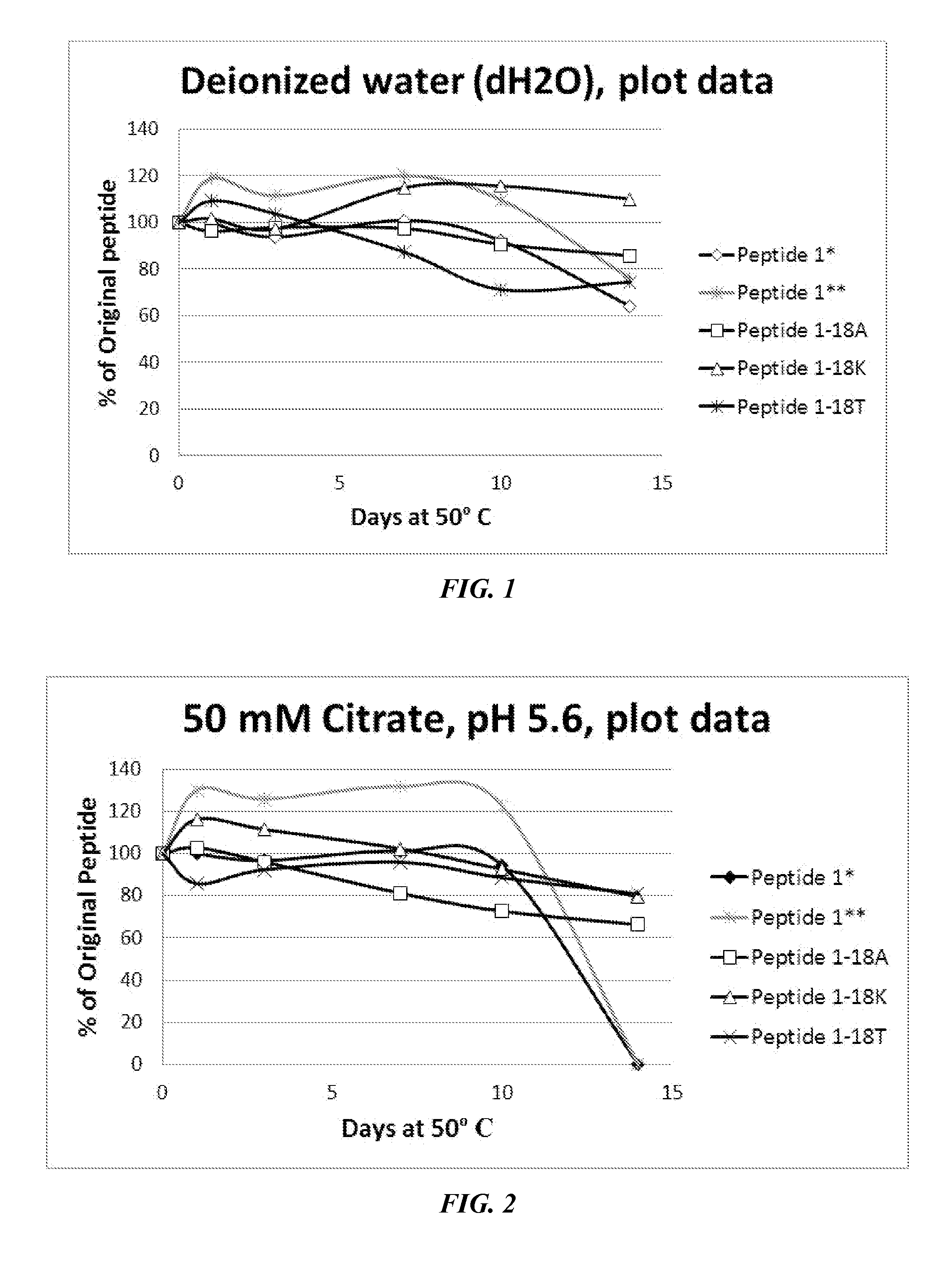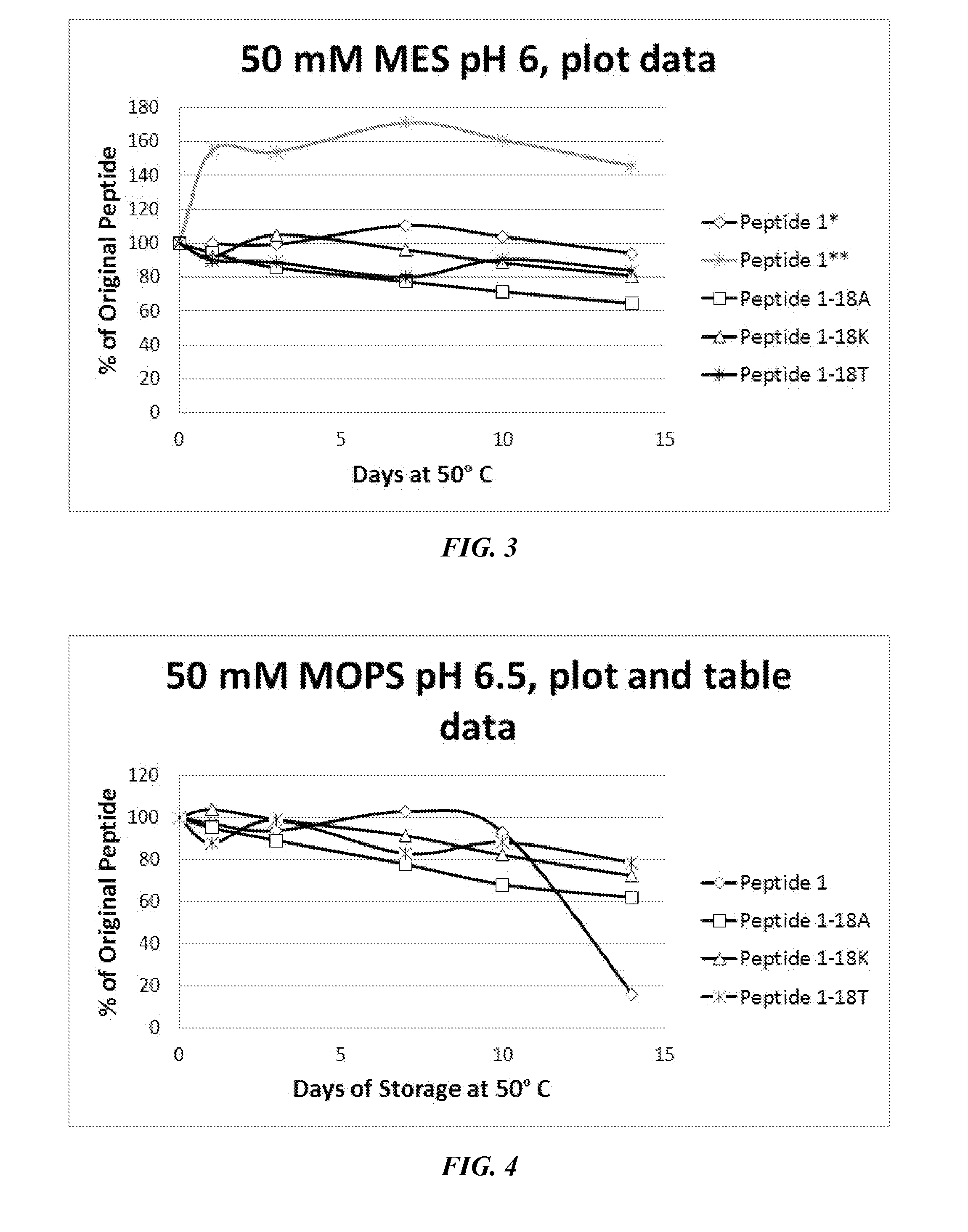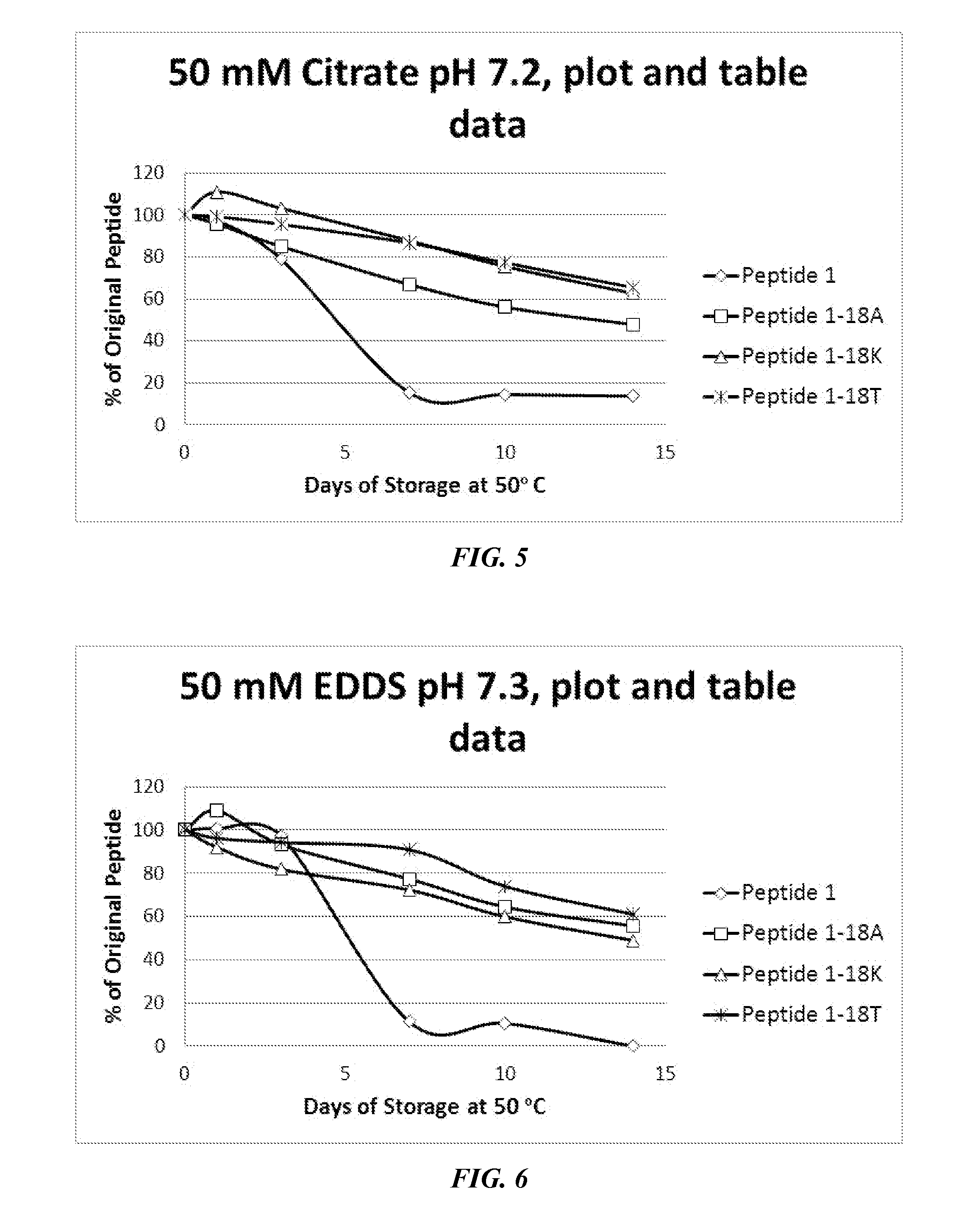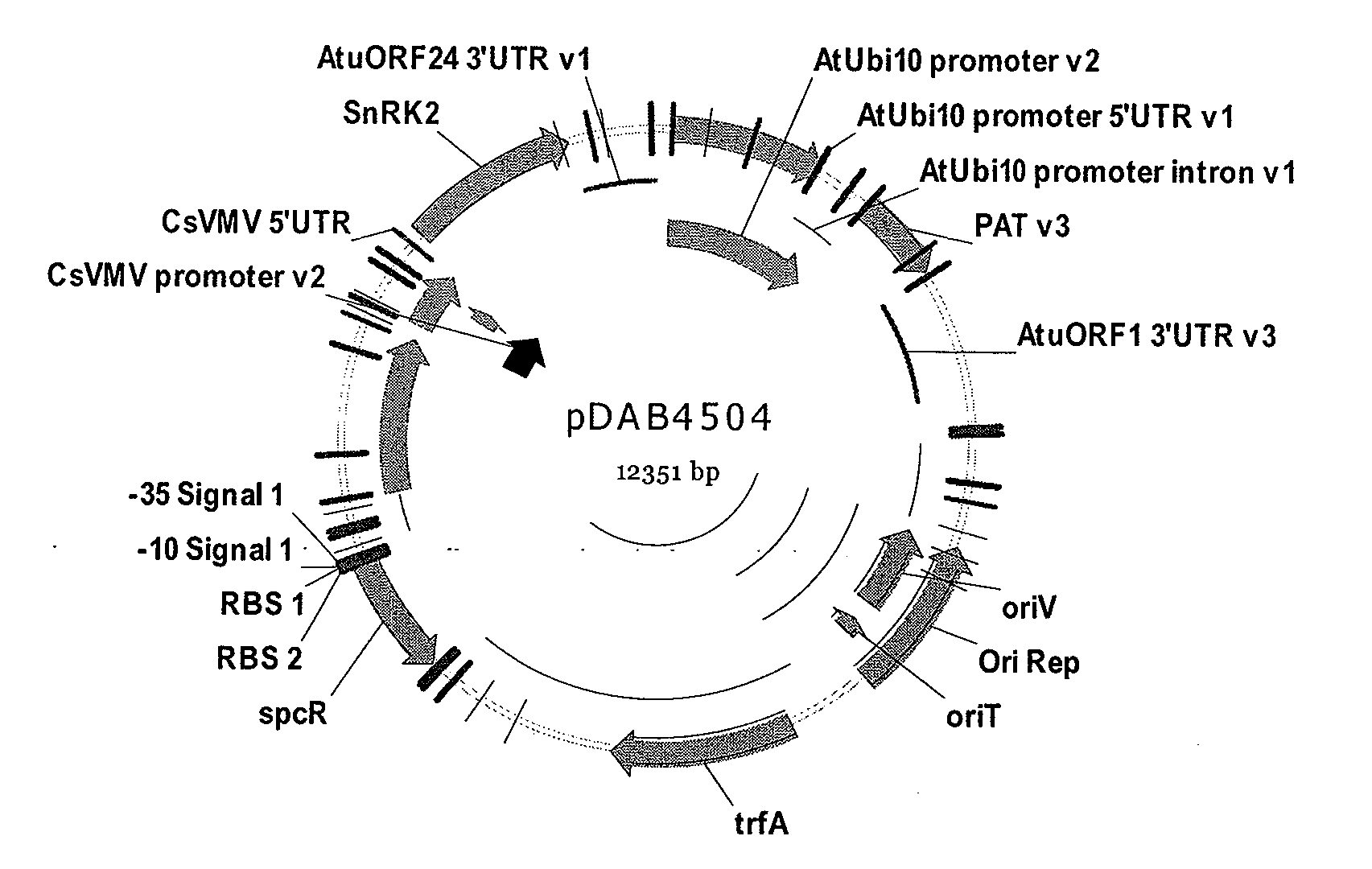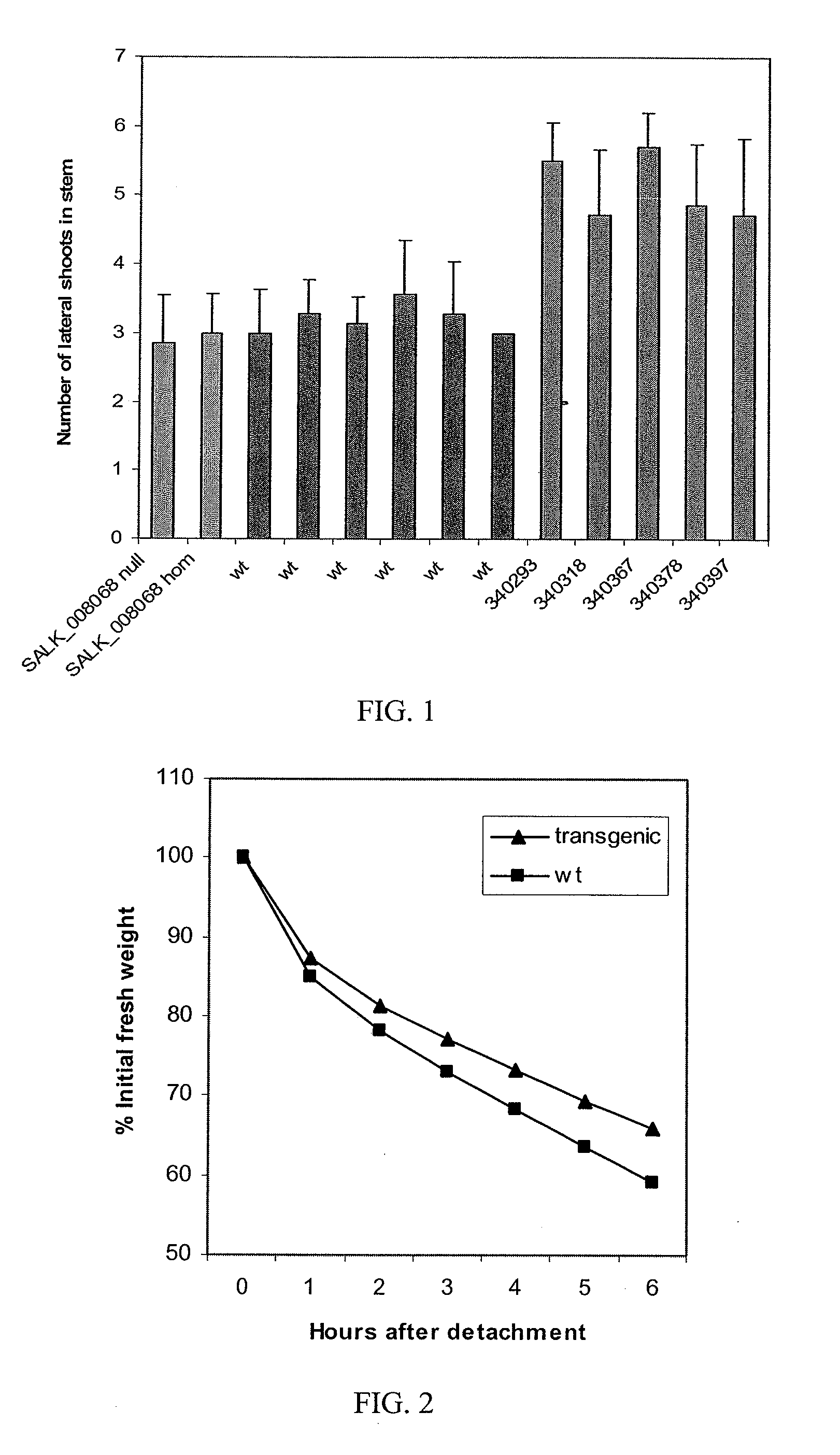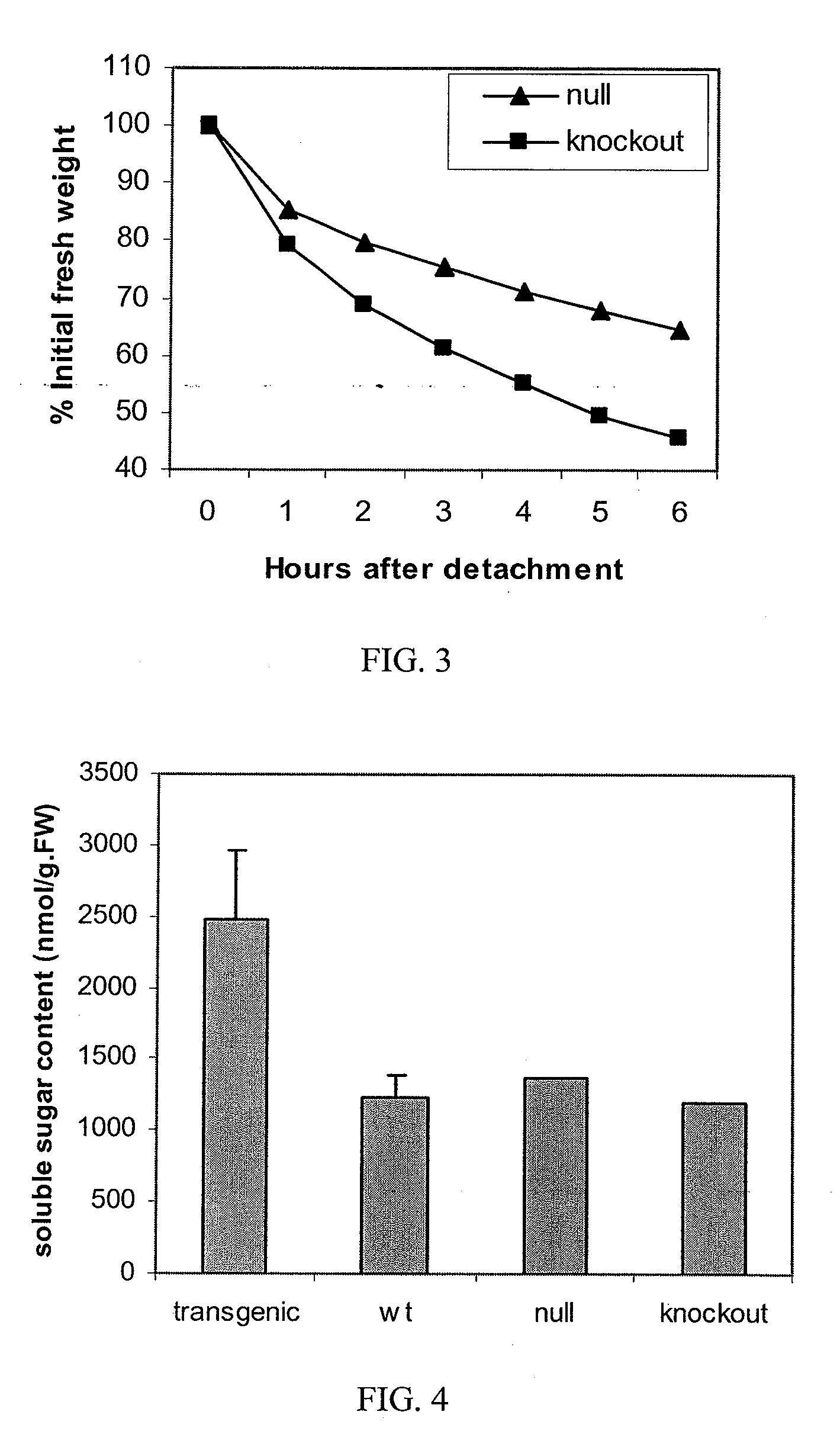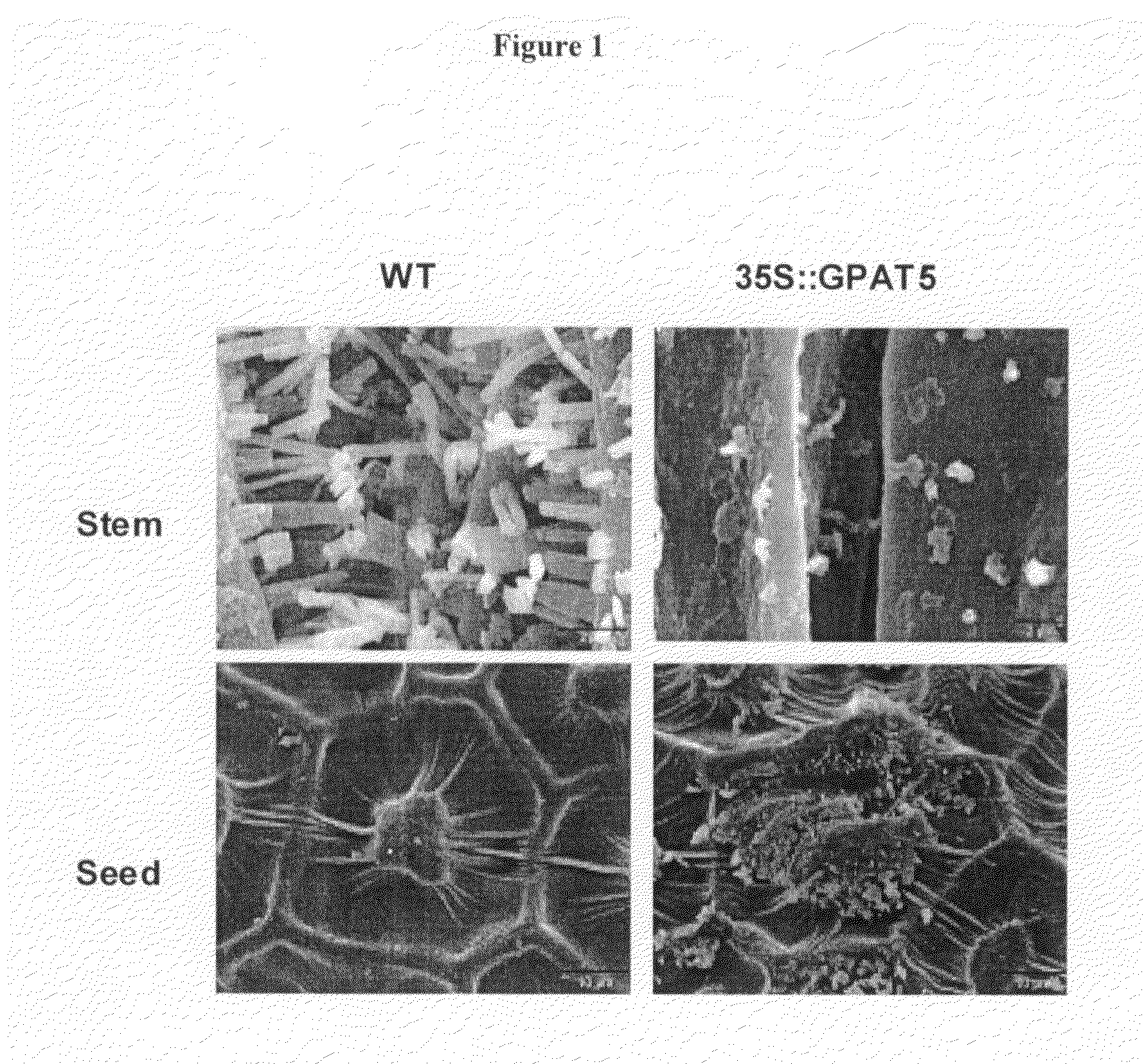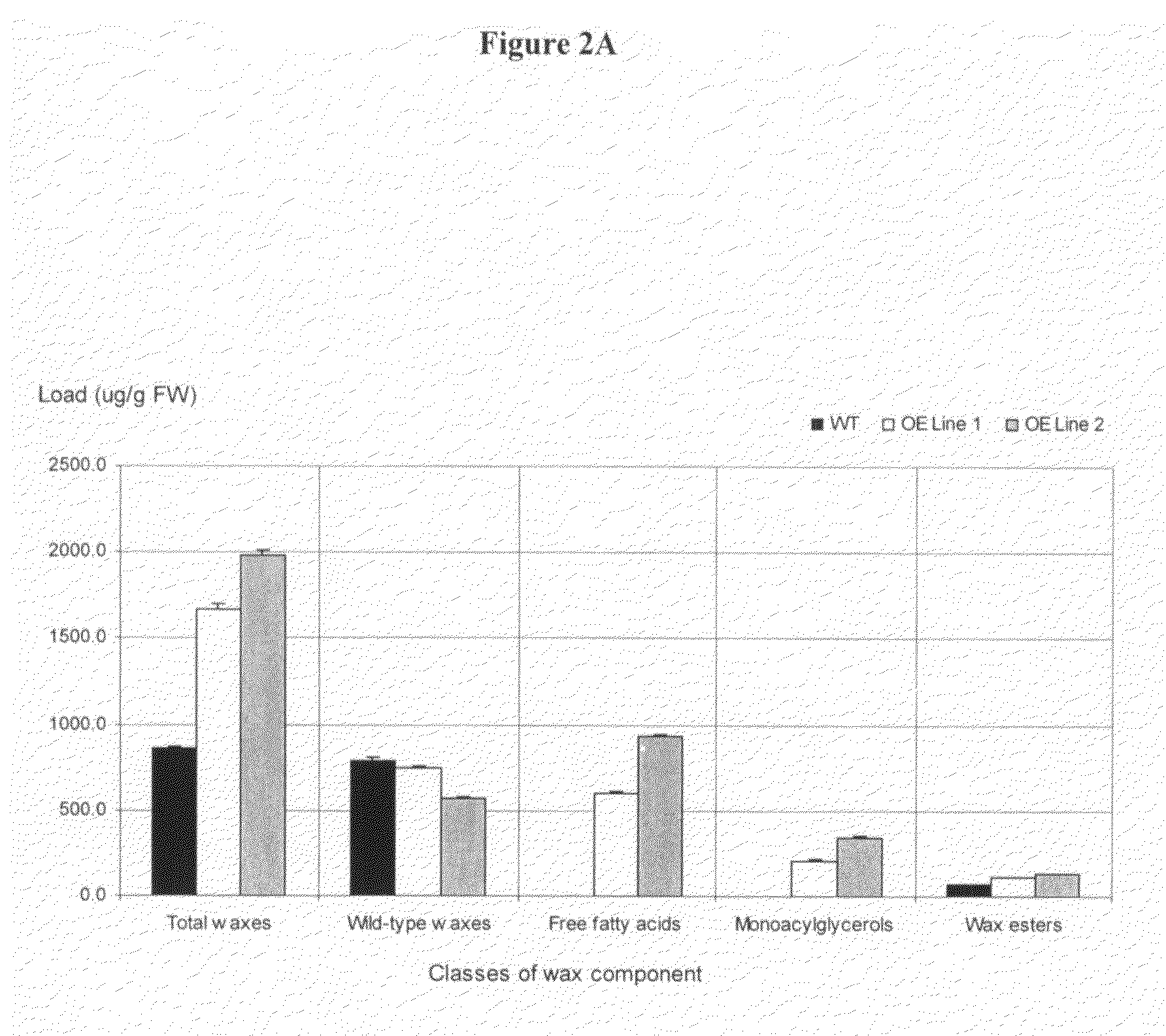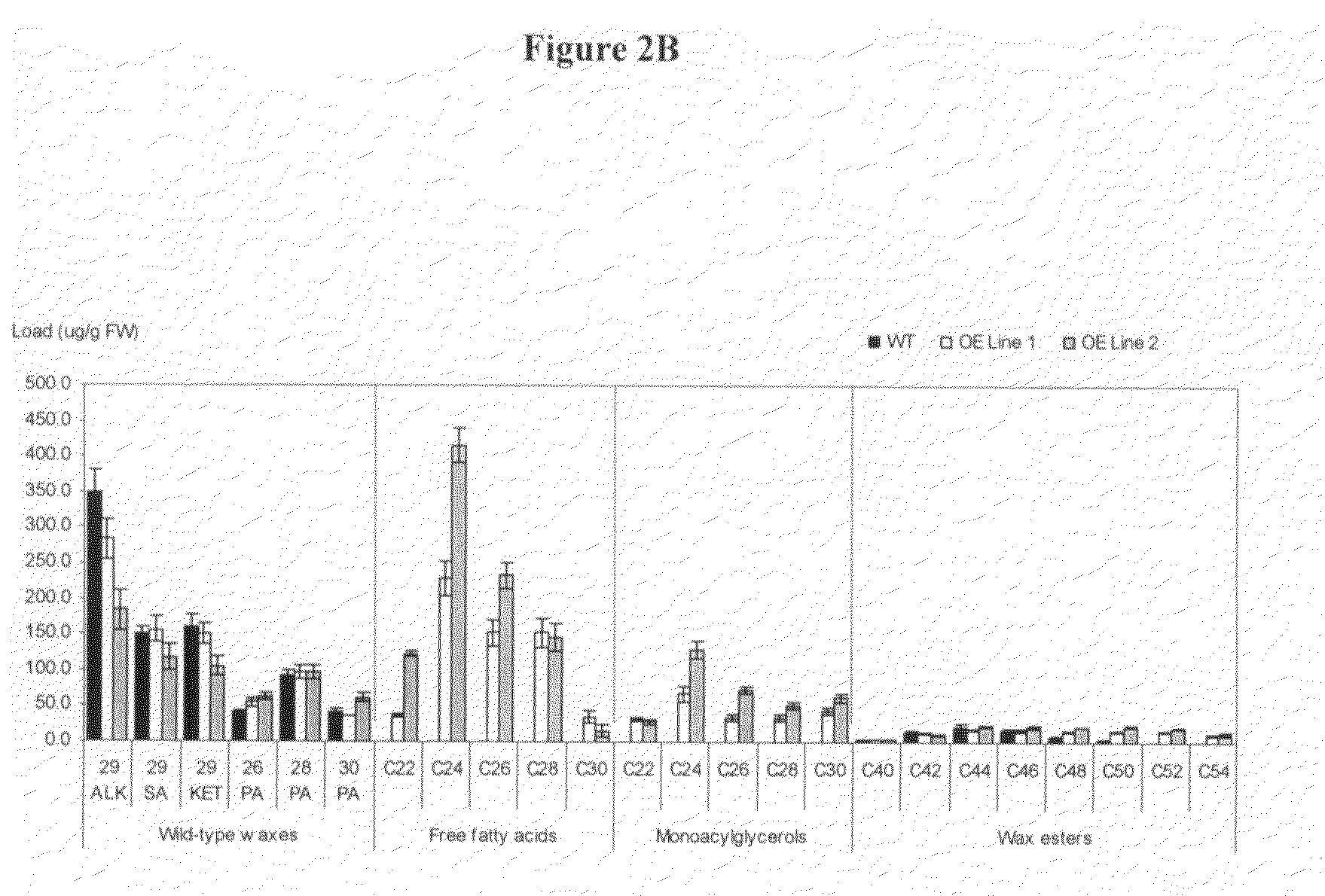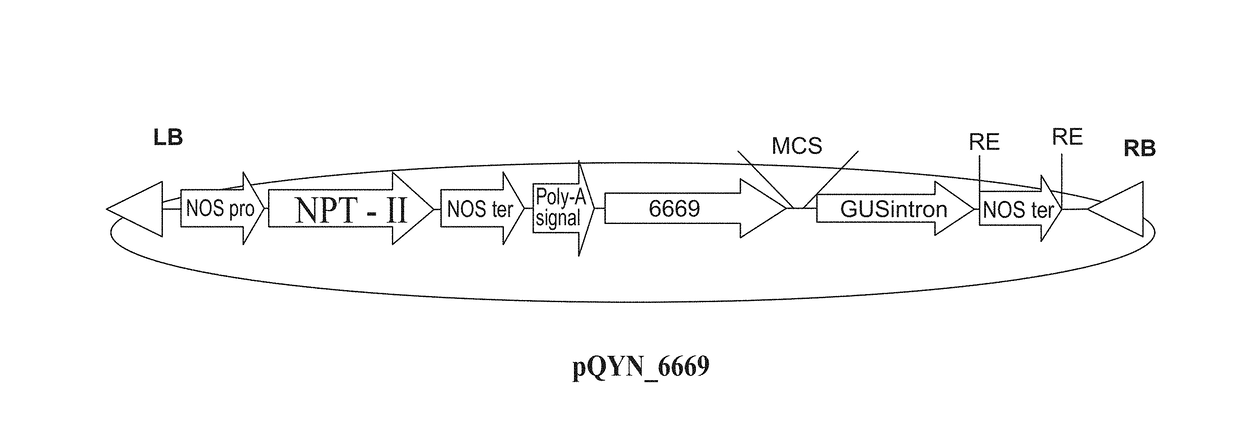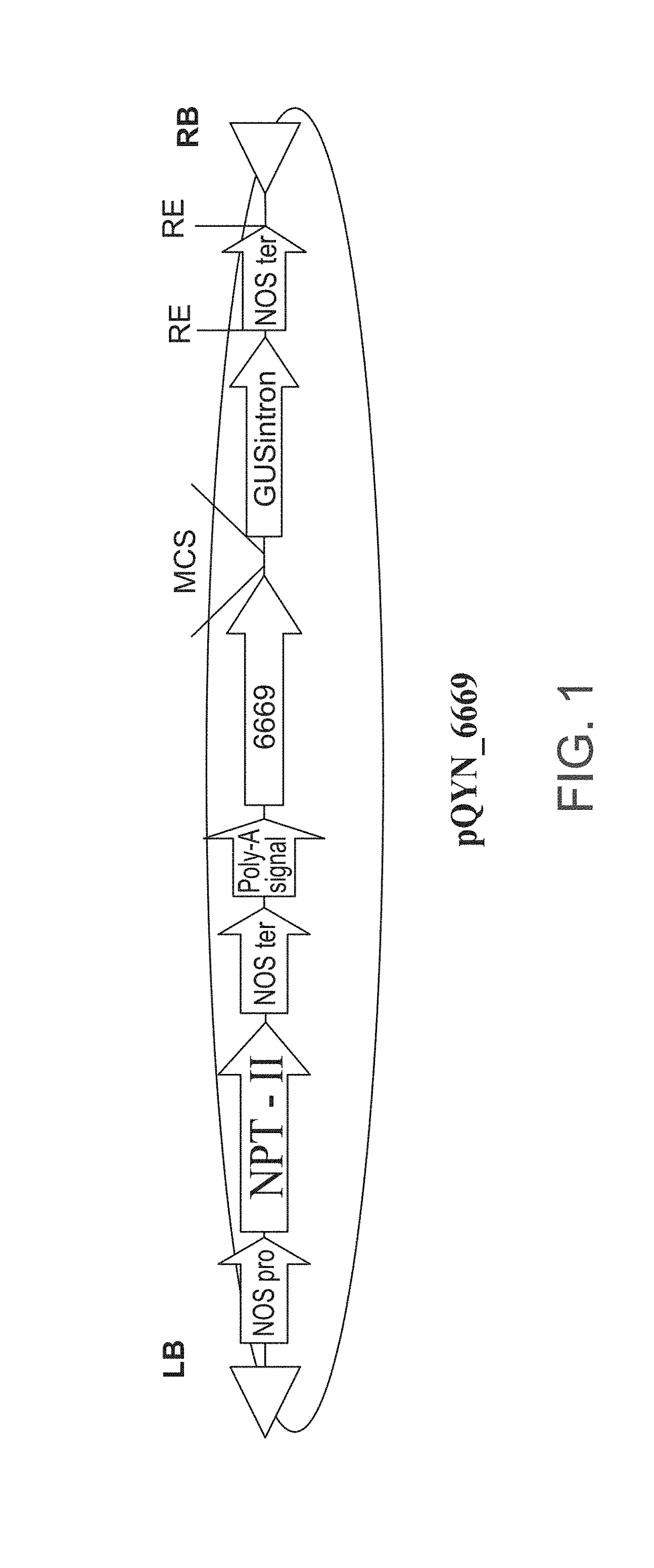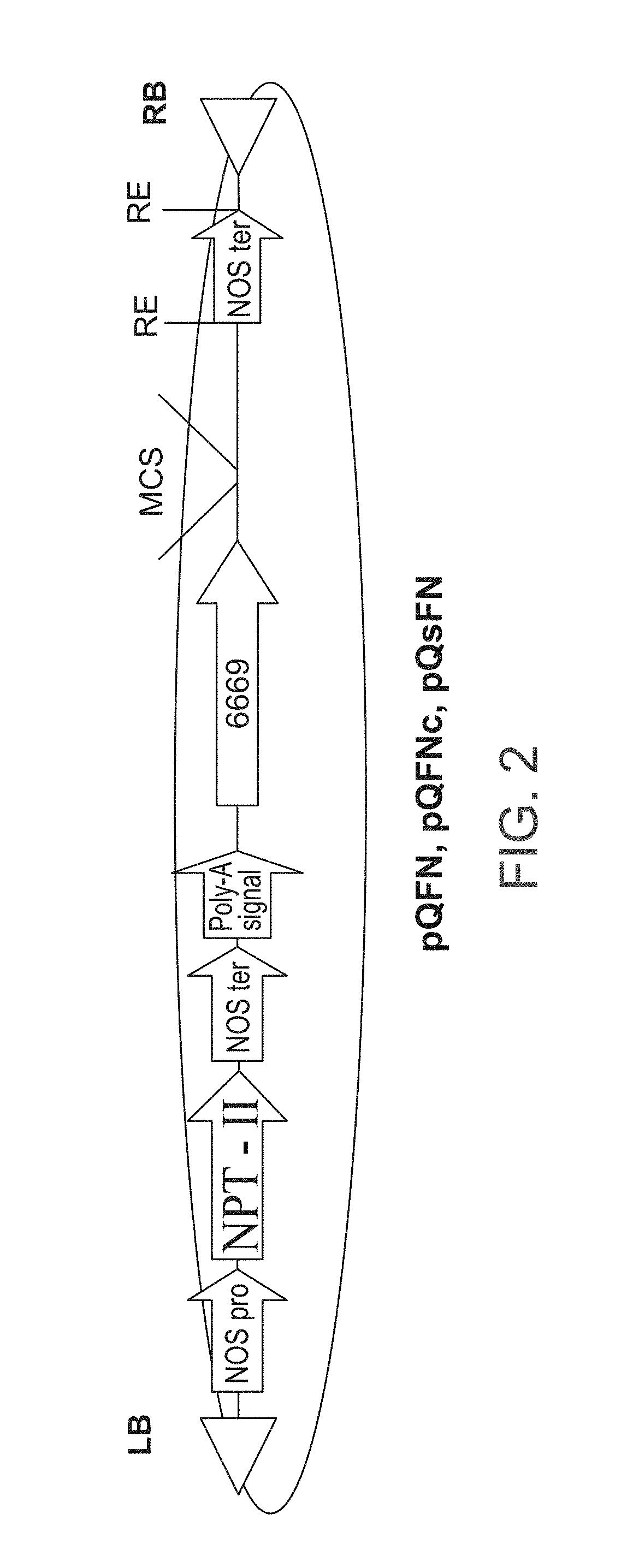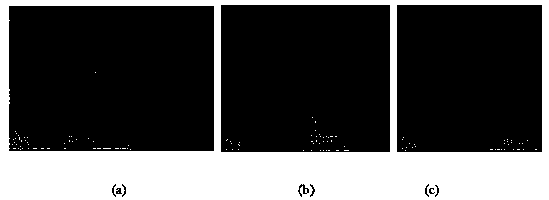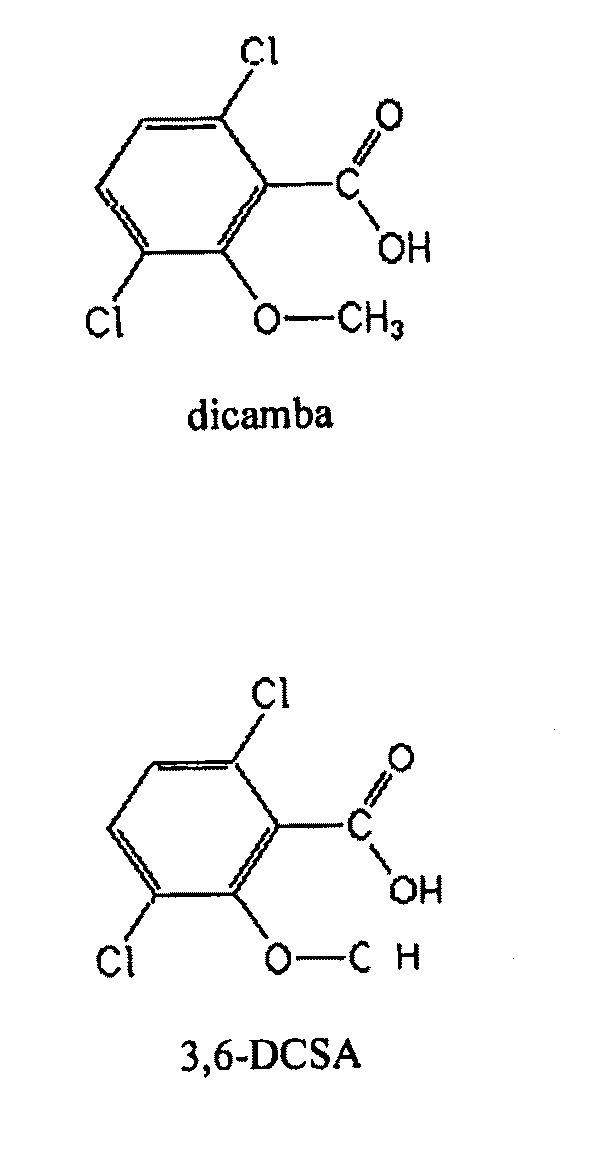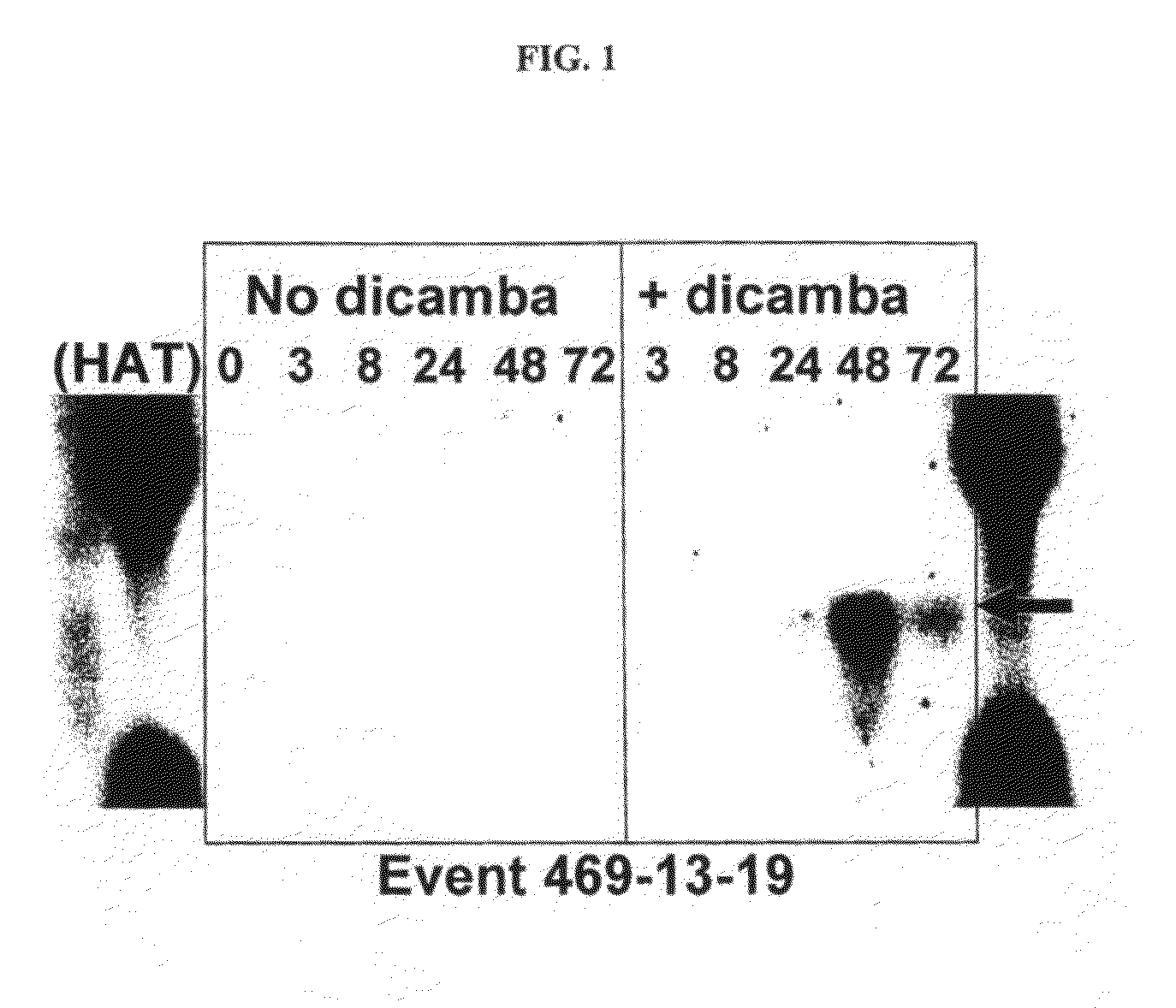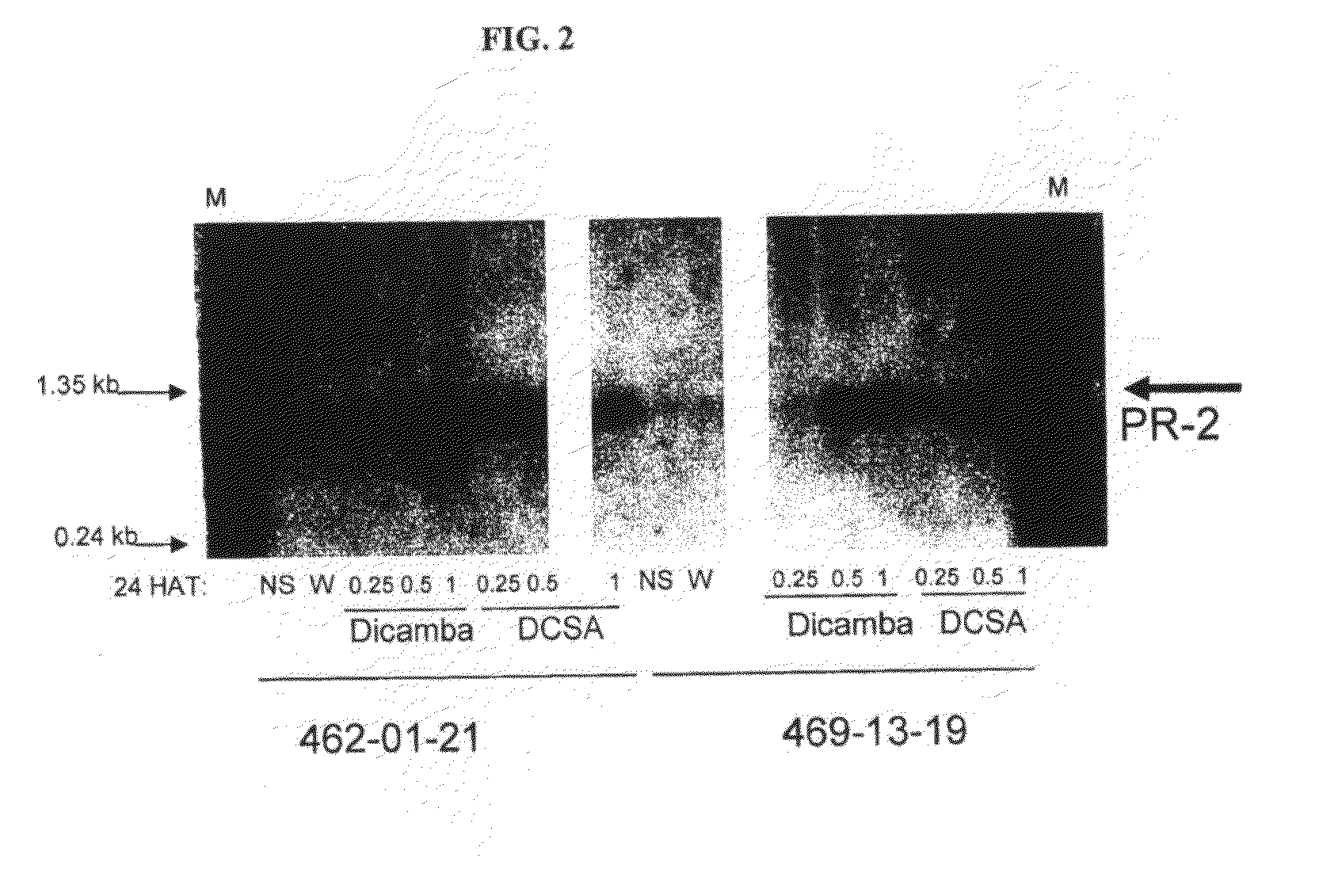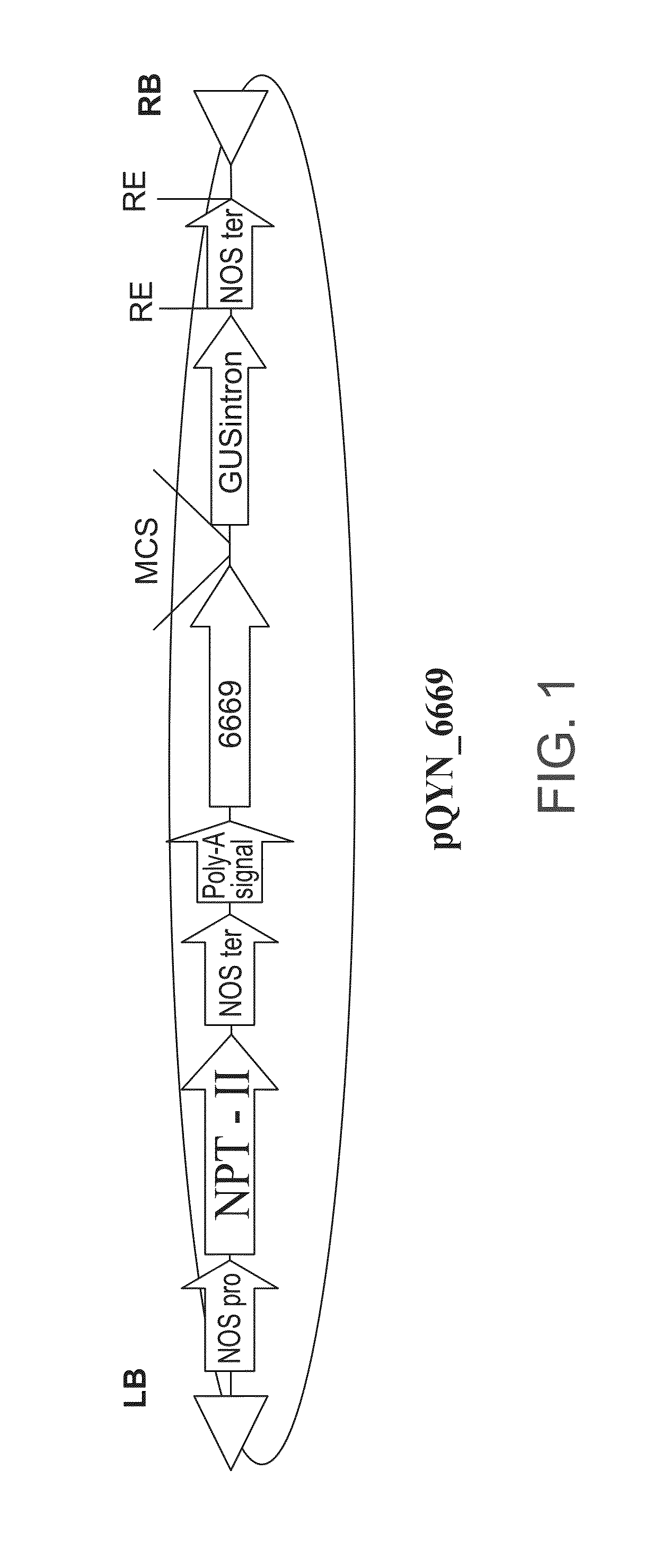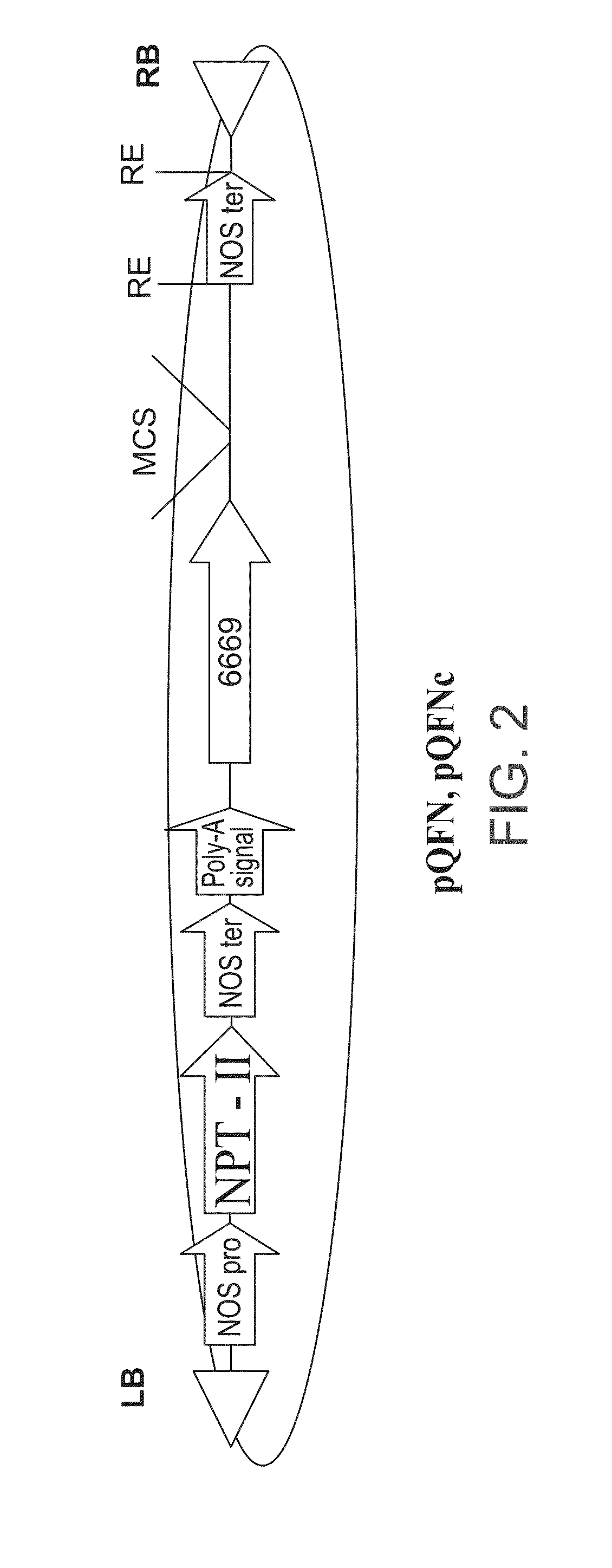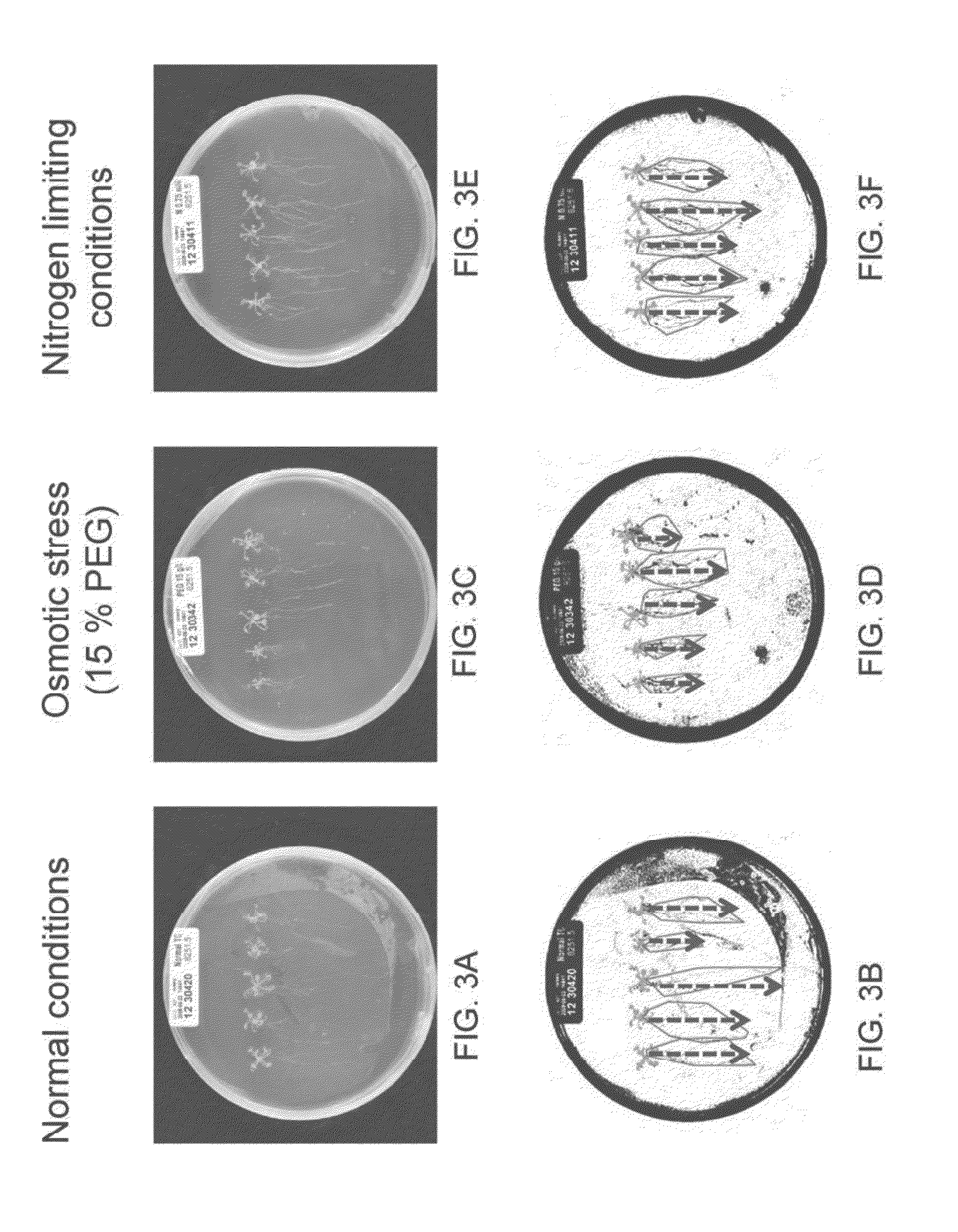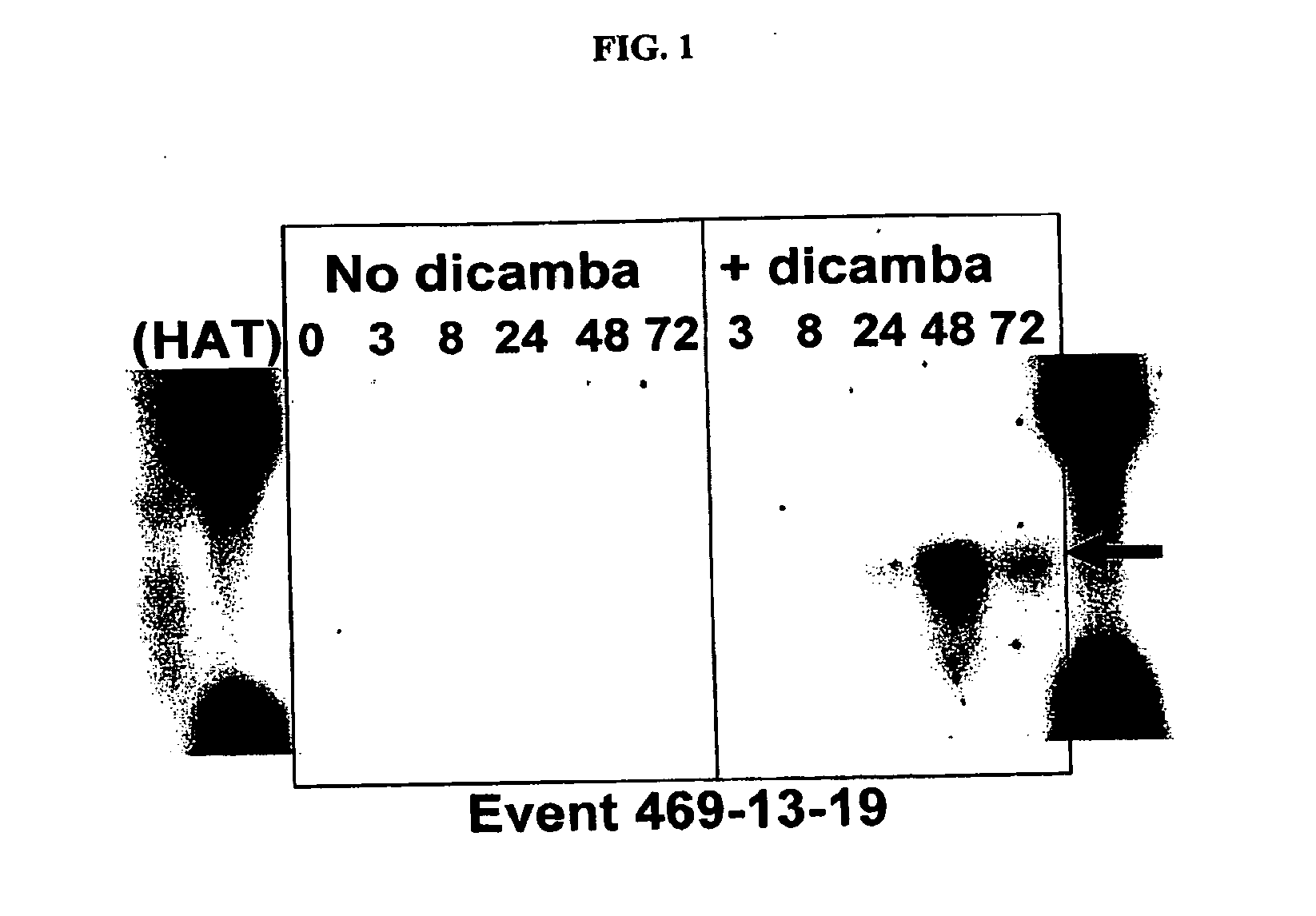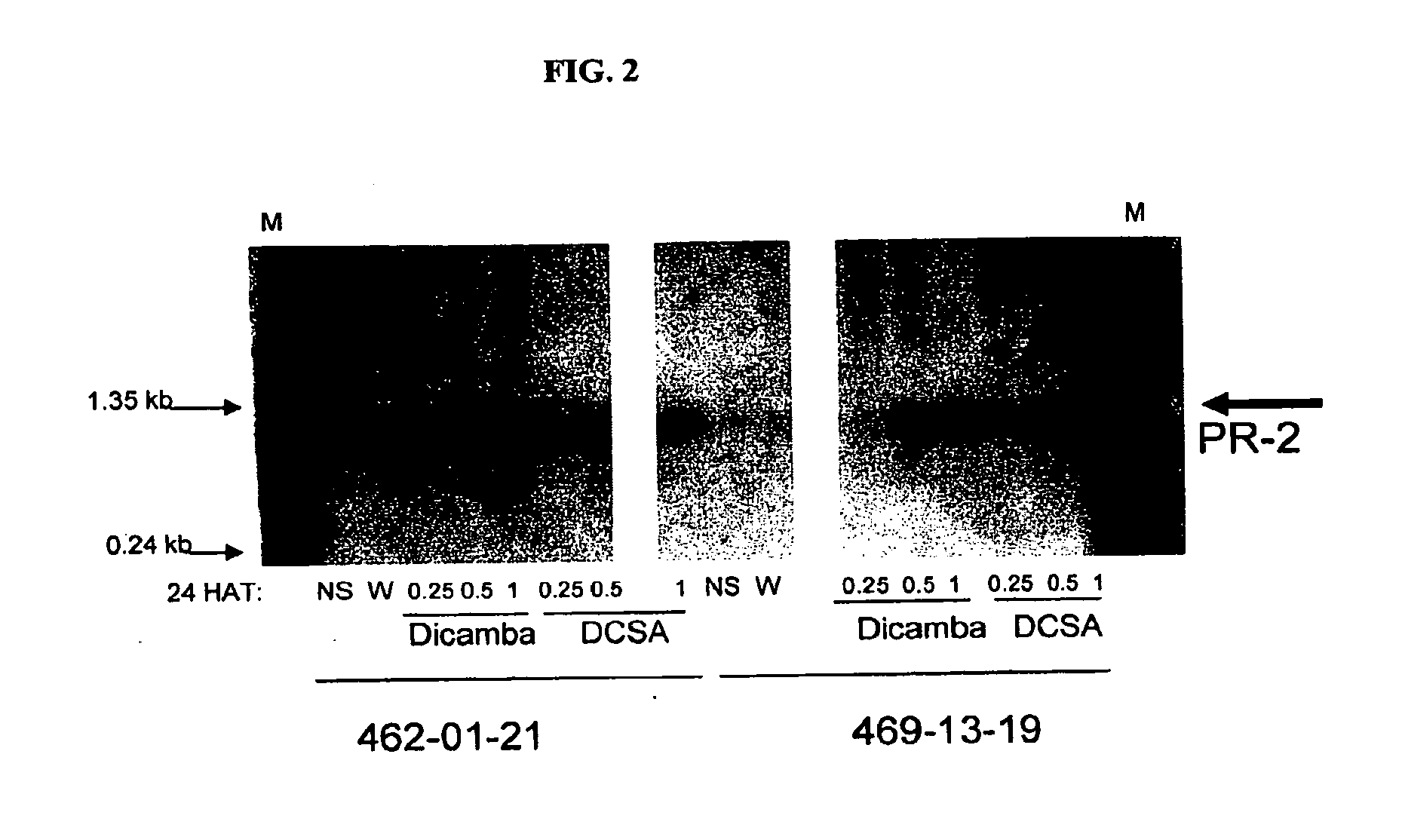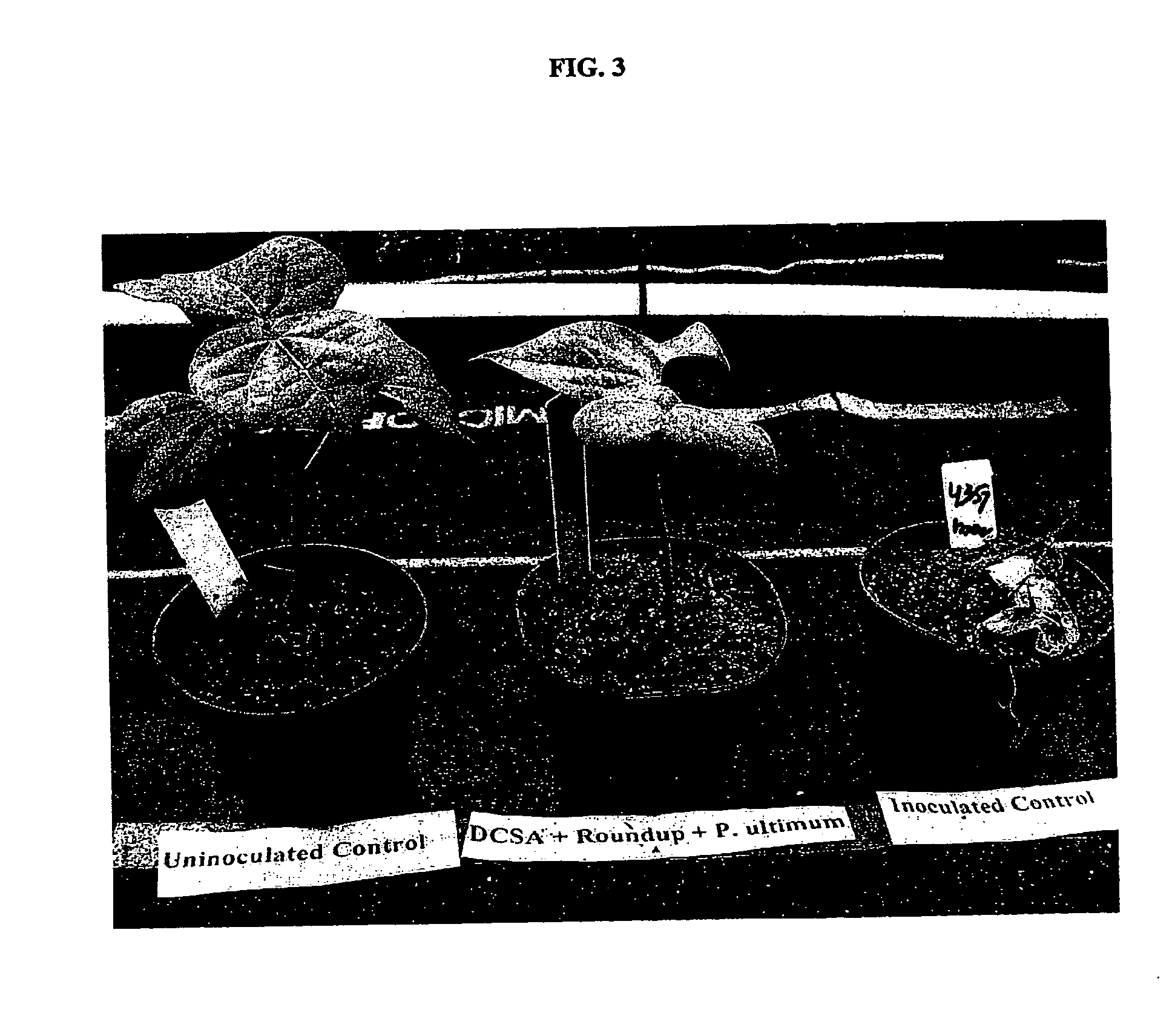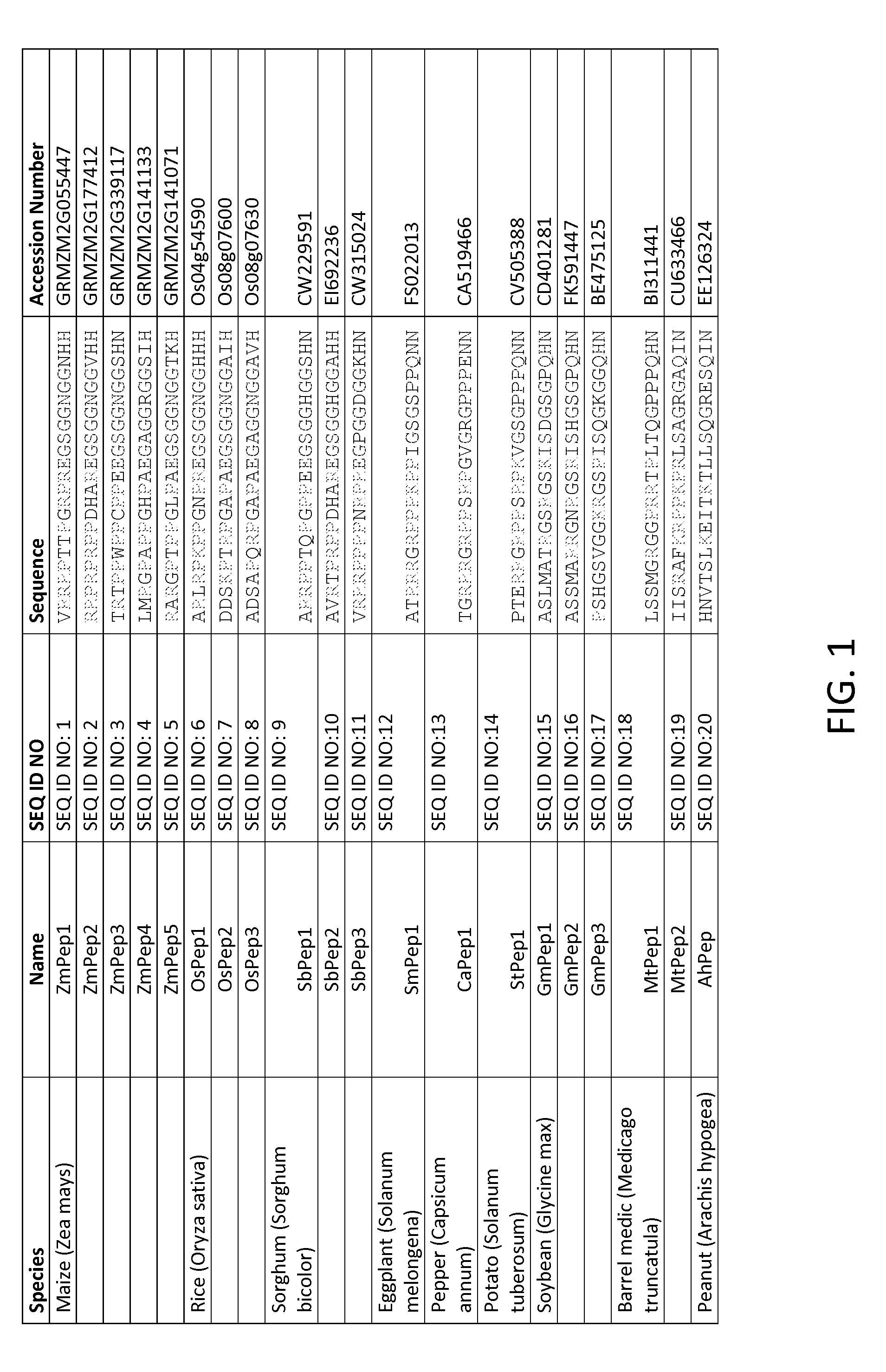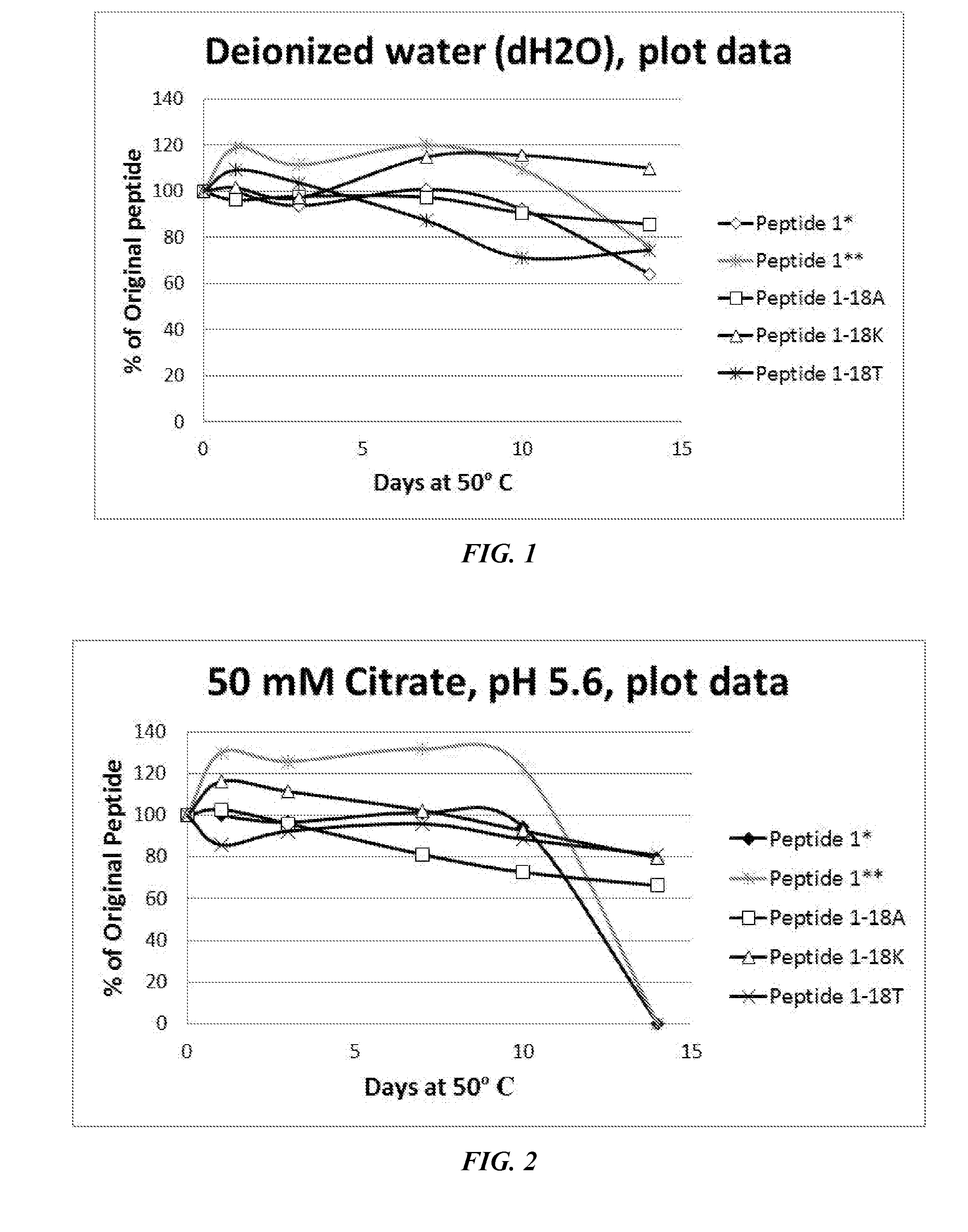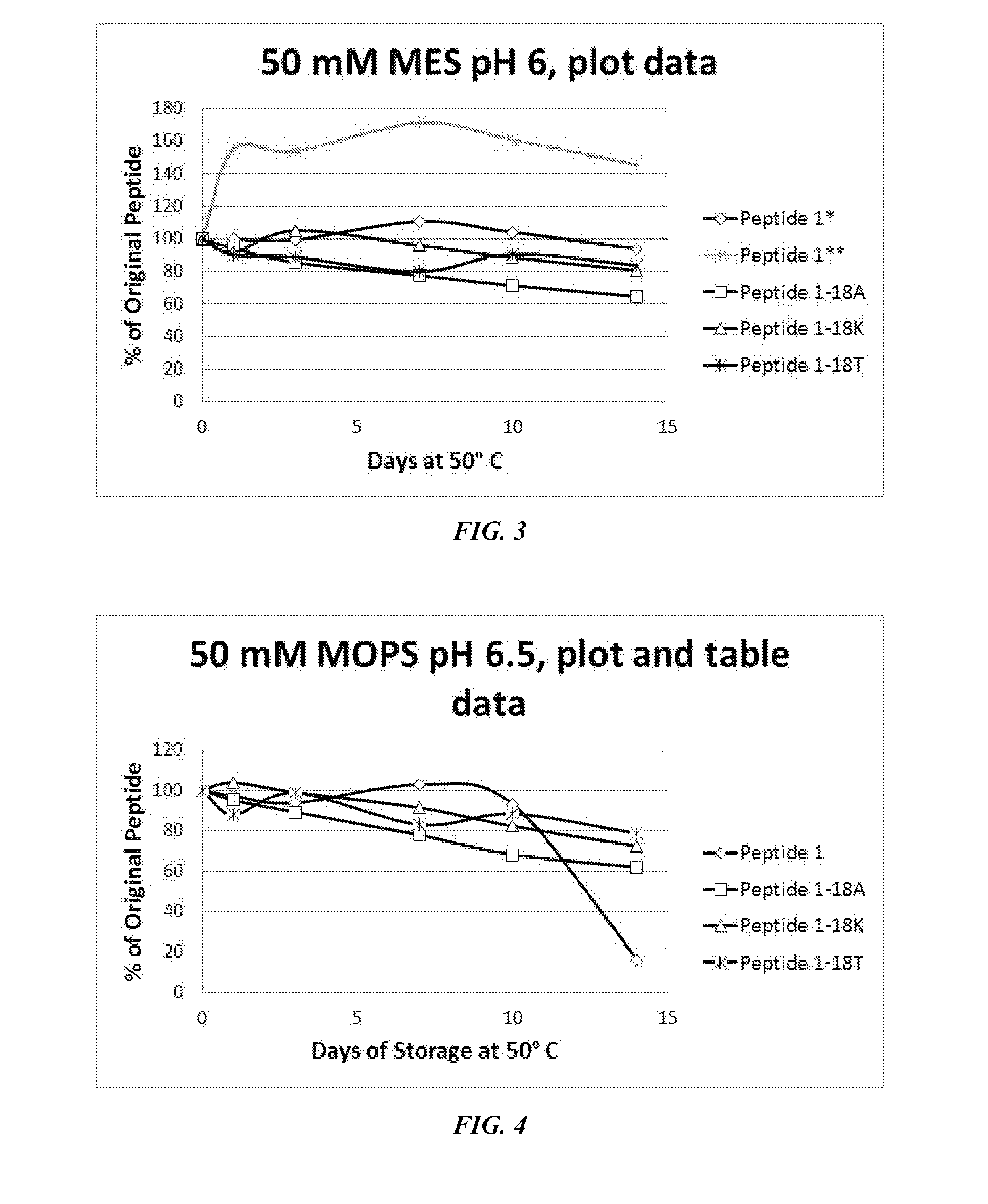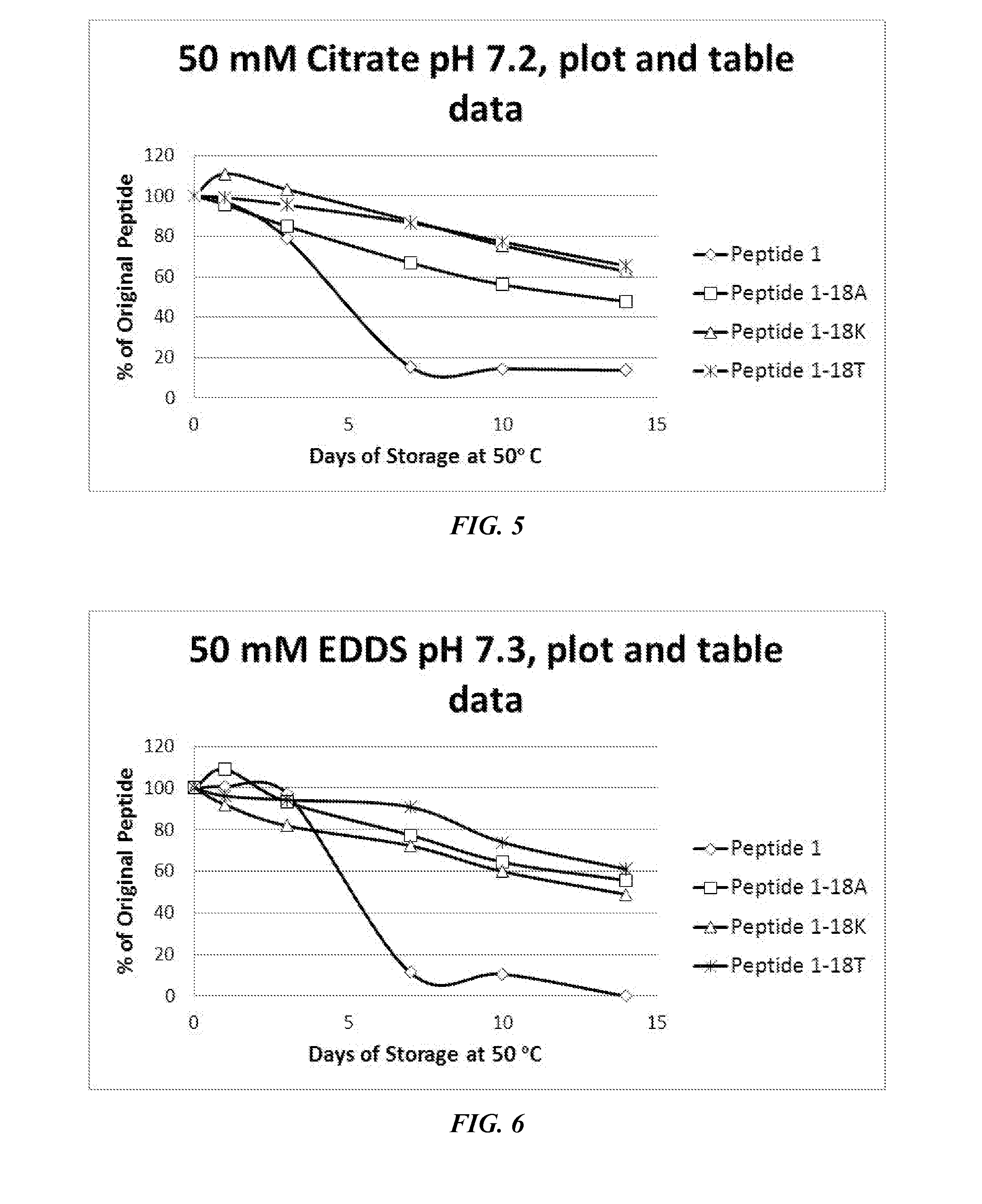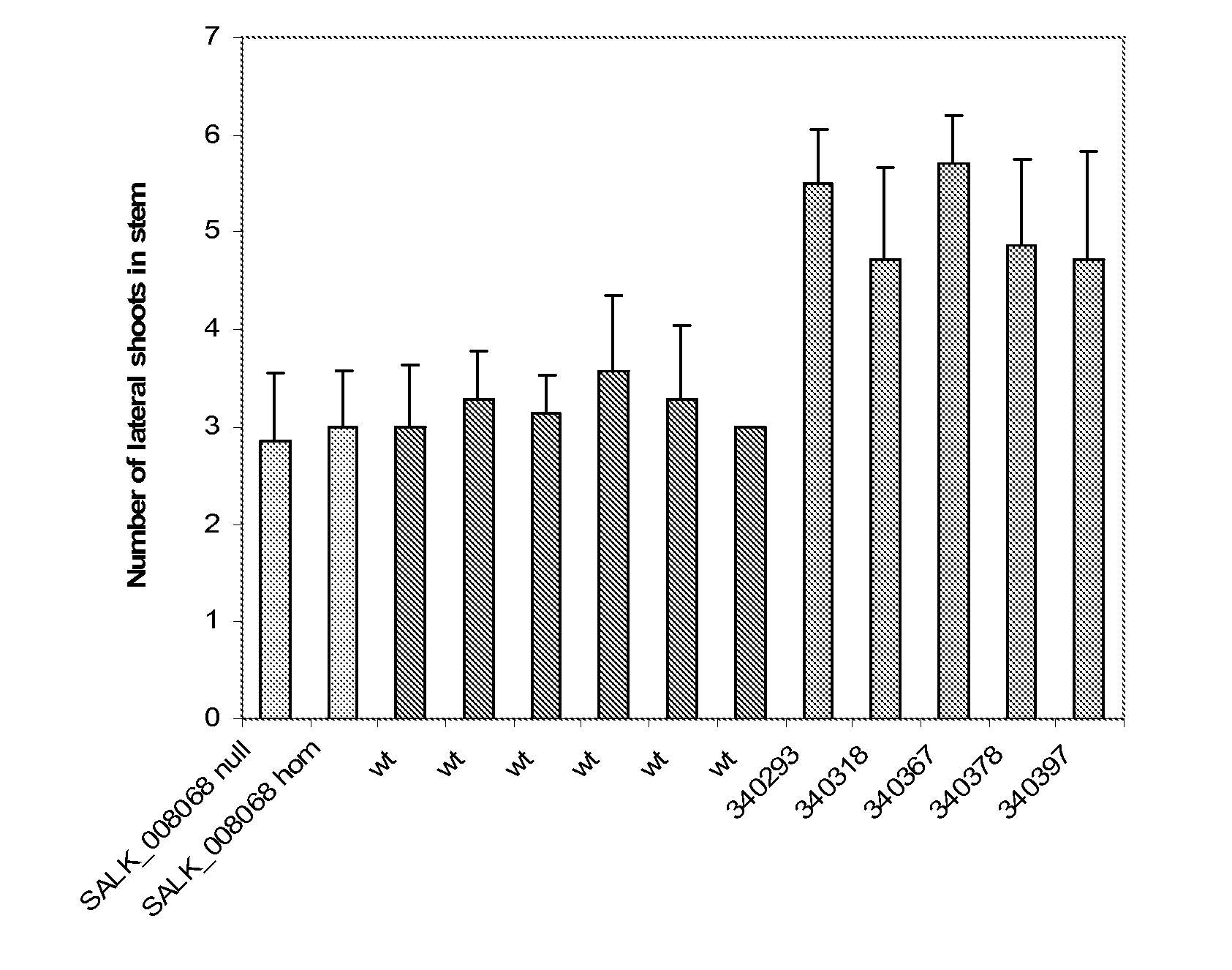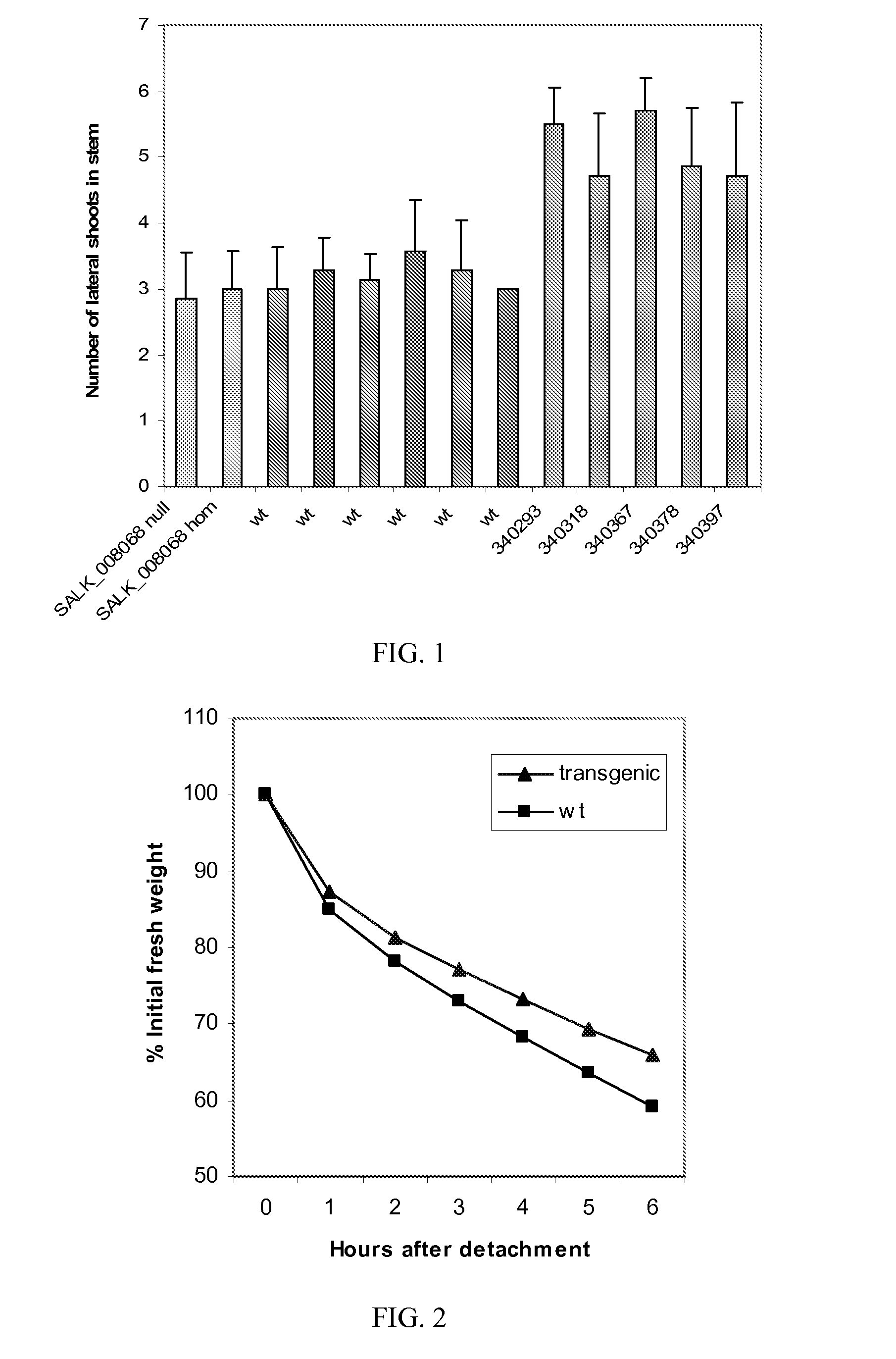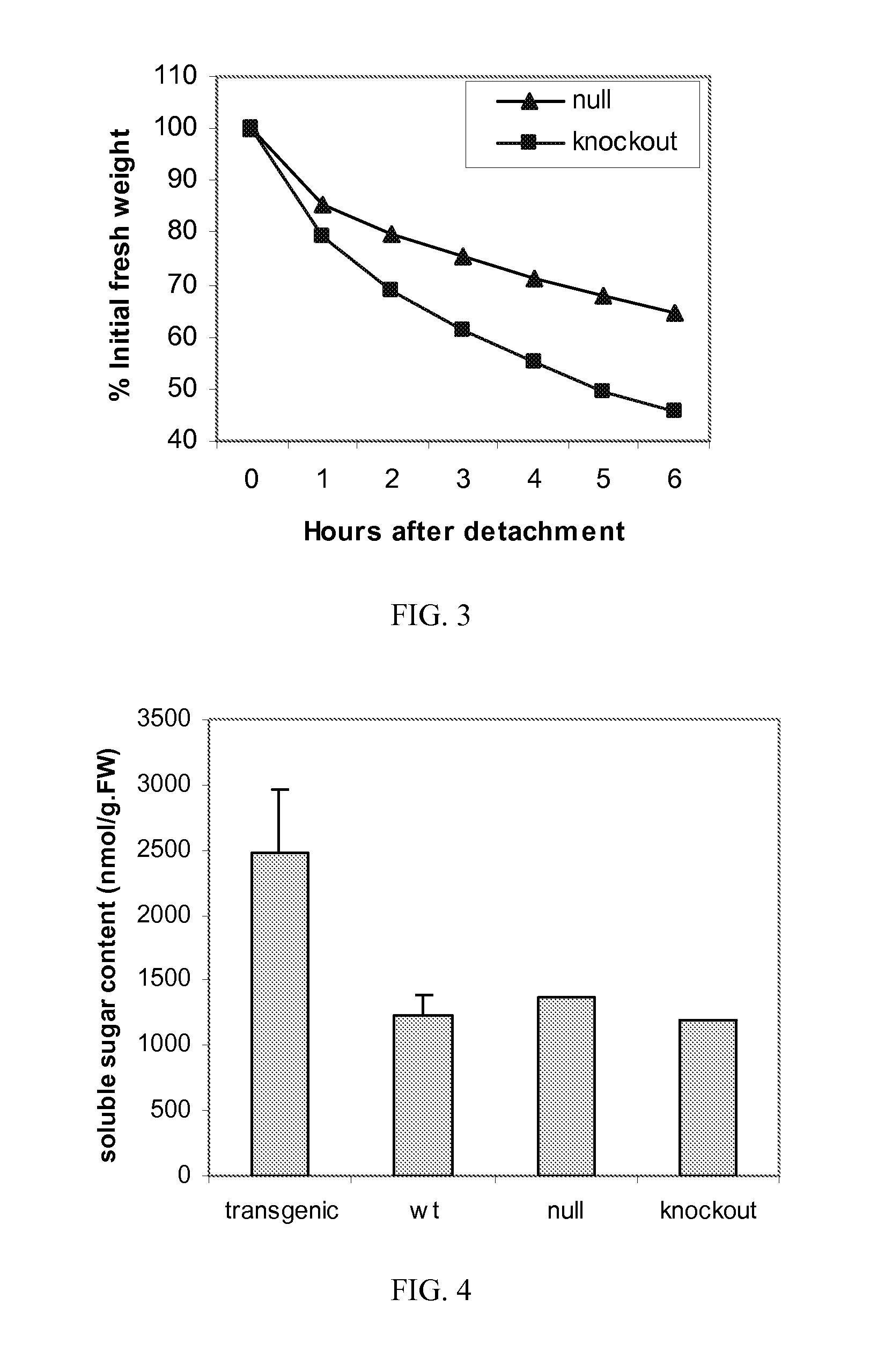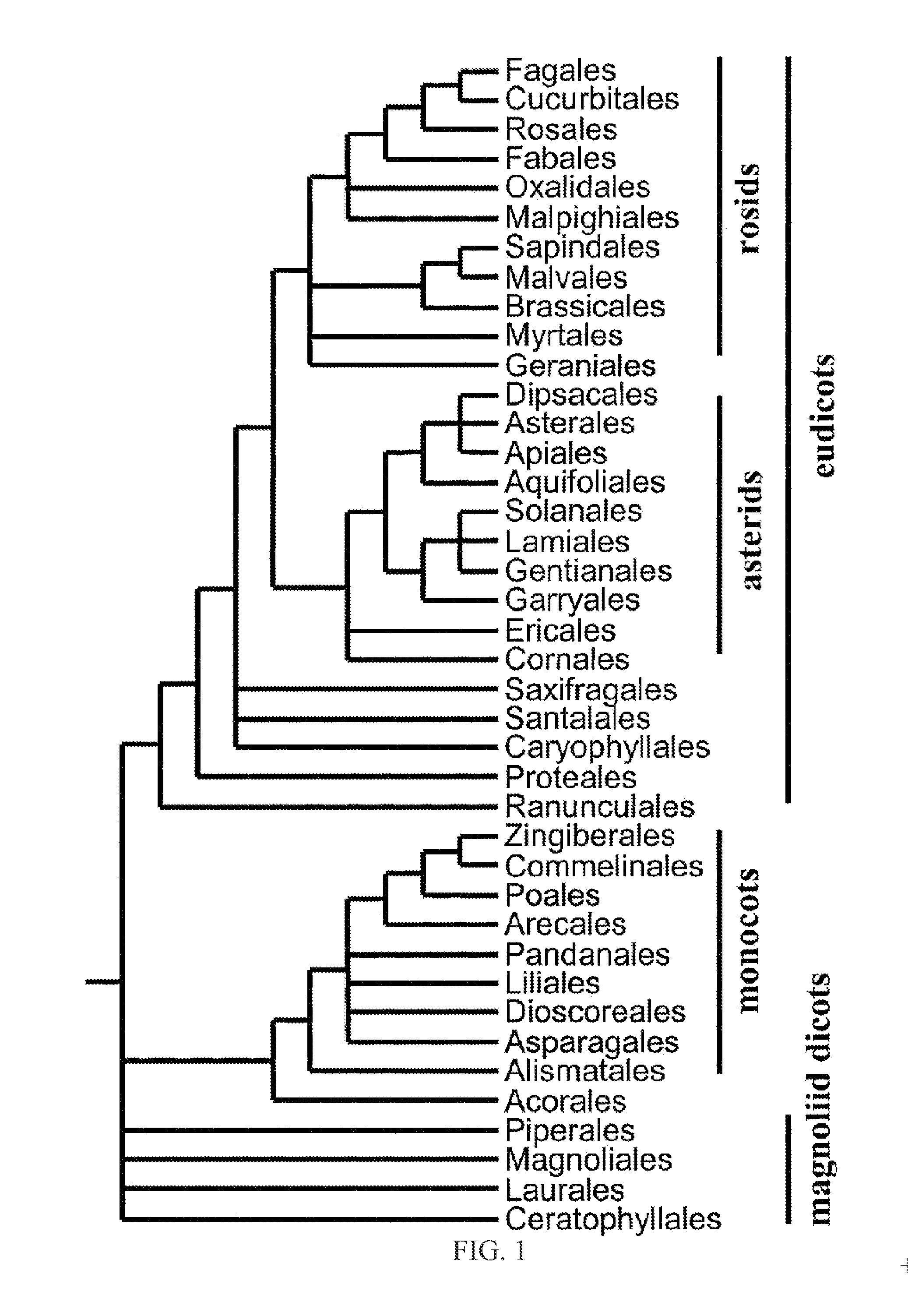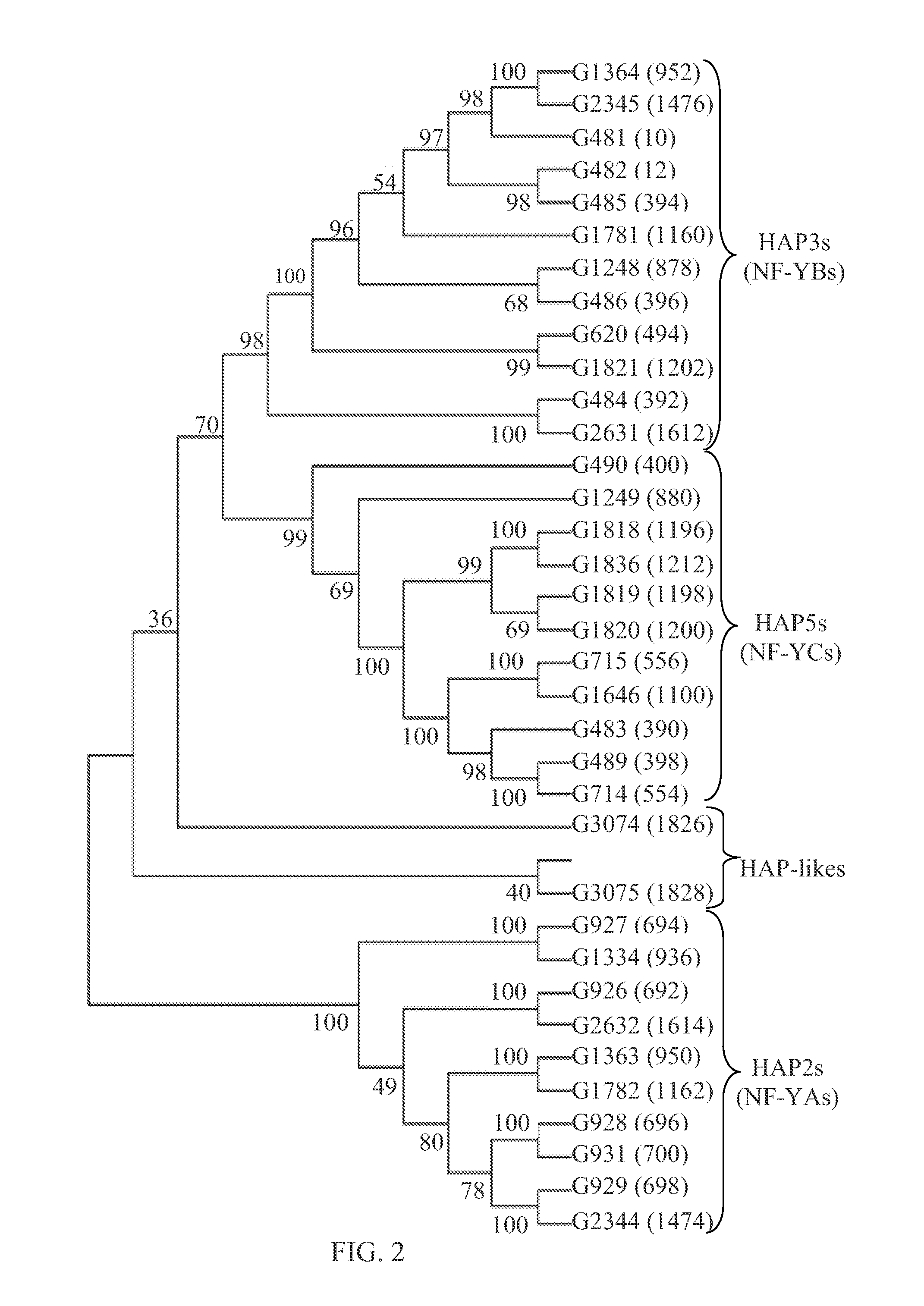Patents
Literature
111 results about "Biotic stress" patented technology
Efficacy Topic
Property
Owner
Technical Advancement
Application Domain
Technology Topic
Technology Field Word
Patent Country/Region
Patent Type
Patent Status
Application Year
Inventor
Biotic stress is stress that occurs as a result of damage done to an organism by other living organisms, such as bacteria, viruses, fungi, parasites, beneficial and harmful insects, weeds, and cultivated or native plants. It is different from abiotic stress, which is the negative impact of non-living factors on the organisms such as temperature, sunlight, wind, salinity, flooding and drought. The types of biotic stresses imposed on an organism depend the climate where it lives as well as the species' ability to resist particular stresses. Biotic stress remains a broadly defined term and those who study it face many challenges, such as the greater difficulty in controlling biotic stresses in an experimental context compared to abiotic stress.
Methods and compositions for improving plant health
The present invention provides methods and compositions for improving plant health. In particular, application of dicamba or another substrate of DMO, or metabolites thereof including DCSA, to a plant confers tolerance to, or defense against, abiotic or biotic stresses such as oxidative stress including herbicide application, and plant disease, and enhances crop yield. Such application may be in combination with the application of another herbicide such as glyphosate.
Owner:MONSANTO TECH LLC
Methods and compositions for improving plant health
ActiveUS8754011B2Good for healthTolerance to oxidative stressBiocideOrganic chemistryMetaboliteGlyphosate
The present invention provides methods and compositions for improving plant health. In particular, application of dicamba or another substrate of DMO, or metabolites thereof including DCSA, to a plant confers tolerance to, or defense against, abiotic or biotic stresses such as oxidative stress including herbicide application, and plant disease, and enhances crop yield. Such application may be in combination with the application of another herbicide such as glyphosate.
Owner:MONSANTO TECH LLC
Methods and compositions for improving plant health
ActiveUS20090105077A1Improve efficiencyGood for healthBiocidePlant growth regulatorsMetaboliteGlyphosate
The present invention provides methods and compositions for improving plant health. In particular, application of dicamba or another substrate of DMO, or metabolites thereof including DCSA, to a plant confers tolerance to, or defense against, abiotic or biotic stresses such as oxidative stress including herbicide application, and plant disease, and enhances crop yield. Such application may be in combination with the application of another herbicide such as glyphosate.
Owner:MONSANTO TECH LLC
Biotic and abiotic stress tolerance in plants
InactiveUS20090138981A1Improve the immunityIncreased susceptibilityBryophytesSugar derivativesBiotechnologyNucleotide
Transcription factor polynucleotides and polypeptides incorporated into nucleic acid constructs, including expression vectors, have been introduced into plants and were ectopically expressed. Transgenic plants transformed with many of these constructs have been shown to be more resistant to disease (in some cases, to more than one pathogen), or more tolerant to an abiotic stress (in some cases, to more than one abiotic stress). The abiotic stress may include, for example, salt, hyperosmotic stress, water deficit, heat, cold, drought, or low nutrient conditions.
Owner:MENDEL BIOTECHNOLOGY INC
Plant Stress Tolerance from Modified Ap2 Transcription Factors
InactiveUS20080229448A1Other foreign material introduction processesFermentationGMO PlantsBiotic stress
The invention relates to modified plant transcription factor polypeptides, polynucleotides that encode them, homologs from a variety of plant species, and methods of using the polynucleotides and polypeptides to produce transgenic plants having advantageous properties, including increased abiotic or biotic stress tolerance, as compared to wild-type or control plants. The modifications to the plant transcription factor sequences are responsible for producing fewer and less severe adverse morphological and developmental characteristics in plants overexpressing these sequences than would be caused by overexpressing the sequences without the modifications.
Owner:MENDEL BIOTECHNOLOGY INC
Stress tolerance in plants
Transcription factor polynucleotides and polypeptides incorporated into nucleic acid constructs, including expression vectors, have been introduced into plants and were ectopically expressed. Transgenic plants transformed with many of these constructs have been shown to be more resistant to disease (in some cases, to more than one pathogen), or more tolerant to an abiotic stress (in some cases, to more than one abiotic stress). The abiotic stress may include, for example, salt, hyperosmotic stress, water deficit, heat, cold, drought, or low nutrient conditions.
Owner:MENDEL BIOTECHNOLOGY INC
Synergistic bioinoculant composition comprising bacterial strains of accession Nos. NRRL B-30486, NRRL B-30487, and NRRL B-30488 and a method of producing said composition thereof
InactiveUS7097830B2Reduce mortalityPromote germinationBiocideBio-organic fraction processingMicrobiologyBiochemistry
The present invention relates to a synergistic composition useful as bioinoculant, said composition comprising bacterial strains of accession Nos. NRRL B-30486, NRRL B-30487, and NRRL-B 30488, individually or in all possible combinations, and optionally carrier, with each of the strains showing plant promotery activity, phytopathogenic fungi controlling activity, abiotic stress conditions tolerating capability, phosphate solubilization capability under abiotic stress conditions; further, a method of producing said composition thereof, and in addition, a method of isolating said bacterial strains from cow ‘Sahiwal’.
Owner:COUNCIL OF SCI & IND RES
Method of conferring multiple stress tolerance and early flowering in plants
InactiveUS20080005810A1Improve germination rateImprove toleranceOther foreign material introduction processesFermentationAbscisic acidNannochloropsis
Transgenic plants are more tolerant to environmental stresses than untransformed plants. The pea ABR17 (Abscisic acid responsive 17) is used to enhance germination of plants such as Arabidopsis sp. and Brassica sp. while under multiple abiotic stresses, and to enhance the tolerance of these plants to these stresses. Three independently derived Arabidopsis transgenic lines, containing ABR17, germinated better in the presence of salt, cold temperature or both. The transgenic plants also exhibited enhanced tolerance to freezing temperature or extreme heat. Furthermore, the transgenic plants demonstrated early flowering even under normal, non-stressed conditions.
Owner:THE GOVERNORS OF THE UNIV OF ALBERTA
Synergistic bioinoculant composition comprising bacterial strains of accession Nos. NRRL B-30486, NRRL B-30487, and NRRL B-30488 and a method of producing said composition thereof
InactiveUS20030211119A1Maximum viabilityReduce mortalityBiocideBio-organic fraction processingBacteroidesPhosphate
The present invention relates to a synergistic composition useful as bioinoculant, said composition comprising bacterial strains of accession Nos. NRRL B-30486, NRRL B-30487, and NRRL-B 30488, individually or in all possible combinations, and optionally carrier, with each of the strains showing plant promotery activity, phytopathogenic fungi controlling activity, abiotic stress conditions tolerating capability, phosphate solubilization capability under abiotic stress conditions; further, a method of producing said composition thereof, and in addition, a method of isolating said bacterial strains from cow 'Sahiwal'.
Owner:COUNCIL OF SCI & IND RES
Mitogen-activated protein kinase and method of use to enhance biotic and abiotic stress tolerance in plants
InactiveUS20040209325A1Improve toleranceReduced abiotic stress toleranceBryophytesSugar derivativesMitogen-activated proteinTransgene
The present invention relates to the mitogen-activated protein kinase called MAPK5. The rice MAPK5 gene, its protein and kinase activity were induced by abscisic acid, pathogen infection, wounding, drought, salt and cold temperature. However, suppression of MAPK5 expression and kinase activity in dsRNAi transgenic plants resulted in constitutive expression of pathogenesis-related genes such as PR-1 and PR-10 but enhanced resistance to fungal and bacterial pathogens. In contrast, overexpressed transgenic lines exhibited elevated MAPK5 kinase activity and increased tolerance to drought, salt and cold stresses. This invention provides methods for increasing tolerance to abiotic and biotic stress in plant using MAPK5.
Owner:THE BOARD OF TRUSTEES OF THE UNIV OF ARKANSAS
Elicitor peptides having disrupted hypersensitive response box and use thereof
ActiveUS20160095315A1Extend your lifeImparting resistanceBiocidePeptide/protein ingredientsDNA constructHypersensitive response
Disclosed are peptides that induce an active plant response, but not a hypersensitive response, when applied to plant tissue. These peptides also preferably exhibit improved solubility, stability, resistance to chemical degradation, or a combination of these properties. Use of these peptides or fusion polypeptides, or DNA constructs encoding the same, for modulating plant biochemical signaling, imparting disease resistance to plants, enhancing plant growth, imparting tolerance to biotic stress, imparting tolerance and resistance to abiotic stress, imparting desiccation resistance to cuttings removed from ornamental plants, imparting post-harvest disease or post-harvest desiccation resistance to a fruit or vegetable, or enhancing the longevity of fruit or vegetable ripeness are also disclosed.
Owner:PLANT HEALTH CARE INC
Application of Arabidopis thaliana AtGDSL gene in prevention of sclerotinia rot and promotion of seed germination of rape
The invention discloses a gene for resisting sclerotinia rot of cabbage type rape and promoting rape seed germination and application thereof and specifically relates to an AtGDSL gene capable of improving resistance of plants to sclerotinia sclerotiorum biotic stress and promoting rape seed germination. Verification is carried out on the function of the AtGDSL gene in improvement of resistance of plants to sclerotinia sclerotiorum biotic stress and promotion of rape seed germination, and application of the gene is also verified. According to the invention, the exogenous Arabidopis thaliana AtGDSL gene is introduced into a rape plant through a genetic engineering technological means, and after excess expression of the exogenous Arabidopis thaliana AtGDSL gene in the cabbage type rape, the rape plant has substantially improved sclerotinia rot resistance and seed germination capability; and the AtGDSL gene exerts obvious resistance effect on sclerotinia sclerotiorum, can be applied to stress resistance breeding of plants, improves stress resistance of the plants and improves the speed of seed germination, thereby providing excellent breeding materials for large-scale mechanical production of rape.
Owner:JIANGSU UNIV
Stress tolerance in plants
InactiveUS20170121733A1Climate change adaptationVector-based foreign material introductionBiotechnologyNucleotide
Transcription factor polynucleotides and polypeptides incorporated into nucleic acid constructs, including expression vectors, have been introduced into plants and were ectopically expressed. Transgenic plants transformed with many of these constructs have been shown to be more resistant to disease (in some cases, to more than one pathogen), or more tolerant to an abiotic stress (in some cases, to more than one abiotic stress). The abiotic stress may include, for example, salt, hyperosmotic stress, water deficit, heat, cold, drought, or low nutrient conditions.
Owner:MENDEL BIOTECHNOLOGY INC
Grass endophytes
InactiveUS20060121593A1Enhancement of grazing animal growthIncreased animal productivityBiocideFungiErgovalineFungal endophyte
The present invention relates to a combination of a Neotyphodium species endophyte or endophyte culture in a symbiotic association with a host grass which association does not cause symptoms of toxicosis in animals through exclusion of ergovaline but, due to the inclusion of alkaloids including agroclavine, setoclavine or isosetoclavine, retains the ability to resist abiotic stresses and protect the grass from pests.
Owner:GRASSLANZ TECH
Elicitor peptides having disrupted hypersensitive response box and use thereof
ActiveUS20160353735A1Extend your lifePromote plant growthBiocidePeptide-nucleic acidsBiotechnologyDNA construct
Disclosed are peptides that induce an active plant response, but not a hypersensitive response, when applied to plant tissue. These peptides also preferably exhibit improved solubility, stability, resistance to chemical degradation, or a combination of these properties. Use of these peptides or fusion polypeptides, or DNA constructs encoding the same, for modulating plant biochemical signaling, imparting disease resistance to plants, enhancing plant growth, imparting tolerance to biotic stress, imparting tolerance and resistance to abiotic stress, imparting desiccation resistance to cuttings removed from ornamental plants, imparting post-harvest disease or post-harvest desiccation resistance to a fruit or vegetable, or enhancing the longevity of fruit or vegetable ripeness are also disclosed.
Owner:PLANT HEALTH CARE INC
Hypersensitive response elicitor peptides and use thereof
ActiveUS20160095314A1Extend your lifeImparting resistanceBiocidePeptide/protein ingredientsDiseaseDNA construct
Disclosed are hypersensitive-response eliciting peptides that exhibit improved solubility, stability, resistance to chemical degradation, or a combination of these properties. Use of these peptides or fusion polypeptides, or DNA constructs encoding the same, for modulating plant biochemical signaling, imparting disease resistance to plants, enhancing plant growth, imparting tolerance to biotic stress, imparting tolerance and resistance to abiotic stress, imparting desiccation resistance to cuttings removed from ornamental plants, imparting post-harvest disease or post-harvest desiccation resistance to a fruit or vegetable, or enhancing the longevity of fruit or vegetable ripeness are also disclosed.
Owner:PLANT HEALTH CARE INC
NAC Transcriptional Activators Involved in Abiotic Stress Tolerance
ActiveUS20100223695A1Maximizing numberMinimize the numberSugar derivativesPeptide preparation methodsBiotechnologyNucleotide
The present invention provides compositions and methods for regulating expression of nucleotide sequences in a plant. Compositions comprise novel nucleic acid sequences encoding a transcriptional activator involved in modulating gene expression in response to abiotic stress such as cold or drought. Methods for expressing the nucleic acid sequence in a plant and improving cold and / or drought tolerance of plants are also provided.
Owner:PIONEER HI BRED INT INC
Plant snf1-related protein kinase gene
ActiveUS20100281574A1Altered respiration rateIncrease biomassClimate change adaptationOther foreign material introduction processesSucrosePlanting seed
The present invention relates to the isolation, purification, characterization and use of the plant Snf1-related protein kinase (SnRK) gene and genetic products. The invention includes isolated and purified SnRK DNA and relates to methods of regulating water loss and plant drought tolerance, sucrose content, starch content, seed oil content, fatty acid synthesis, seed oil acyl composition, seed size / weight, resistance / tolerance to biotic stresses, increased root biomass, and / or carbon flux into other seed components, plant, using the gene, and to tissues and plants transformed with the gene. The invention also relates to transgenic plants, plant tissues and plant seeds having a genome containing an introduced DNA sequence of the invention, and a method of producing such plants and plant seeds.
Owner:CORTEVA AGRISCIENCE LLC
Compositions and methods for using acyltransferases for altering lipid production on the surface of plants
InactiveUS20090163729A1Increase volumeEnhancing environmental stress toleranceBryophytesOrganic chemistryLipid formationFatty acid
The present invention relates to compositions comprising acyltransferase nucleic acid molecules for altering lipids on the surface of plants, and related methods. In particular, the present invention provides compositions and methods for increasing the amount of free fatty acids, acylglycerols, and other lipids on the surface of a plant. In a preferred embodiment, the present invention relates to increasing activity of a GPAT acyltransferase for altering lipid on the plant surface, for increasing surface lipids, for enhancing environmental stress tolerance, increasing resistance to biotic stress, and providing novel plant lipids for commercial products. In further embodiments, the present invention relates to using an Arabidopsis thaliana GPAT acyltransferase for altering lipid compounds on the surface of a plant.
Owner:BOARD OF TRUSTEES OPERATING MICHIGAN STATE UNIV
Isolated polynucleotides and polypeptides, and methods of using same for increasing plant yield and/or agricultural characteristics
ActiveUS20170349635A1Increase contentIncrease ratingsClimate change adaptationPlant peptidesFiberTransgenesis
Provided are isolated polypeptides which are at least 80% homologous to SEQ ID NOs: 182-184, 186-202, 204-216, 219-223, 225, 227-232, 235-236, 238, 240-260, 262-268, 270-275, 277-287, 289-297, 3651-3671, 3686, 3720-3721, 3724, 3727, 3735, 3754, 3774, 3795-4304, 4316, 4374, 4425, 4464, 4481-4813, 4824, 4833, 4843-4844, 4867-4869, 4888, 4890-4891, 5005-5050, 5053-5070, 5093, 5217, 5231, 5233, 5239, 5246, 5255, 5257-5296, 5412, 5415-5429, 5447-5456, 5465-5673, 5675-5686, 5688-5695, 5697-5698, 5700, 5702-5707, 5709-5715, 5717-5785, 5831, 5869, 5980, 6010-6043, 6045-6053, 6055-6093, 6132, 6383, 6405, 6493, 6523, 6533-6537, and 6563-6589, isolated polynucleotides encoding same, nucleic acid constructs comprising same, transgenic cells expressing same, transgenic plants expressing same and method of using same for increasing yield, abiotic stress tolerance, growth rate, biomass, vigor, oil content, photosynthetic capacity, seed yield, fiber yield, fiber quality, fiber length, and / or nitrogen use efficiency of a plant.
Owner:EVOGENE LTD
Cultivation method of genuine salvia
ActiveCN103828705AIncrease productionHigh content of active ingredientsPlant genotype modificationSalvia miltiorrhizaDNA barcoding
The invention relates to a cultivation method of genuine salvia, which comprises the following steps of: establishment of a salvia germplasm resource garden, selection of representative genuine salvia germplasm resources, identification of genuine salvia genome karyotype structure, determination of genuine salvia DNA bar codes, artificial mutation to obtain autotetraploid, sexual hybridization to obtain triploid salvia permanent hybrids, detoxification treatment, tissue culture seedling cloning and proliferation, bottle seedling transplanting, transplanted seedling management, new species comparison and testing, determination of the medicinal material yield and the main drug effective components, and genuine salvia new species determination and species identification. The genuine salvia obtained in the invention is, so far, the only population that has two great natural advantages: the polyploid advantage and the heterosis, and the advantages are giant and irreplaceable. Therefore, the method of the invention is an effective method for cultivating genuine traditional Chinese medicine with strong biotic stress and abiotic stress capability by using traditional Chinese medicine genuine functional genomes and feature genes and based on inherent genes of genuine traditional Chinese medicine.
Owner:陈瑞阳
Methods and Compositions for Improving Plant Health
ActiveUS20100279866A1Good for healthTolerance to oxidative stressBiocidePlant growth regulatorsMetaboliteOxidative stress
The present invention provides methods and compositions for improving plant health. In particular, application of dicamba or another substrate of DMO, or metabolites thereof including DCSA, to a plant confers tolerance to, or defense against, abiotic or biotic stresses such as oxidative stress including herbicide application, and plant disease, and enhances crop yield. Such application may be in combination with the application of another herbicide such as glyphosate.
Owner:MONSANTO TECH LLC
Elicitor peptides having disrupted hypersensitive response box and use thereof
ActiveUS20160297853A1Extend your lifePromote plant growthPeptide-nucleic acidsBiocideBiotechnologyDNA construct
Disclosed are peptides that induce an active plant response, but not a hypersensitive response, when applied to plant tissue. These peptides also preferably exhibit improved solubility, stability, resistance to chemical degradation, or a combination of these properties. Use of these peptides or fusion polypeptides, or DNA constructs encoding the same, for modulating plant biochemical signaling, imparting disease resistance to plants, enhancing plant growth, imparting tolerance to biotic stress, imparting tolerance and resistance to abiotic stress, imparting desiccation resistance to cuttings removed from ornamental plants, imparting post-harvest disease or post-harvest desiccation resistance to a fruit or vegetable, or enhancing the longevity of fruit or vegetable ripeness are also disclosed.
Owner:PLANT HEALTH CARE INC
Isolated polynucleotides and polypeptides, and methods of using same for increasing plant yield and/or agricultural characteristics
ActiveUS20160186197A1High indexIncrease ratingsClimate change adaptationPlant peptidesPolynucleotideTransgene
Provided are isolated polypeptides which are at least 80% homologous to SEQ ID NO: 474-643, 645-679, 681-755, 757-760, 4806-6390, 6395-6396, 6401-6895, 6897-7249, 7251-7685, 7687-7693, 7695-7700, 7702-7708, 7710-7796, 7798-7816, 7818, 7820-7837, 7839-7840, 7842-7861, 7863-8134, 8136-8163 or 8164, isolated polynucleotides which are at least 80% identical to SEQ ID NOs: 1-170, 172-267, 269-424, 426-473, 761-2486, 2489-2494, 2496-4803 or 4804, nucleic acid constructs comprising same, transgenic cells expressing same, transgenic plants expressing same and method of using same for increasing yield, harvest index, abiotic stress tolerance, growth rate, biomass, vigor, oil content, photosynthetic capacity, seed yield, fiber yield, fiber quality, fiber length, and / or nitrogen use efficiency of a plant.
Owner:EVOGENE LTD
Methods and compositions for improving plant health
InactiveUS20140315717A1Good for healthTolerance to oxidative stressBiocideClimate change adaptationMetaboliteGlyphosate
The present invention provides methods and compositions for improving plant health. In particular, application of dicamba or another substrate of DMO, or metabolites thereof including DCSA, to a plant confers tolerance to, or defense against, abiotic or biotic stresses such as oxidative stress including herbicide application, and plant disease, and enhances crop yield. Such application maybe in combination with the application of another herbicide such as glyphosate.
Owner:MONSANTO TECH LLC
Abiotic and biotic stress tolerance peptides and polynucleotides, and compositions and methods comprising them
InactiveUS20150045219A1Increase productionRelieve symptomsBiocideAnimal repellantsArginineTryptophan
Compositions and methods for improving a plant's resistance to biotic and / or abiotic stress are provided, including methods of seed production comprising: (a) providing a plant or part thereof; (b) exposing the plant to a composition comprising one or more defense activators present in a concentration ranging from 0.01 mg / l to 25 g / l or from 0.25 nM to 10 mM and chosen from jasmonates, salicylic acid, chitin, acibenzolar-S-methyl, harpins, microbes, and one or more defense peptides comprising a consensus amino acid sequence:wherein:X is an amino acid chosen from Alanine (A), Cysteine (C), Aspartic acid (D), Glutamic acid (E), Phenylalanine (F), Glycine (G), Histidine (H), Isoleucine (I), Lysine (K), Leucine (L), Methionine (M), Asparagine (N), Proline (P), Glutamine (Q), Arginine (R), Serine (S), Threonine (T), Valine (V), Tryptophan (W), or Tyrosine (Y); (c) growing the plant to produce developed seeds from the plant comprising defenses induced by the defense activators.
Owner:NEW BIOLOGY
Hypersensitive response elicitor peptides and use thereof
ActiveUS20160145310A1Increase resistanceImprove solubilityBiocidePeptide/protein ingredientsBiotechnologyDNA construct
Disclosed are hypersensitive-response eliciting peptides that exhibit improved solubility, stability, resistance to chemical degradation, or a combination of these properties. Use of these peptides or fusion polypeptides, or DNA constructs encoding the same, for modulating plant biochemical signaling, imparting disease resistance to plants, enhancing plant growth, imparting tolerance to biotic stress, imparting tolerance and resistance to abiotic stress, imparting desiccation resistance to cuttings removed from ornamental plants, imparting post-harvest disease or post-harvest desiccation resistance to a fruit or vegetable, or enhancing the longevity of fruit or vegetable ripeness are also disclosed.
Owner:PLANT HEALTH CARE INC
Plant snf1-related protein kinase gene
ActiveUS20110167515A1Increase biomassAltered respiration rateBryophytesClimate change adaptationBiotechnologyPlanting seed
The present invention relates to the isolation, purification, characterization and use of the plant Snf1-related protein kinase (SnRK) gene and genetic products. The invention includes isolated and purified SnRK DNA and relates to methods of regulating water loss and plant drought tolerance, sucrose content, starch content, seed oil content, fatty acid synthesis, seed oil acyl composition, seed size / weight, resistance / tolerance to biotic stresses, increased root biomass, and / or carbon flux into other seed components, plant, using the gene, and to tissues and plants transformed with the gene. The invention also relates to transgenic plants, plant tissues and plant seeds having a genome containing an introduced DNA sequence of the invention, and a method of producing such plants and plant seeds.
Owner:CORTEVA AGRISCIENCE LLC
Stress tolerance in plants
InactiveUS20150135360A1Climate change adaptationOther foreign material introduction processesBiotechnologyNucleotide
Transcription factor polynucleotides and polypeptides incorporated into nucleic acid constructs, including expression vectors, have been introduced into plants and were ectopically expressed. Transgenic plants transformed with many of these constructs have been shown to be more resistant to disease (in some cases, to more than one pathogen), or more tolerant to an abiotic stress (in some cases, to more than one abiotic stress). The abiotic stress may include, for example, salt, hyperosmotic stress, water deficit, heat, cold, drought, or low nutrient conditions.
Owner:MENDEL BIOTECHNOLOGY INC
Beneficial microbes for delivery of effector peptides or proteins and use thereof
Disclosed are recombinant host cells comprising a promoter-effective nucleic acid molecule operably coupled to a nucleic acid molecule that encodes a plant effector protein or polypeptide that induces an active plant response including, among others, growth enhancement, disease resistance, pest or insect resistance, and stress resistance. Use of these recombinant host cells for modulating plant biochemical signaling, imparting disease resistance to plants, enhancing plant growth, imparting tolerance to biotic stress, imparting tolerance and resistance to abiotic stress, imparting desiccation resistance to cuttings removed from ornamental plants, imparting post-harvest disease or post-harvest desiccation resistance to a fruit or vegetable, or enhancing the longevity of fruit or vegetable ripeness are also disclosed.
Owner:PLANT HEALTH CARE INC
Features
- R&D
- Intellectual Property
- Life Sciences
- Materials
- Tech Scout
Why Patsnap Eureka
- Unparalleled Data Quality
- Higher Quality Content
- 60% Fewer Hallucinations
Social media
Patsnap Eureka Blog
Learn More Browse by: Latest US Patents, China's latest patents, Technical Efficacy Thesaurus, Application Domain, Technology Topic, Popular Technical Reports.
© 2025 PatSnap. All rights reserved.Legal|Privacy policy|Modern Slavery Act Transparency Statement|Sitemap|About US| Contact US: help@patsnap.com
